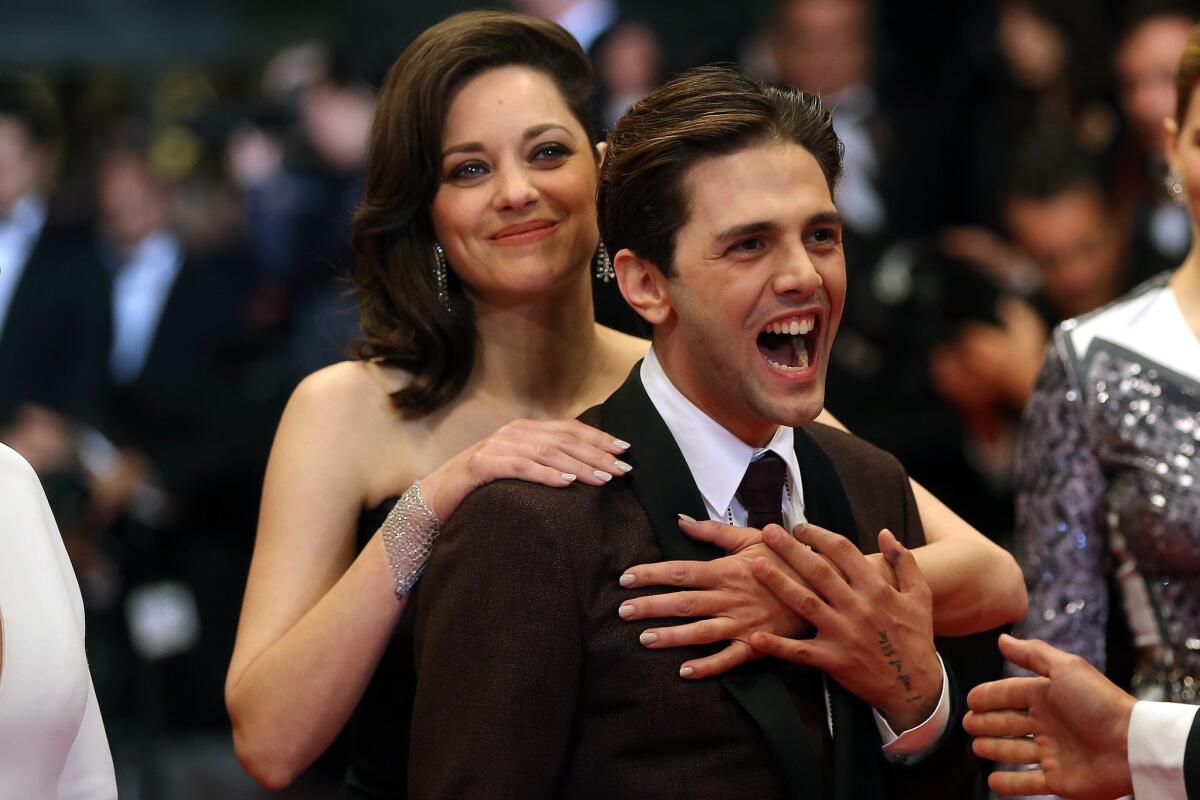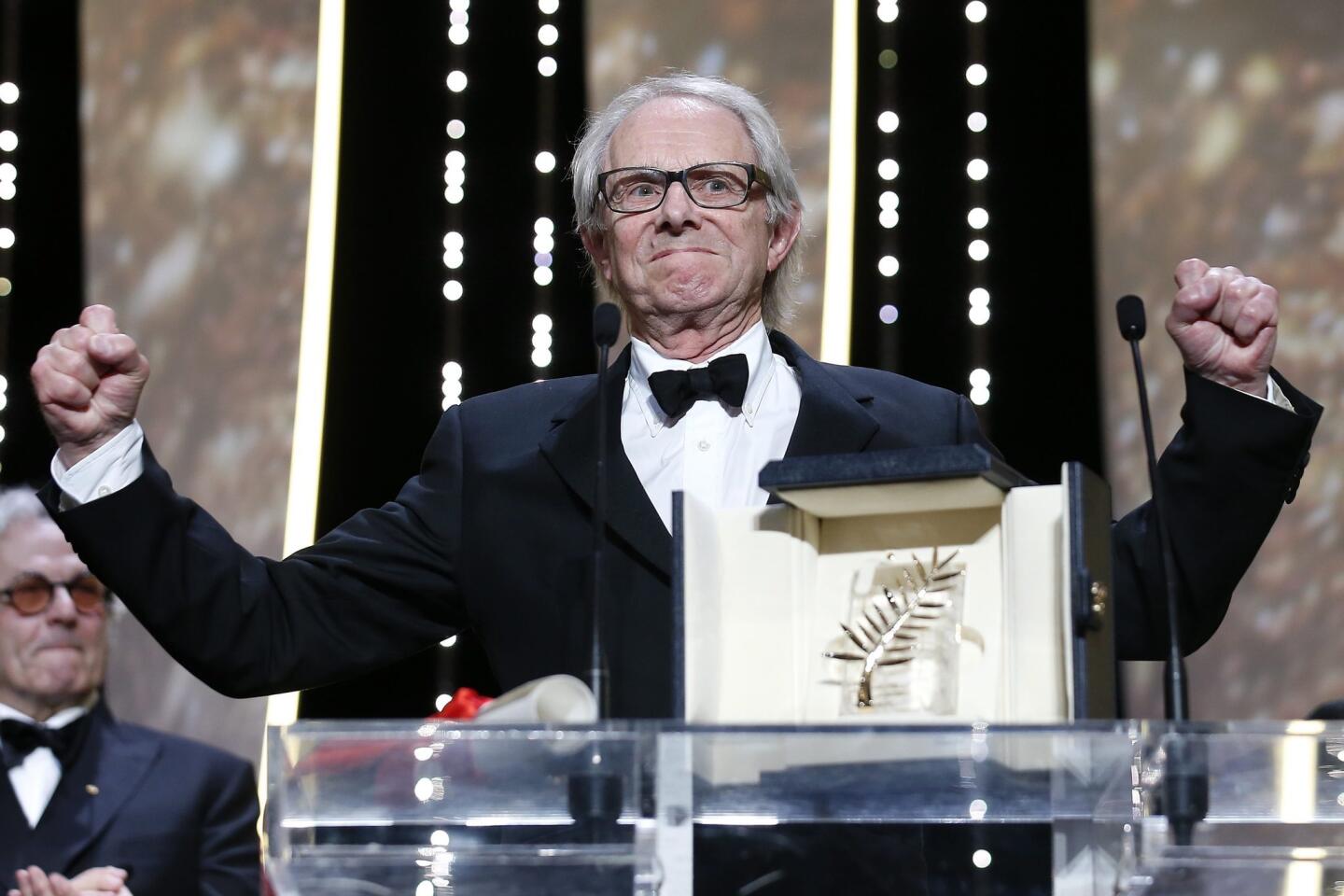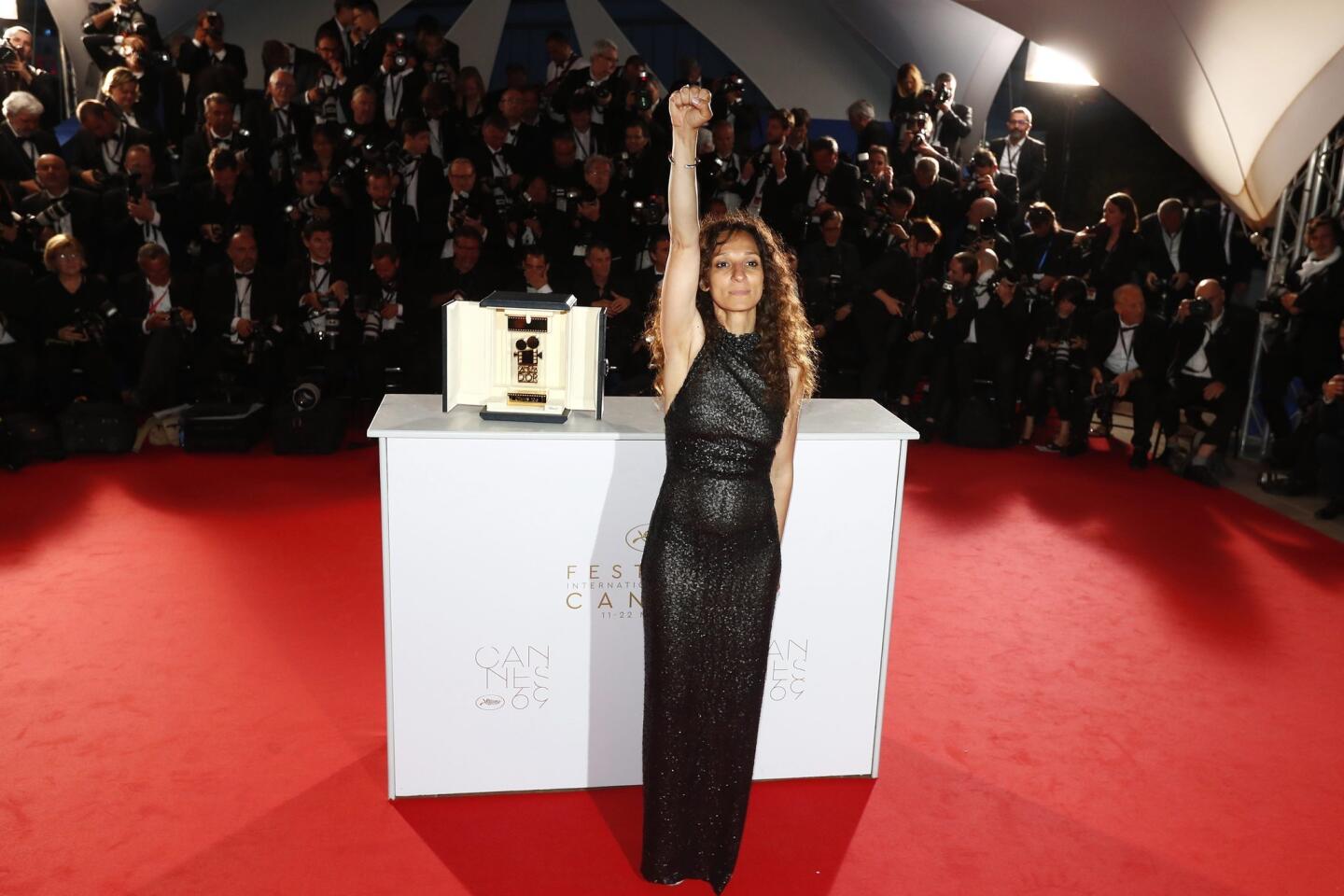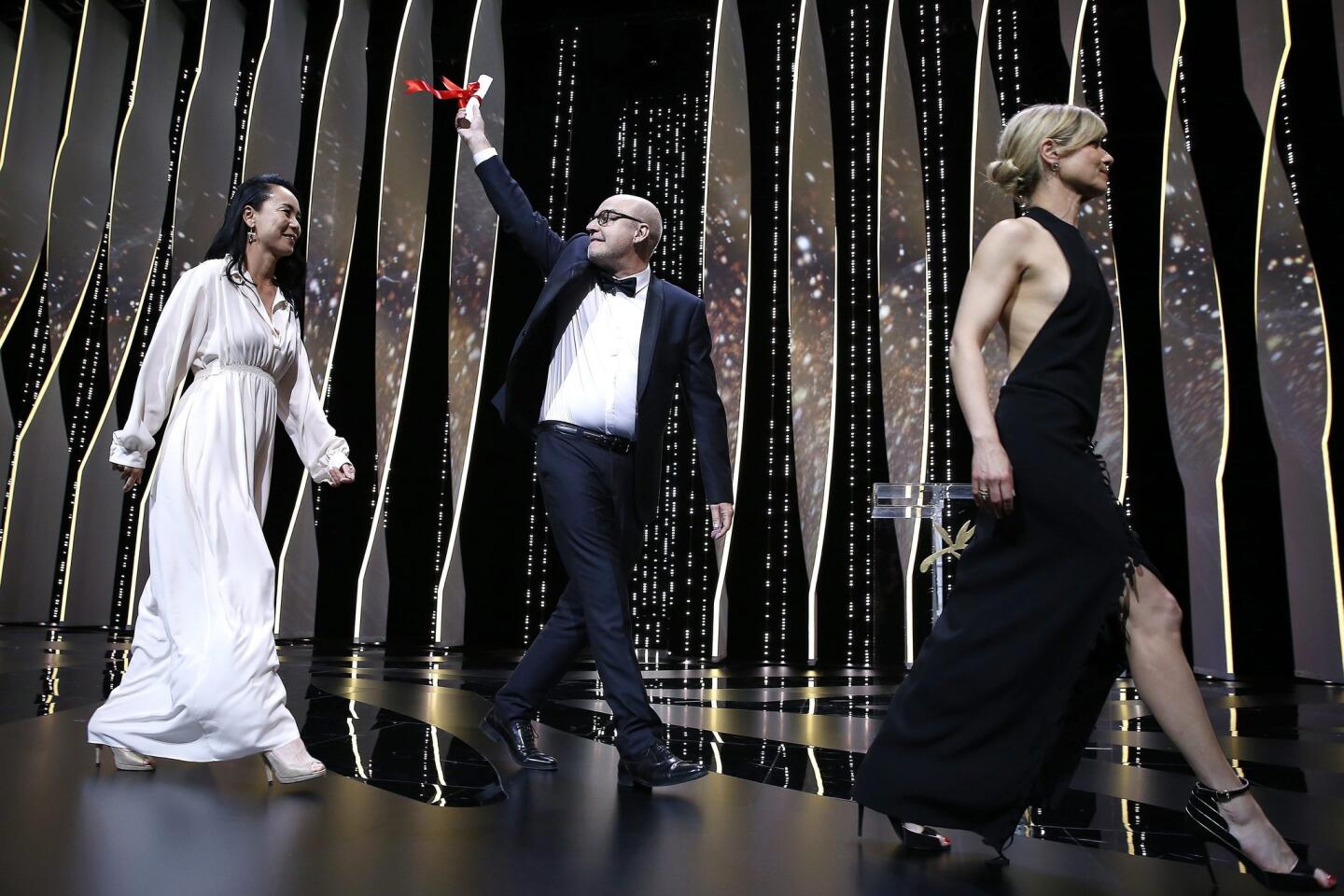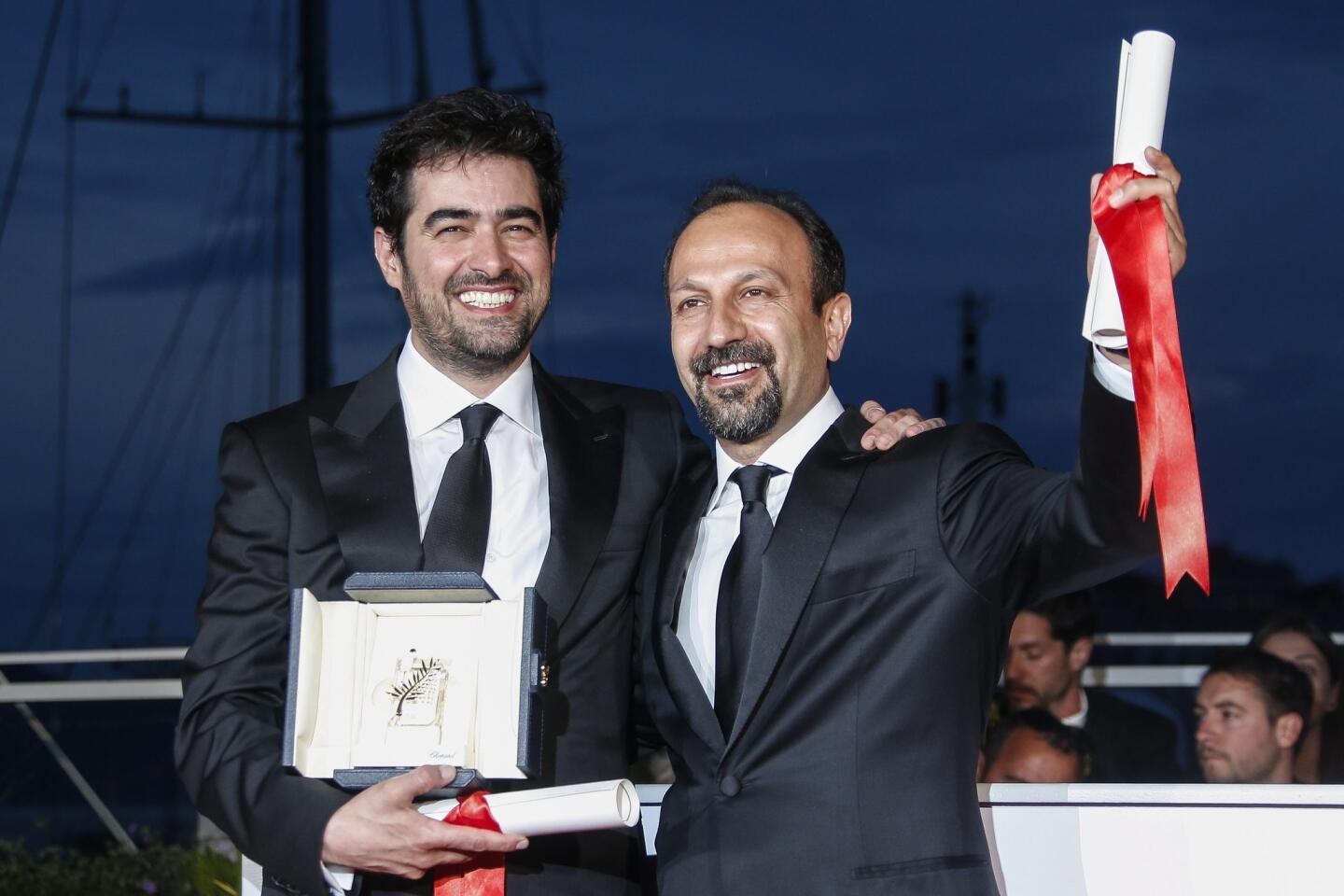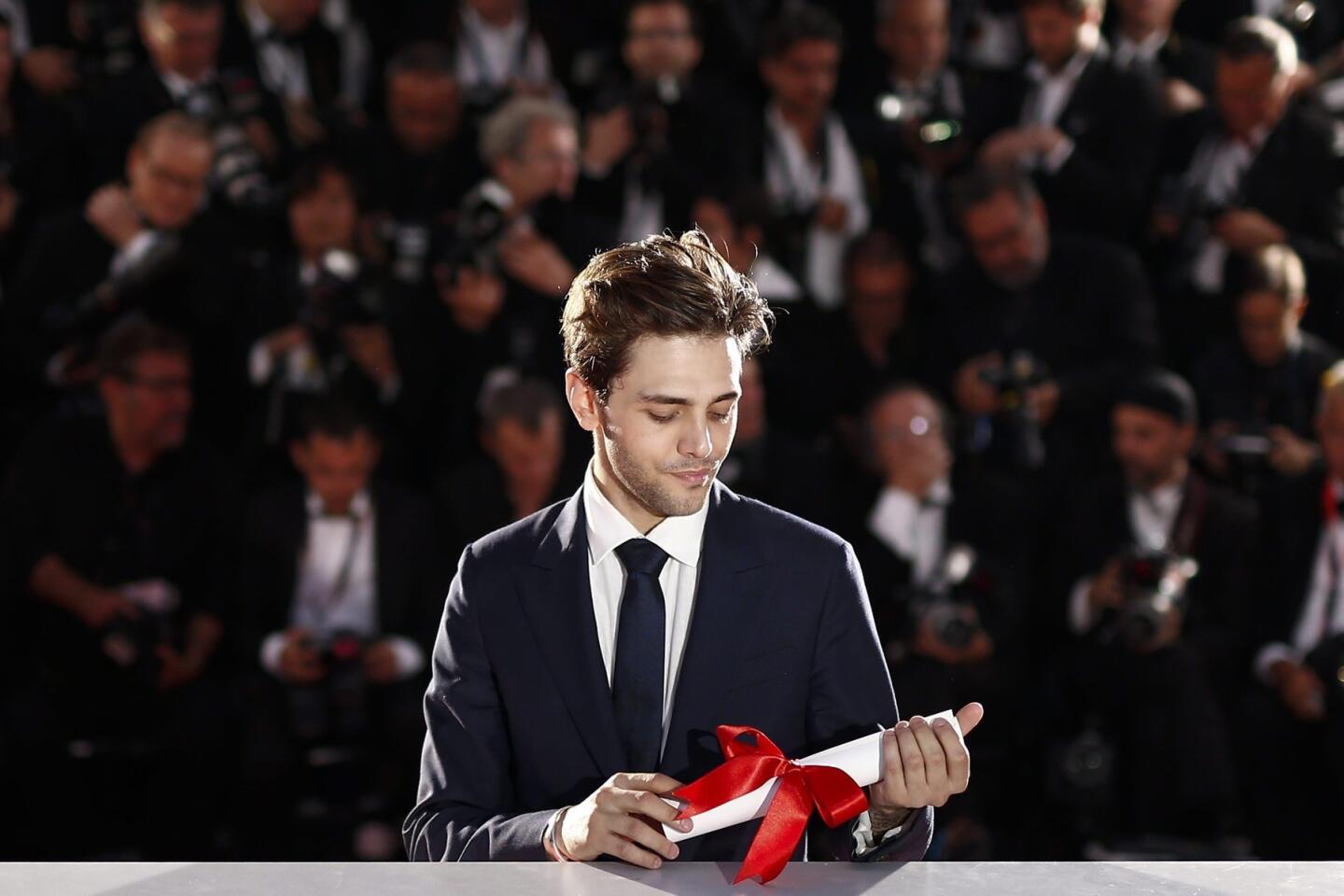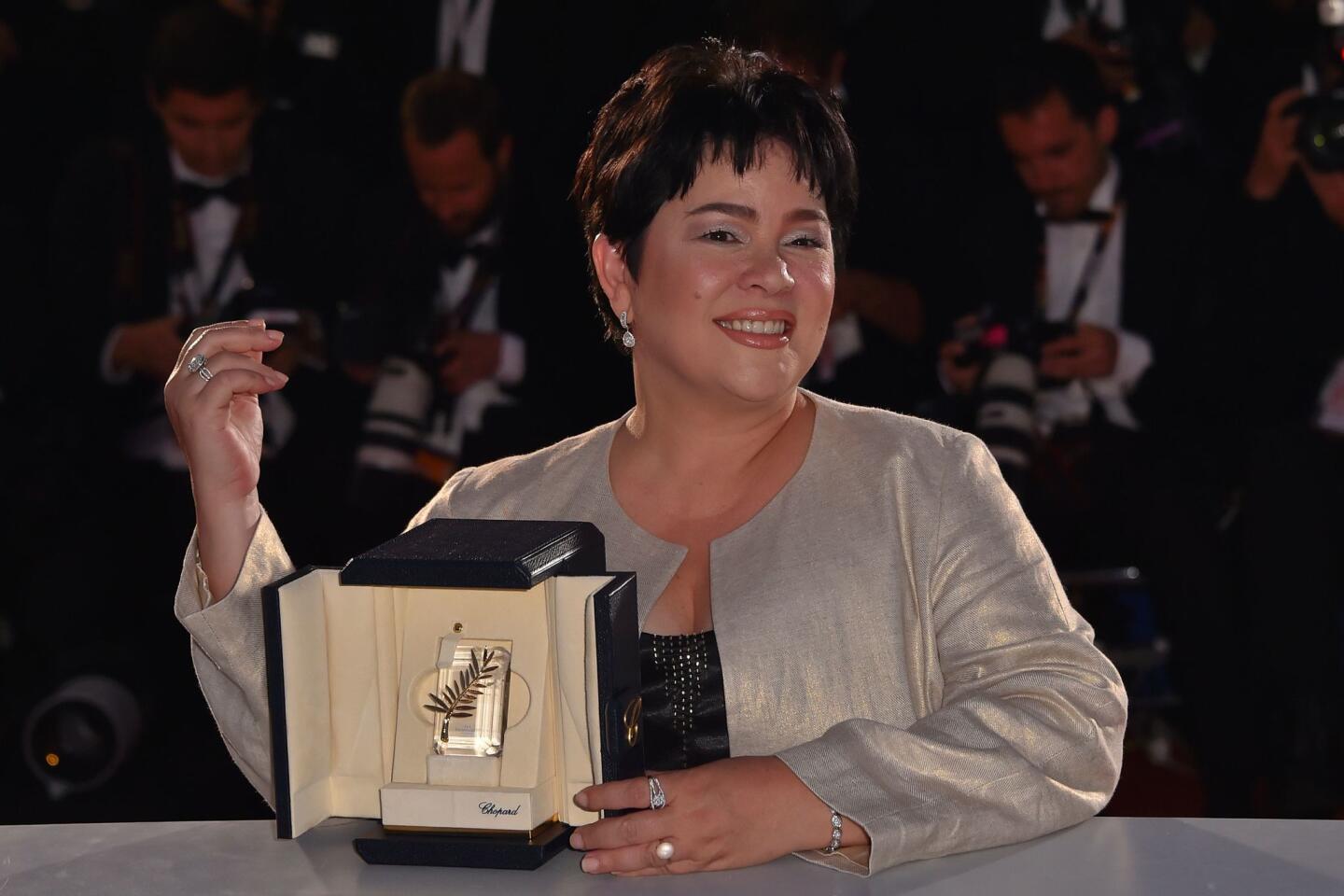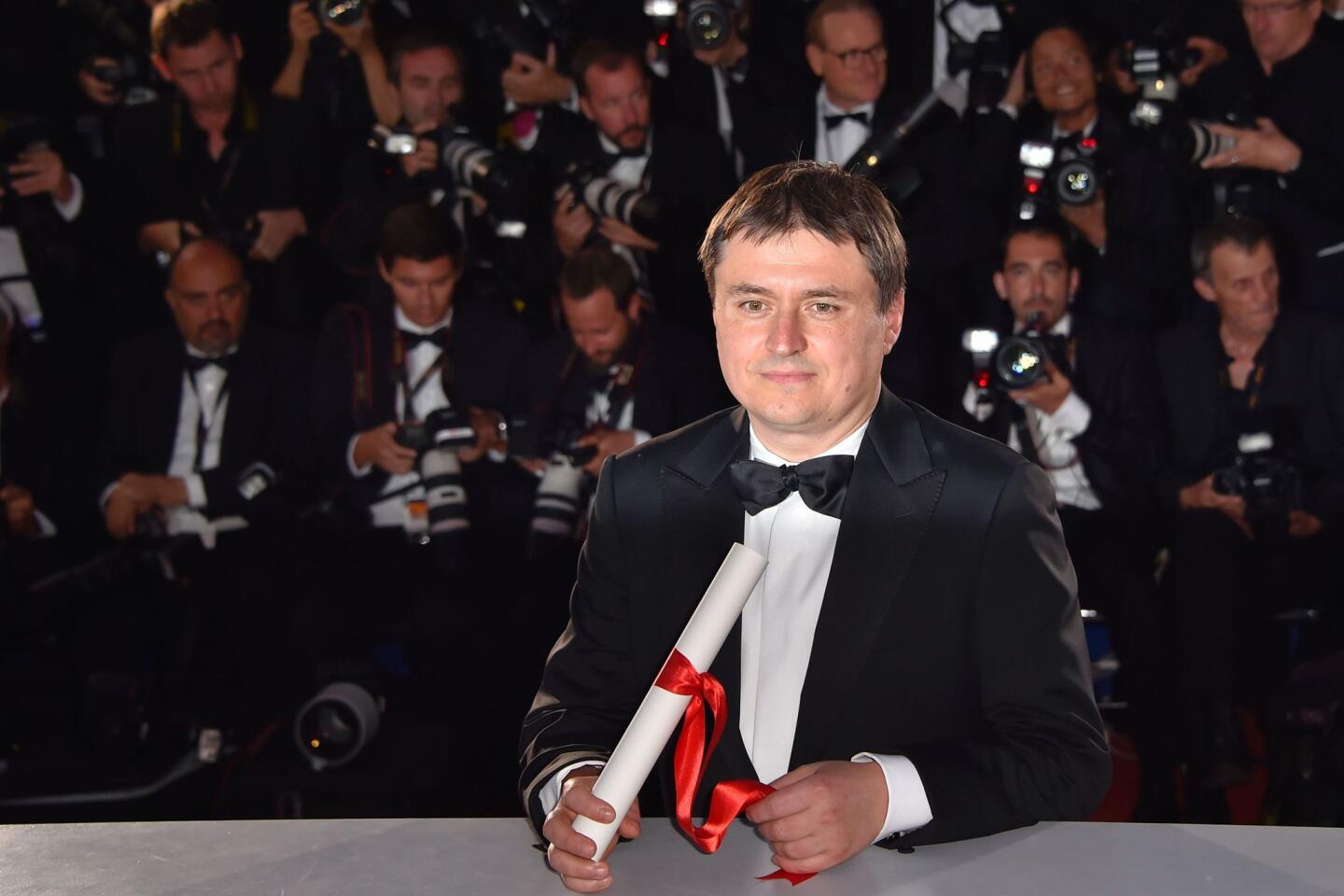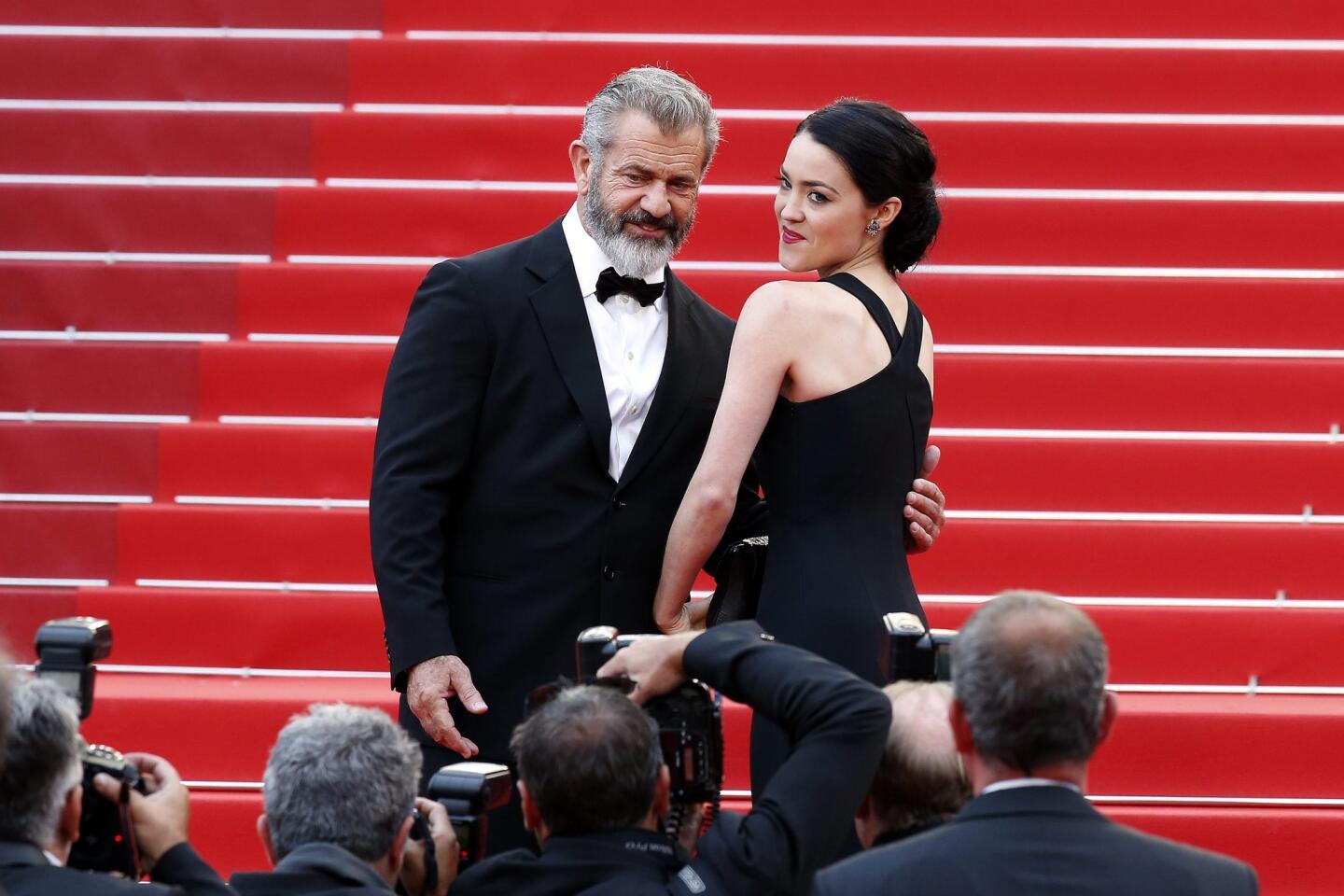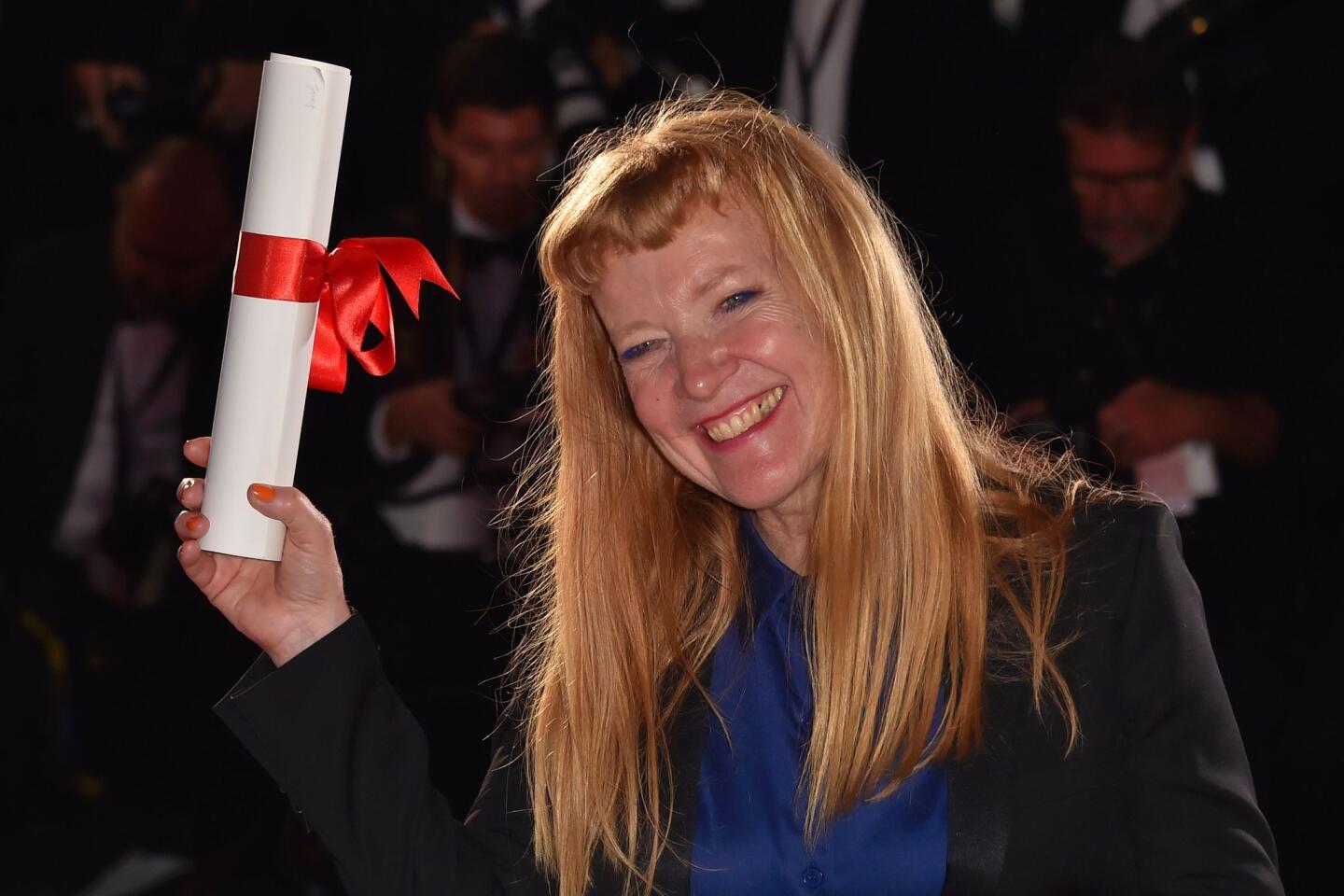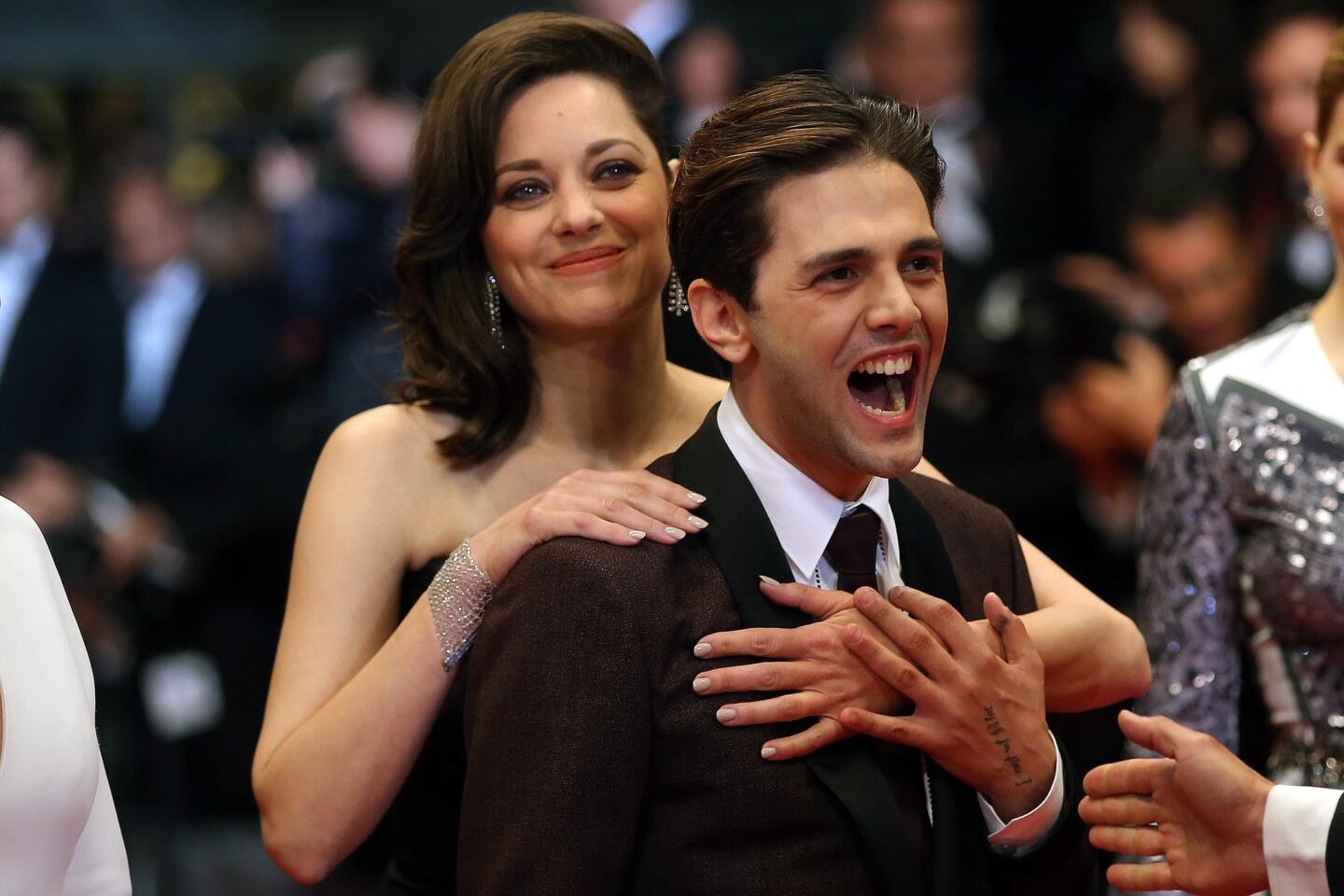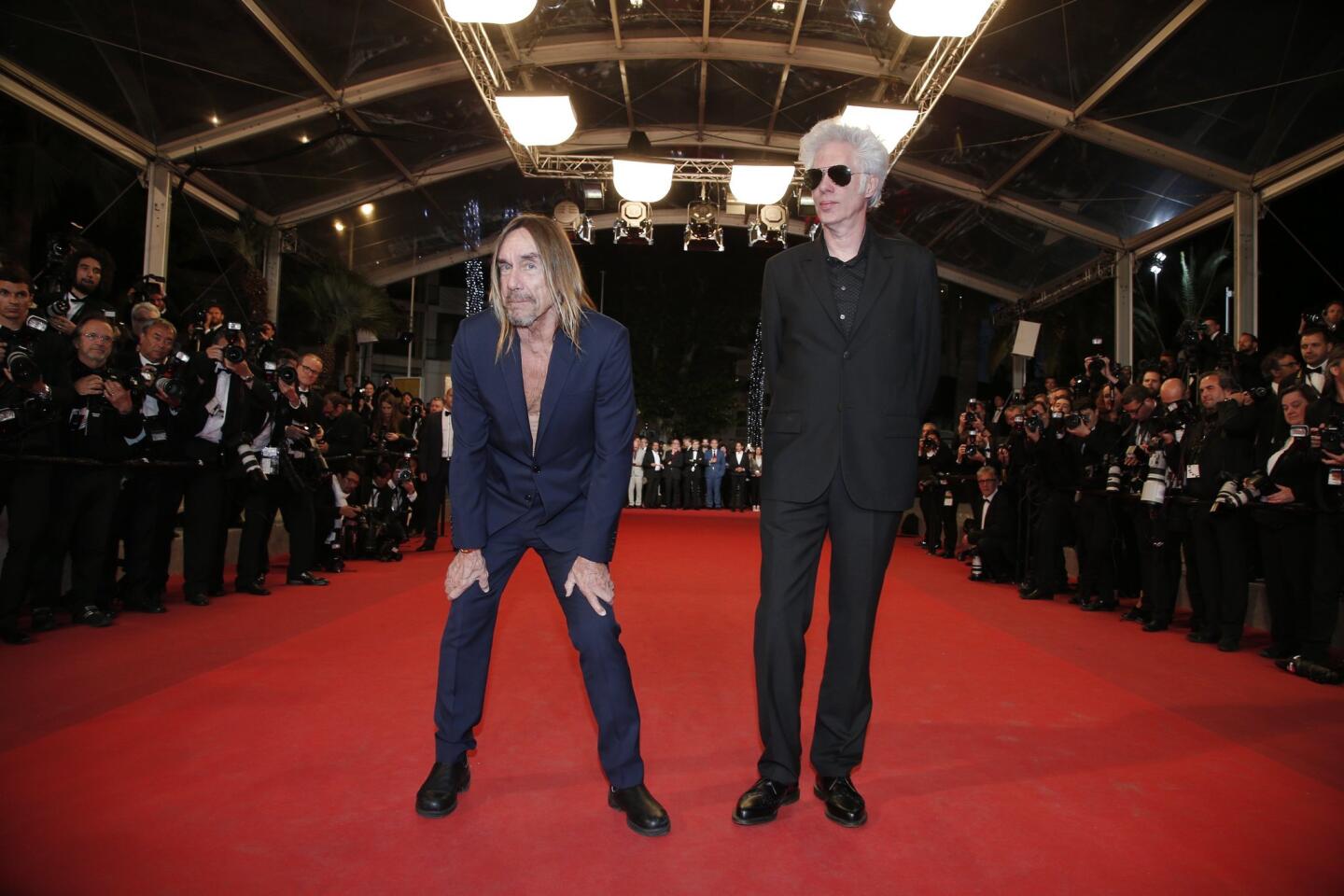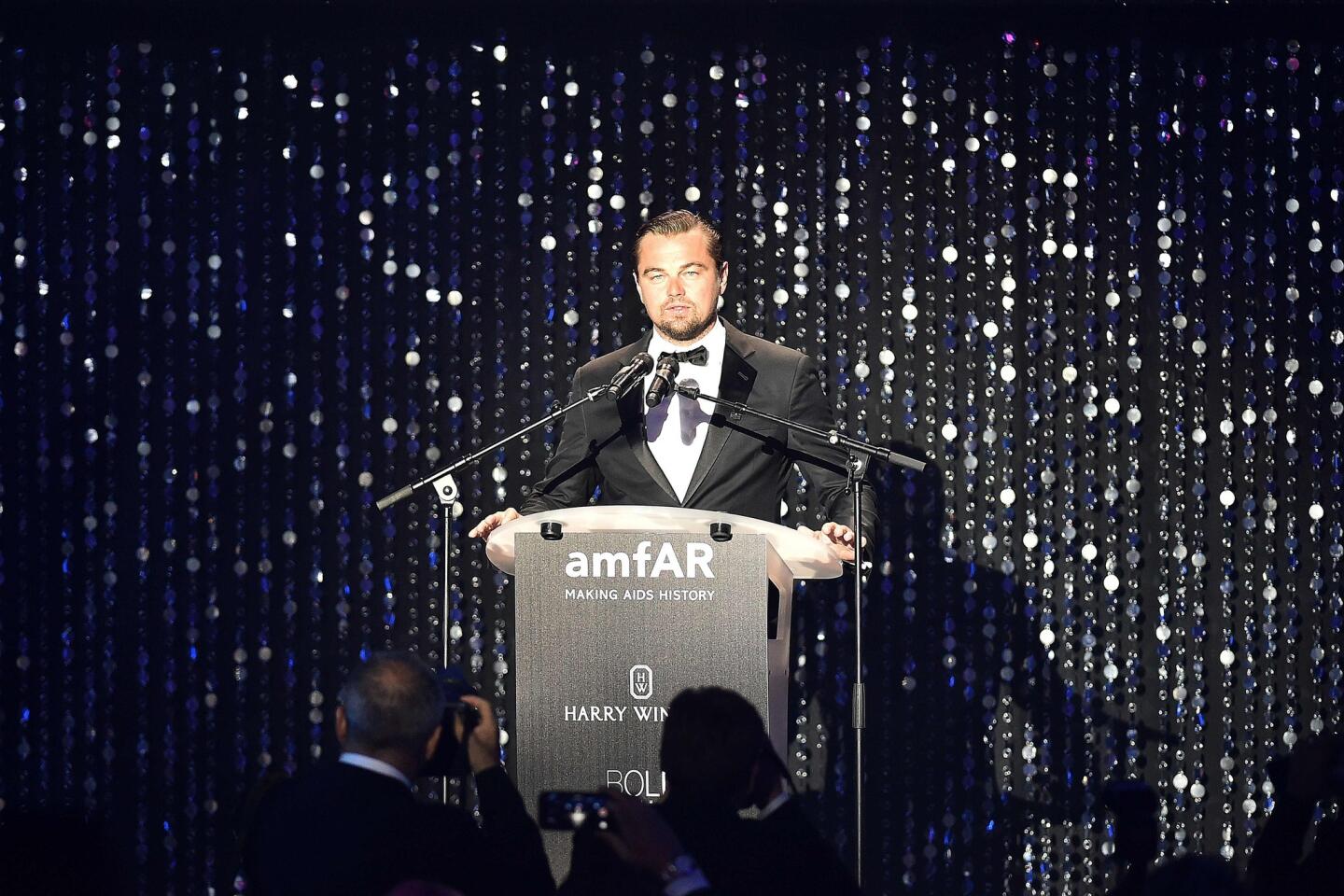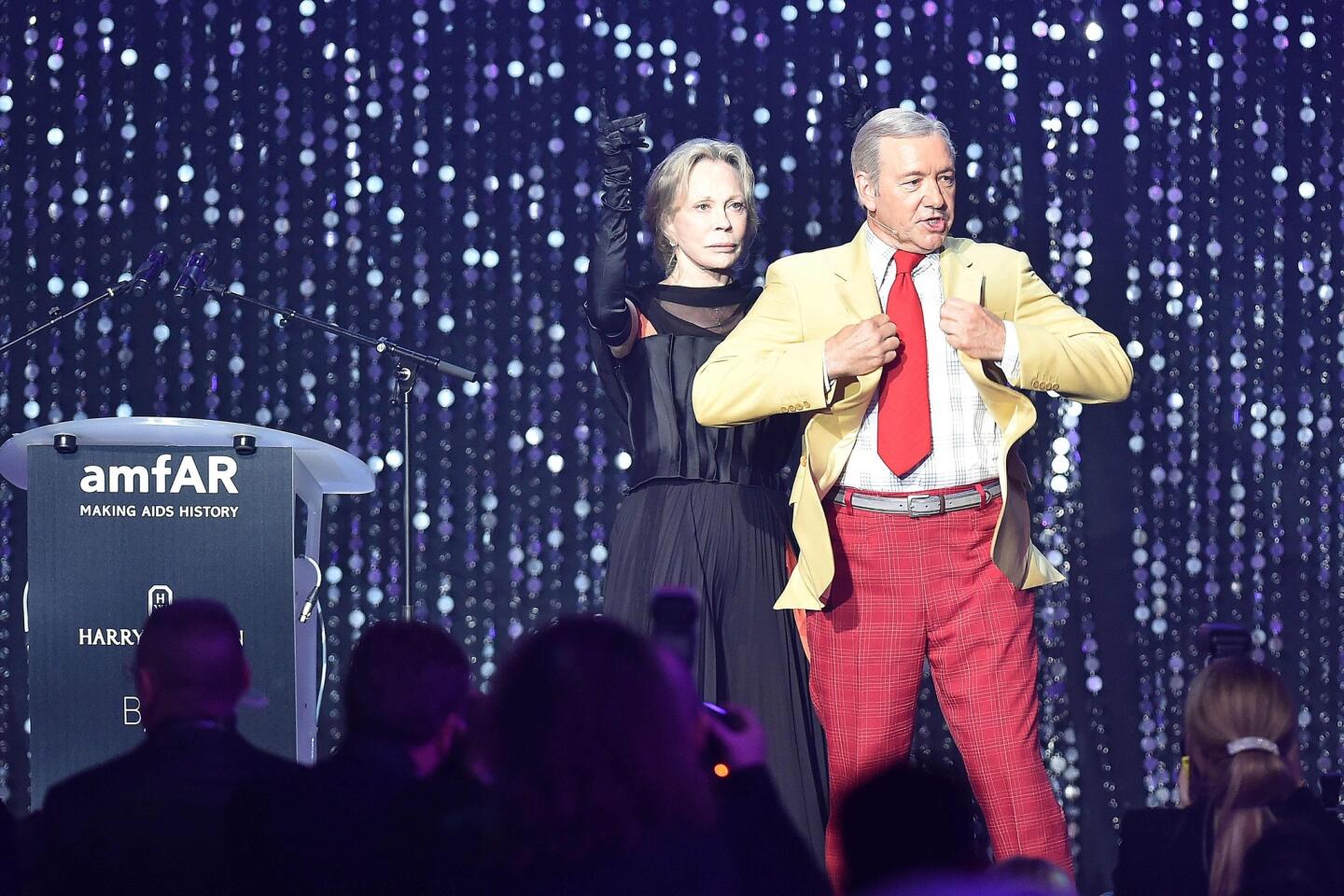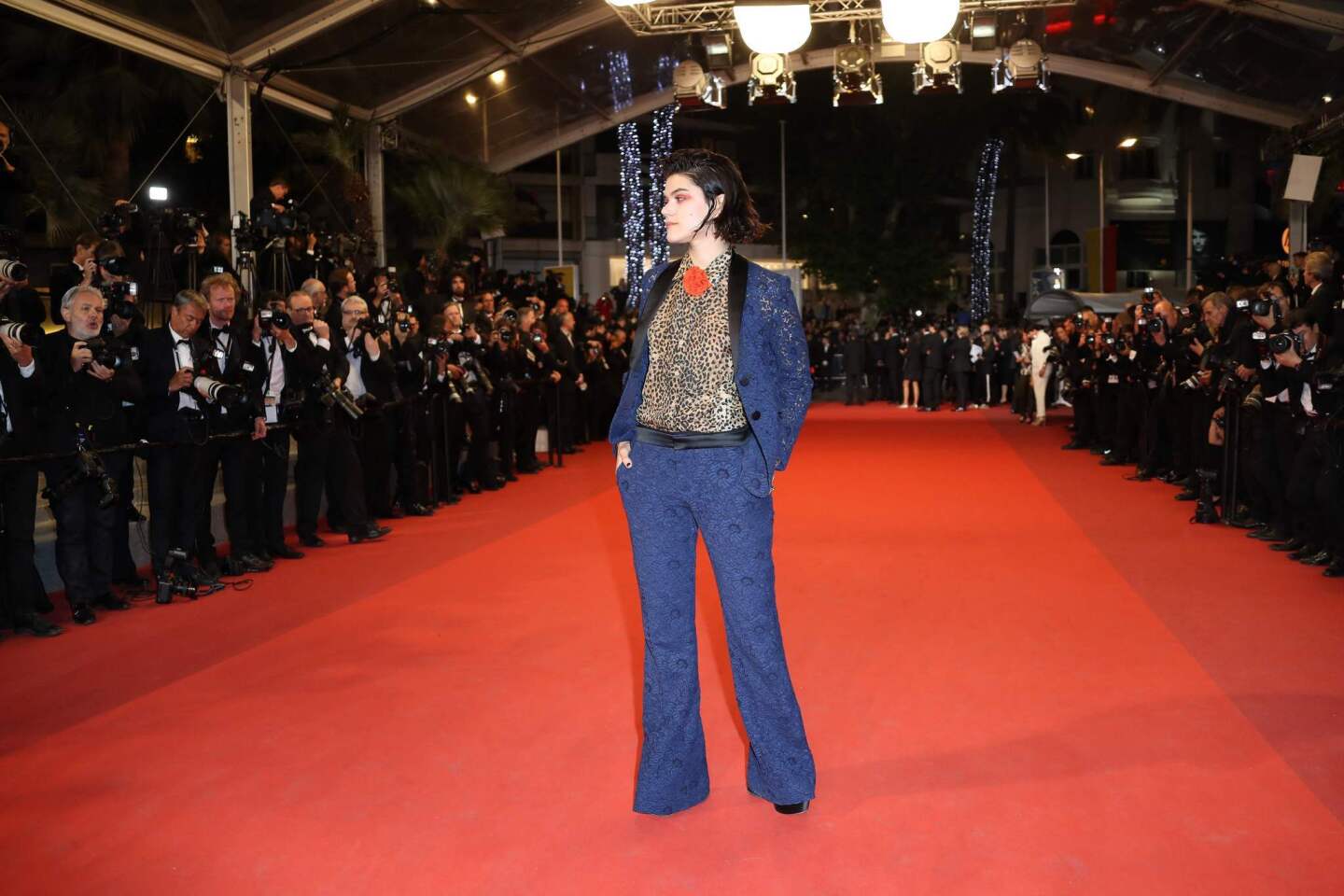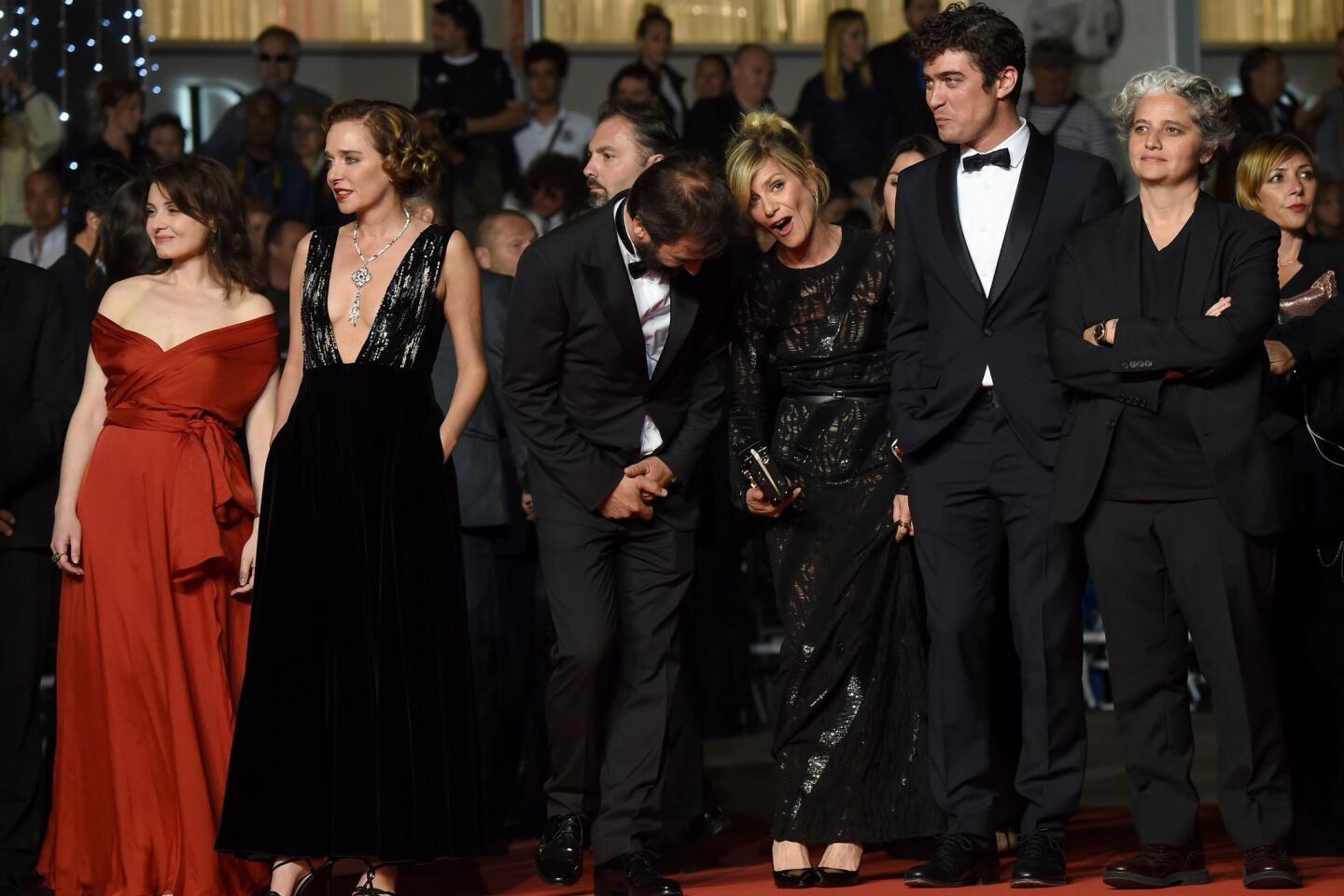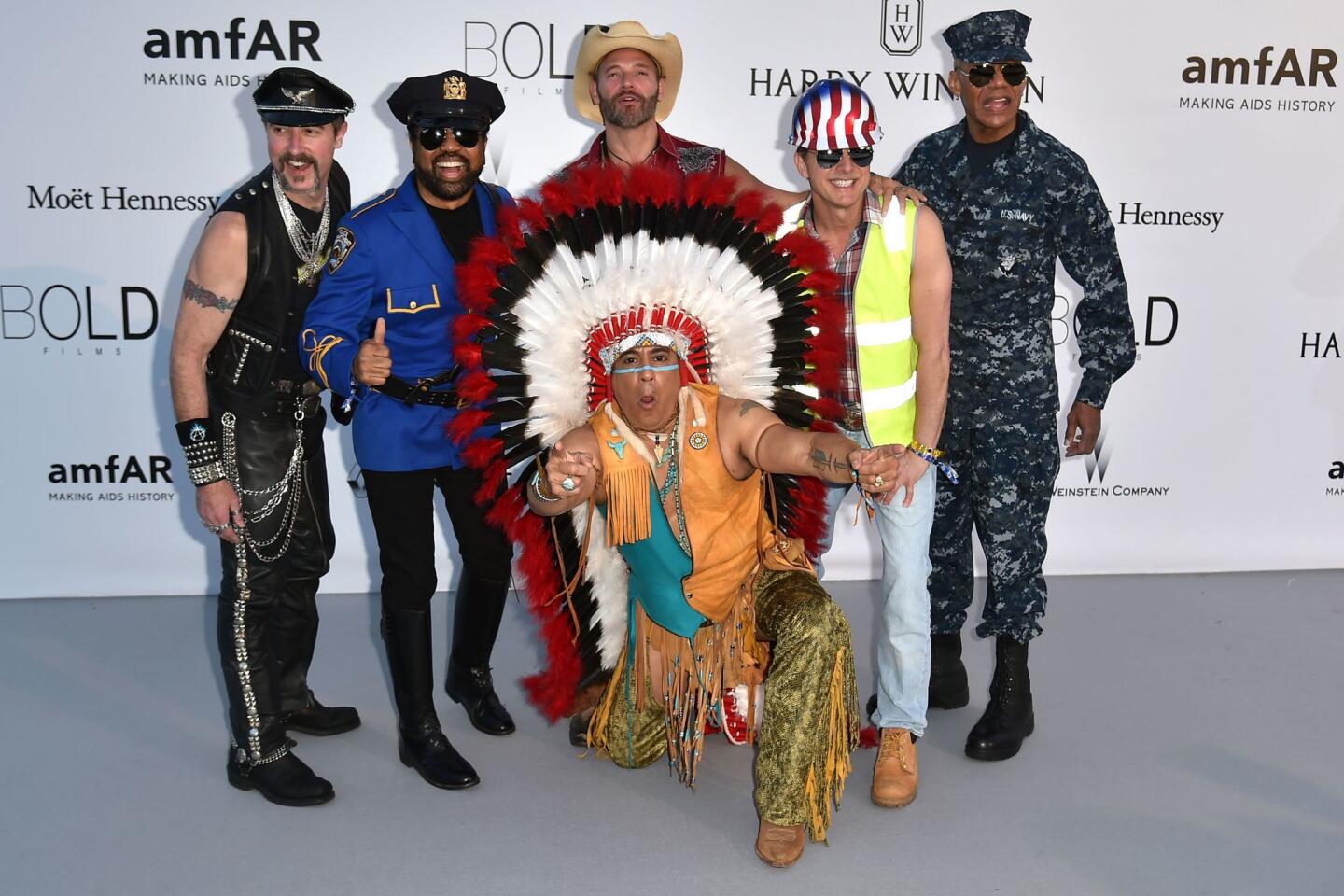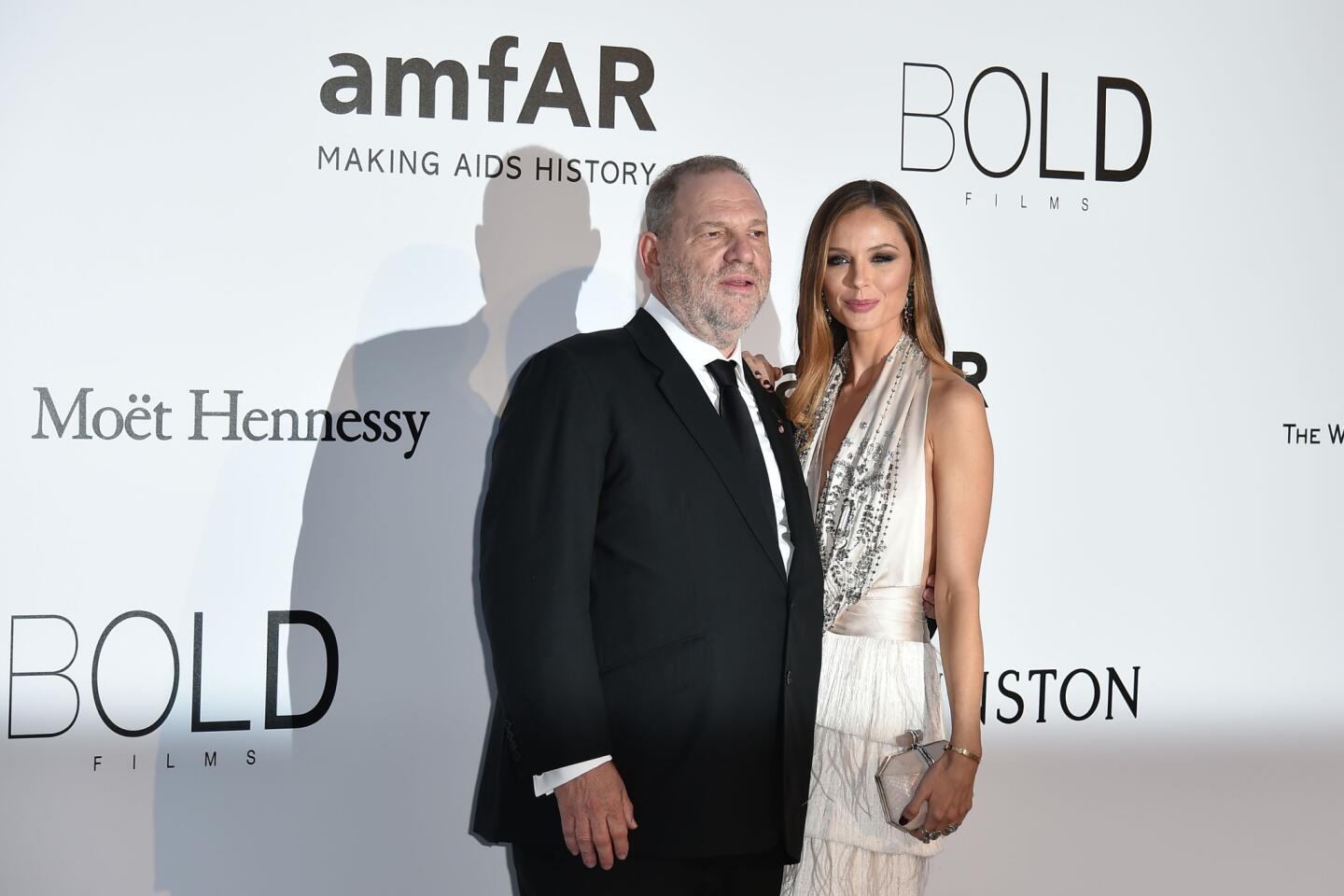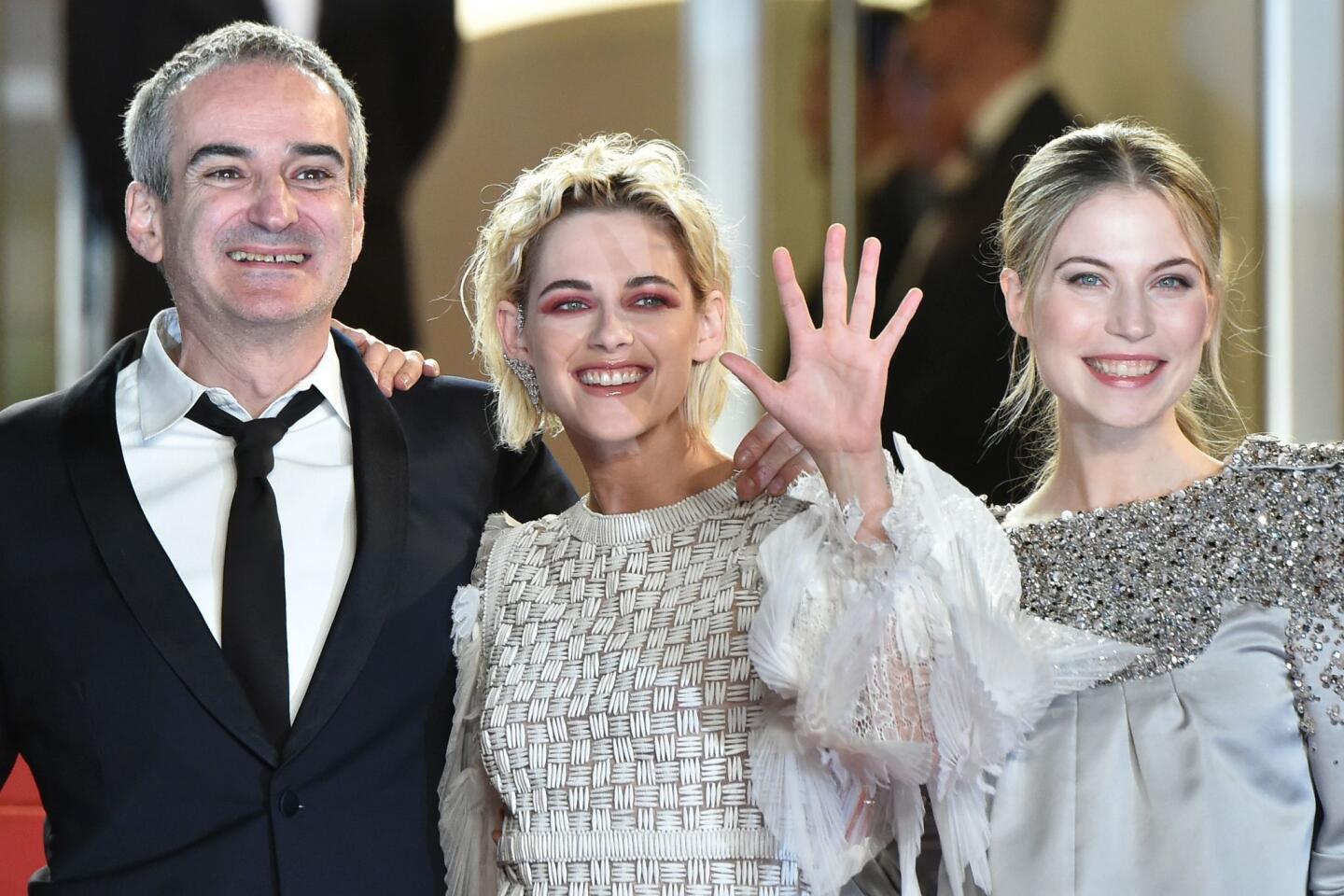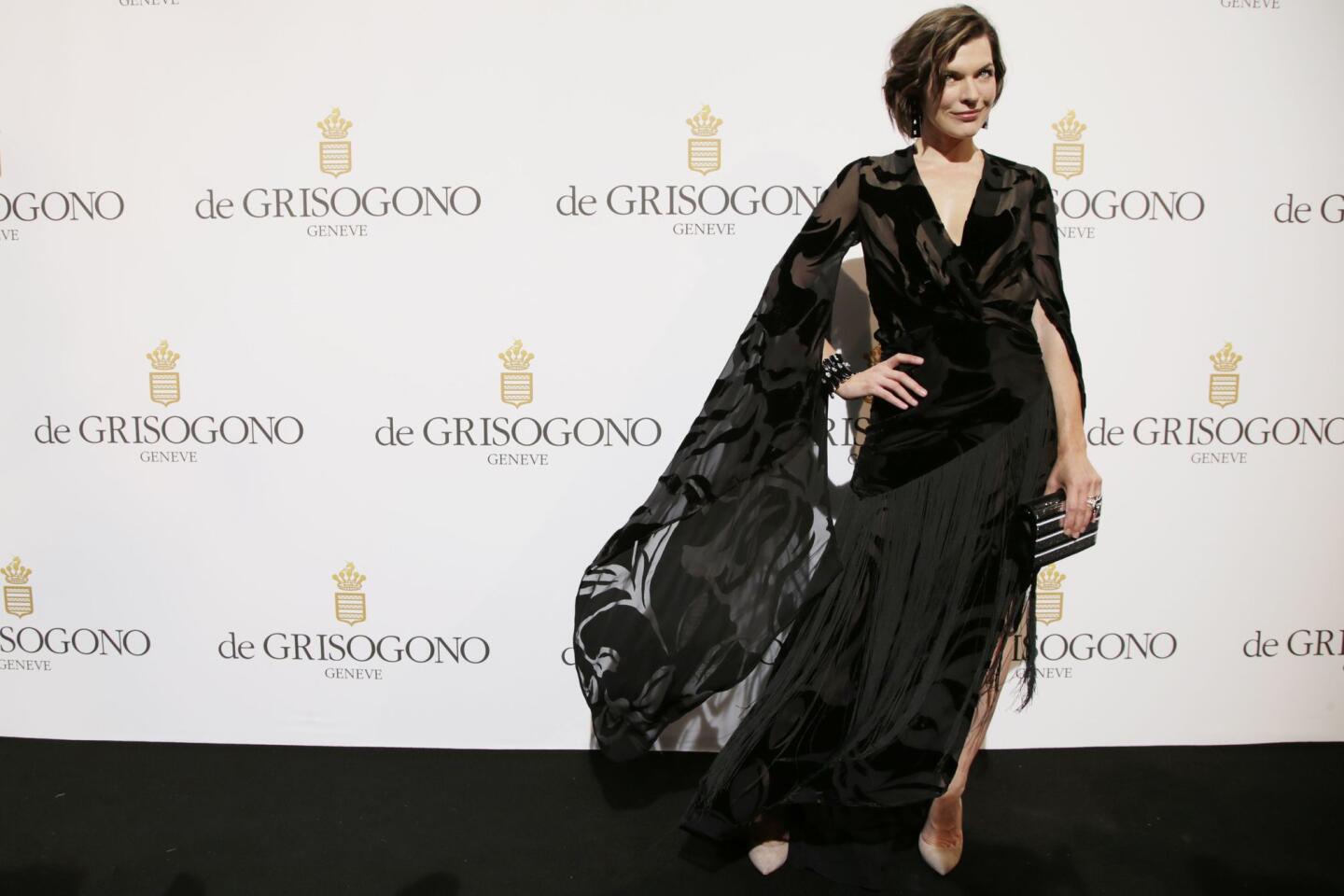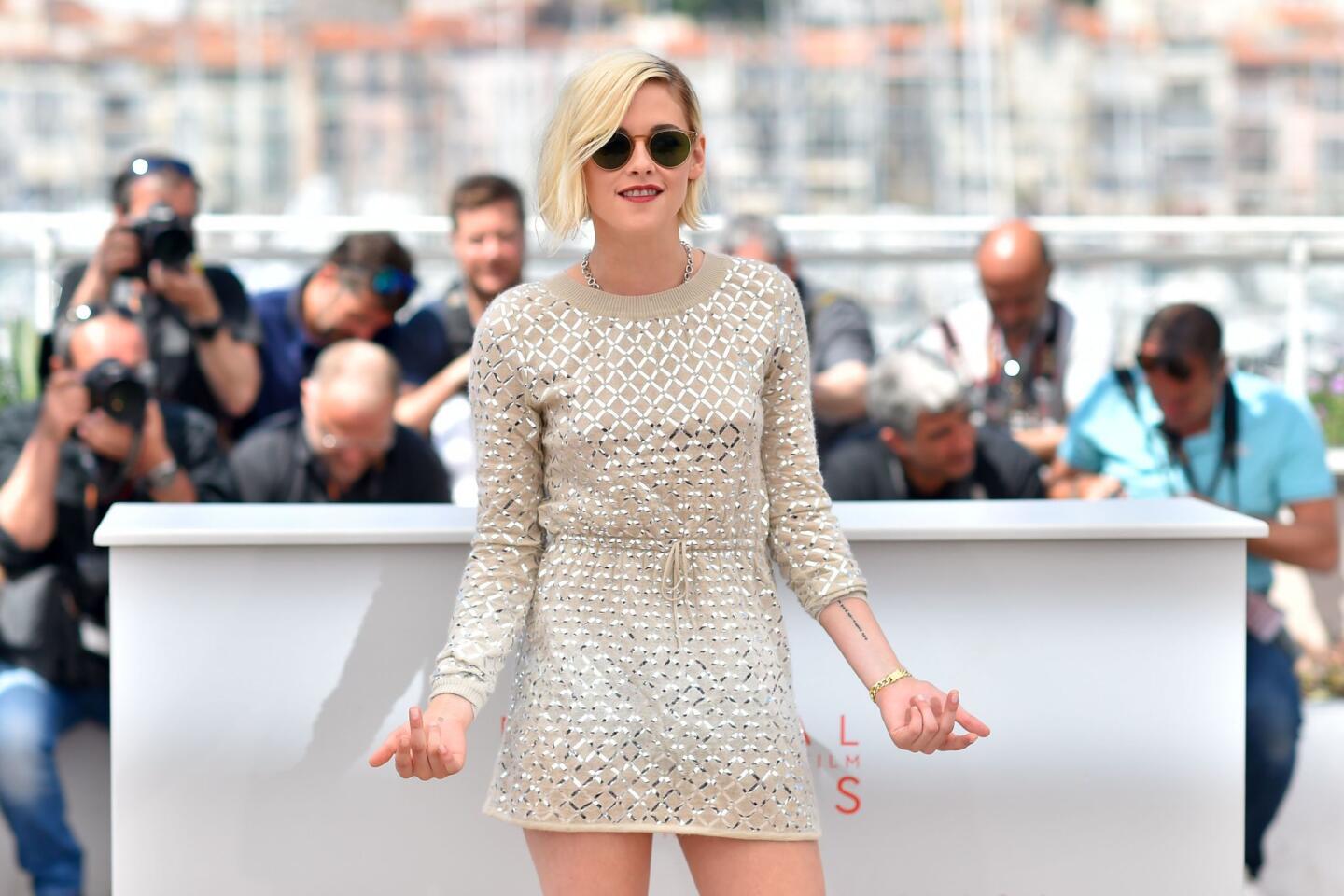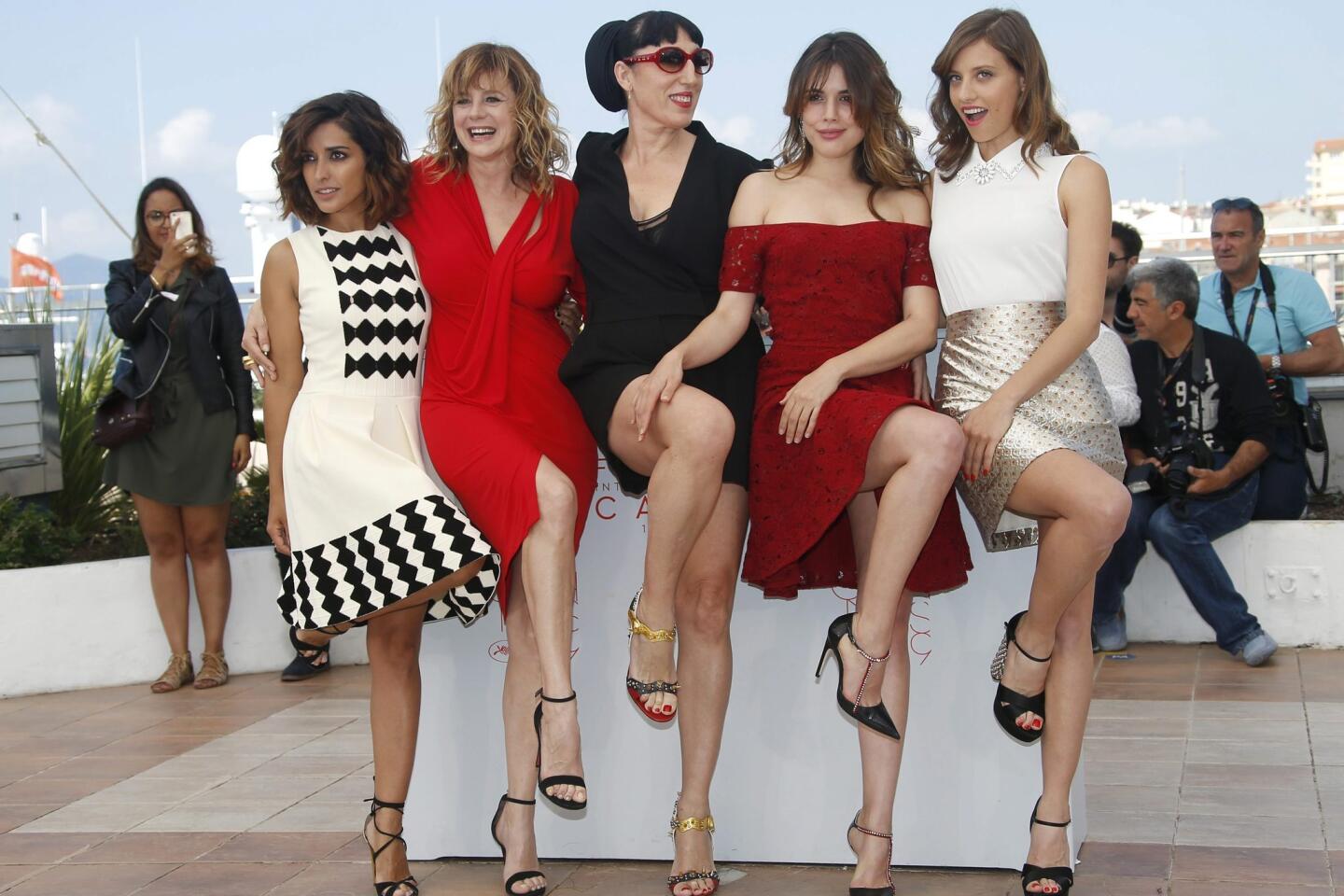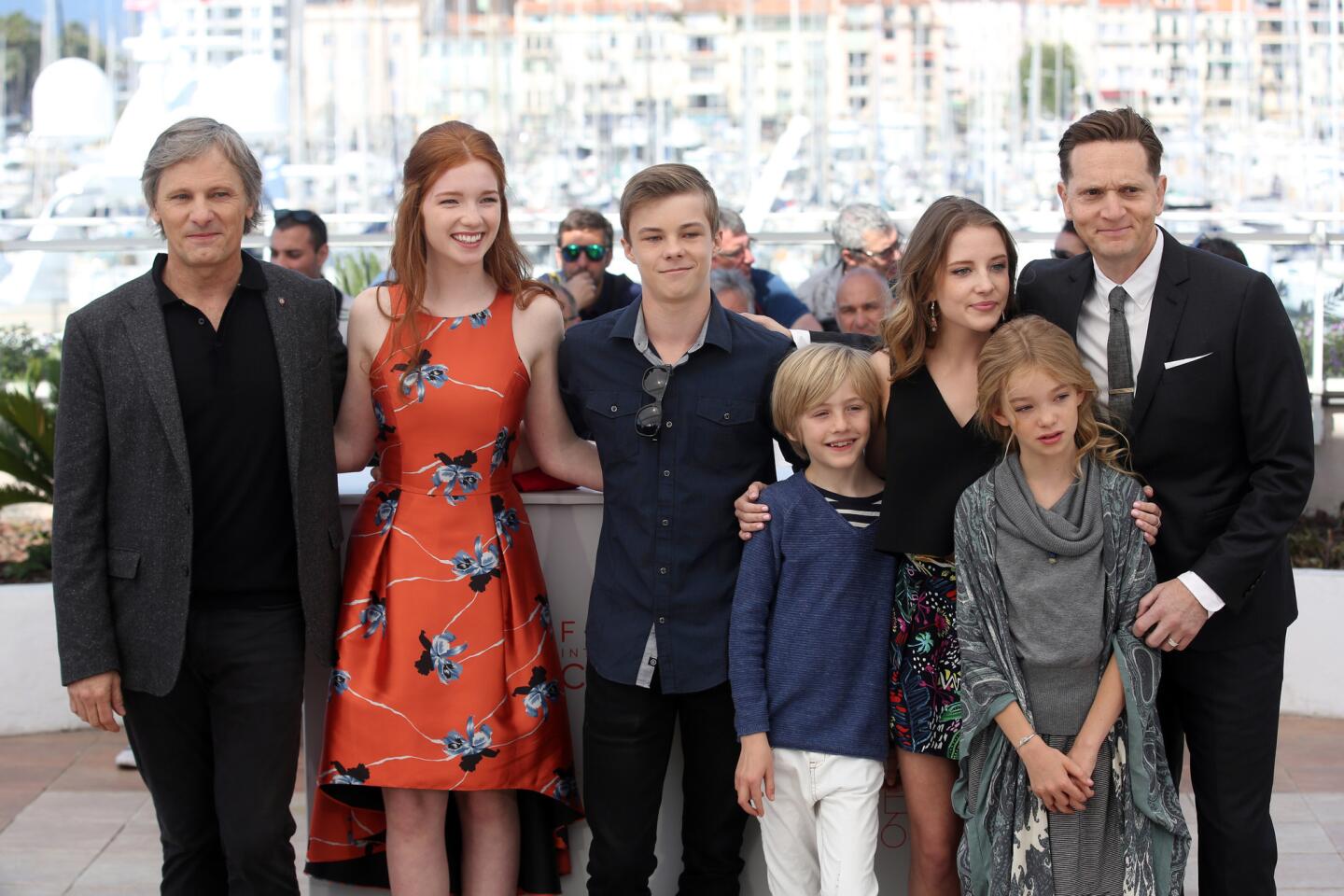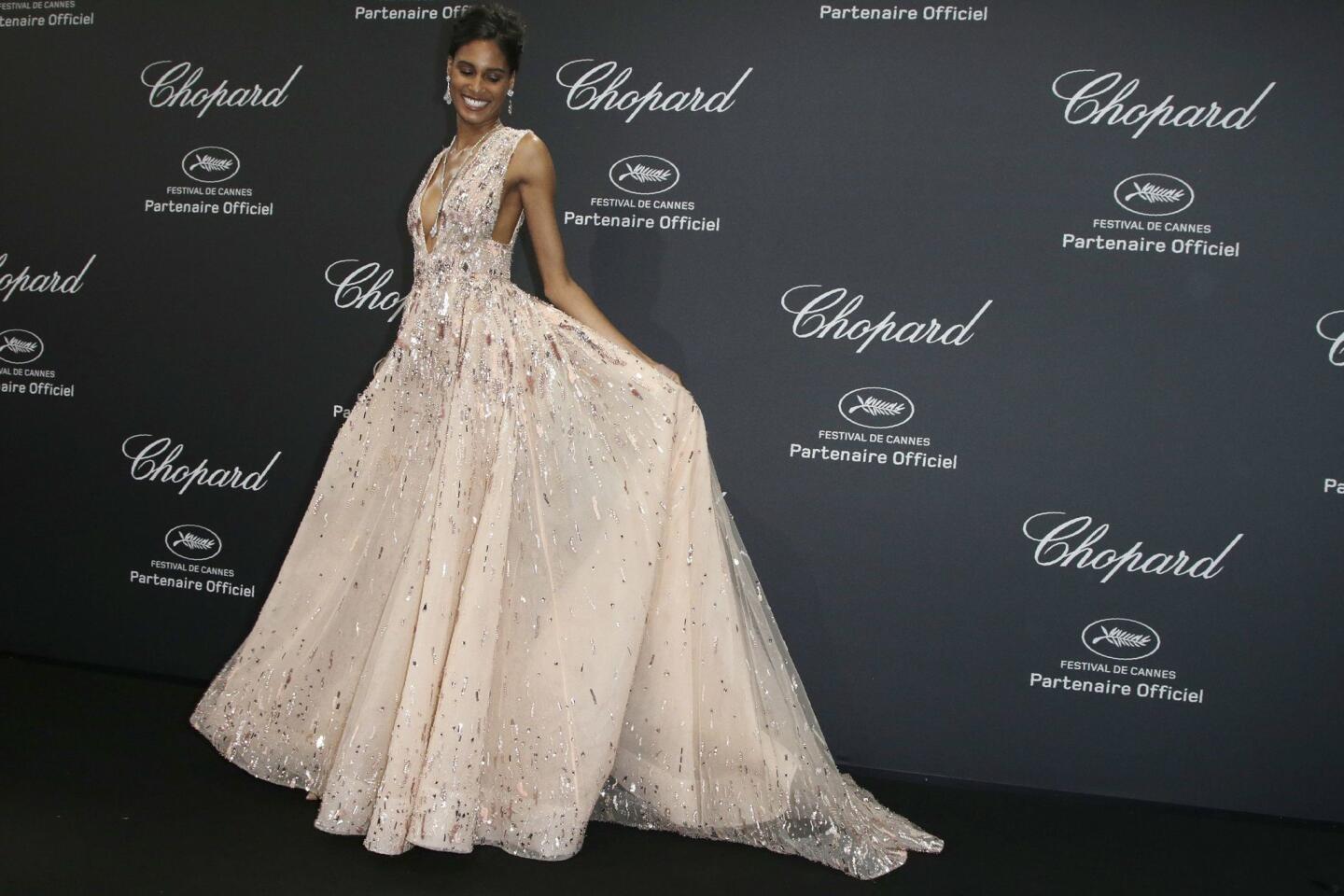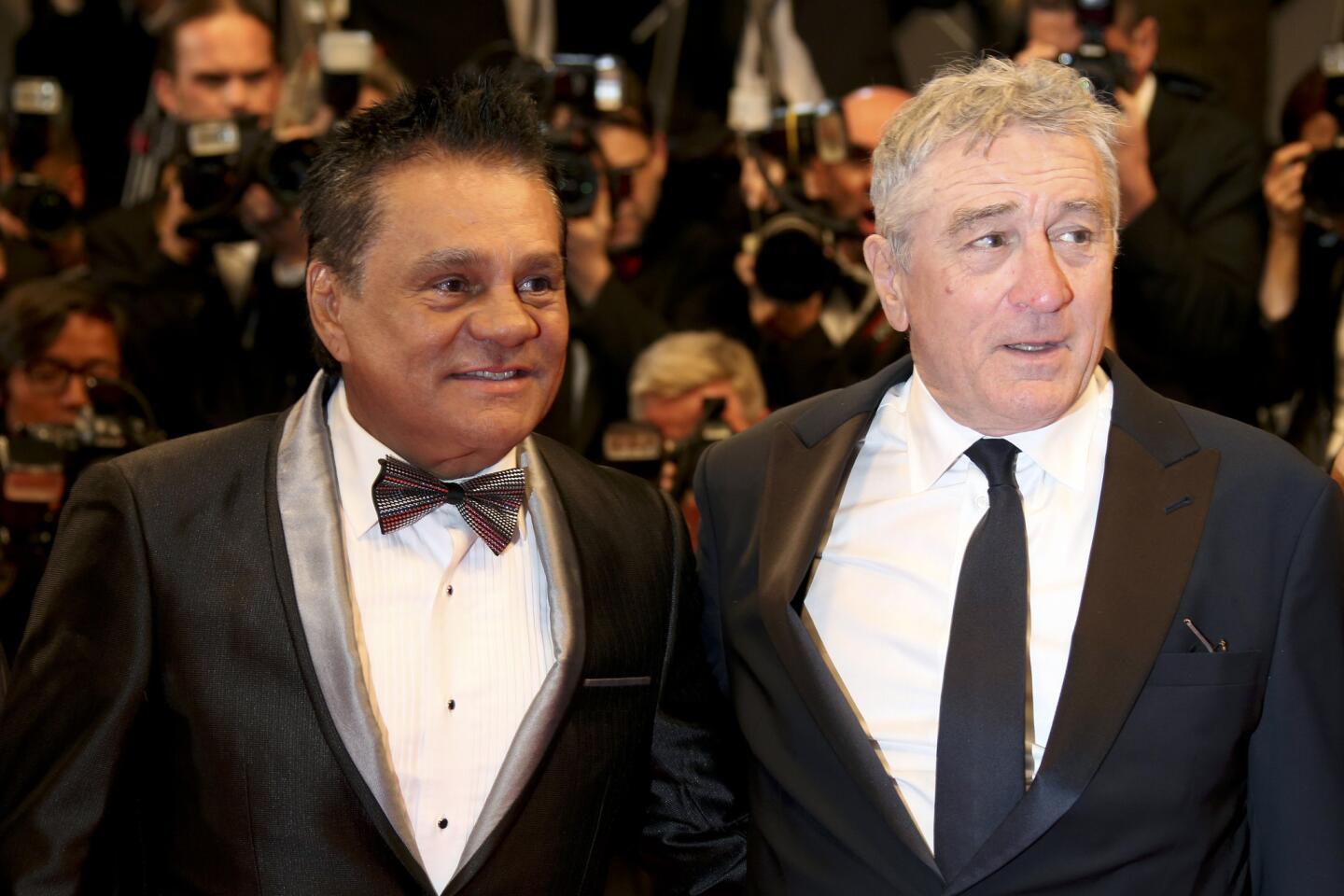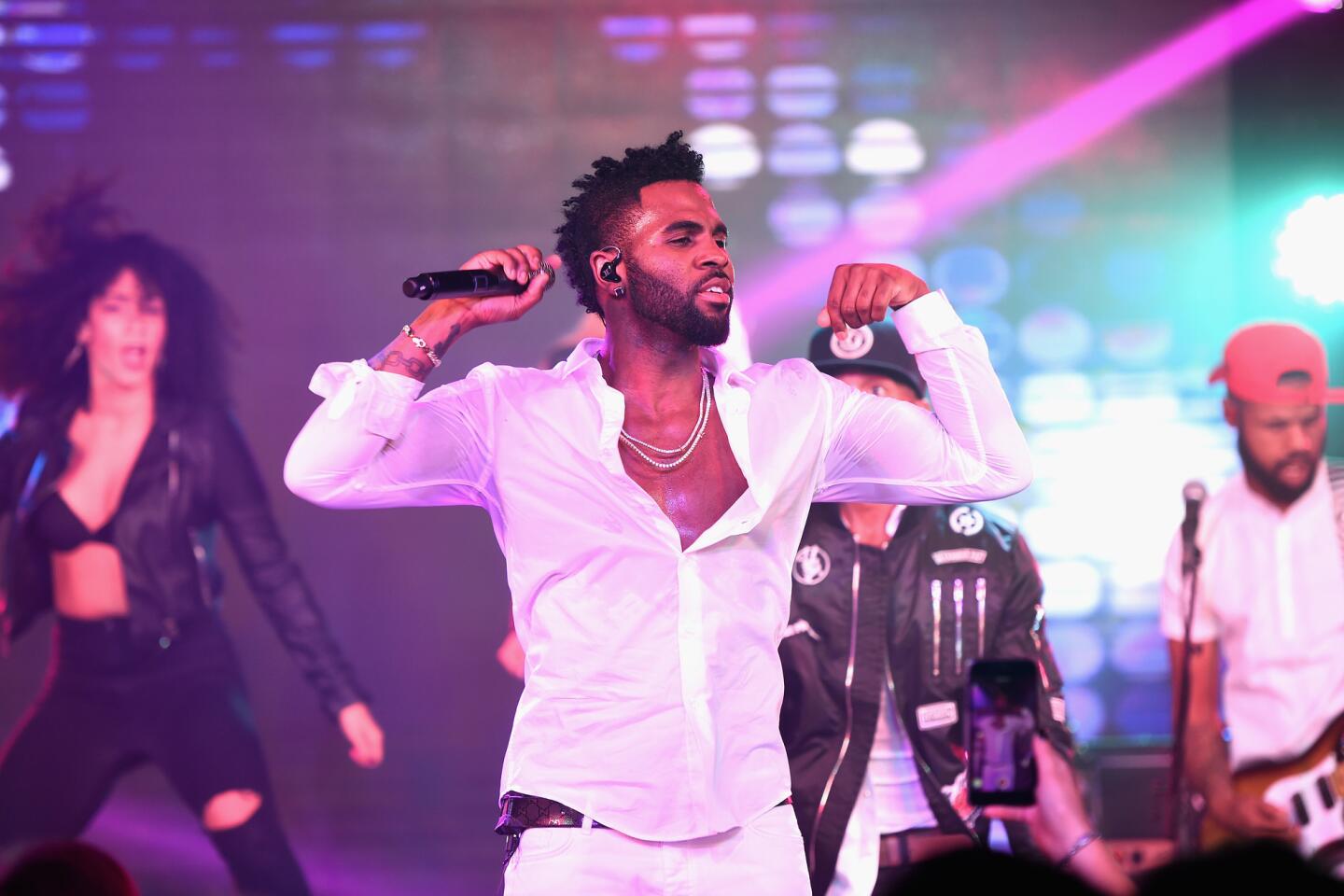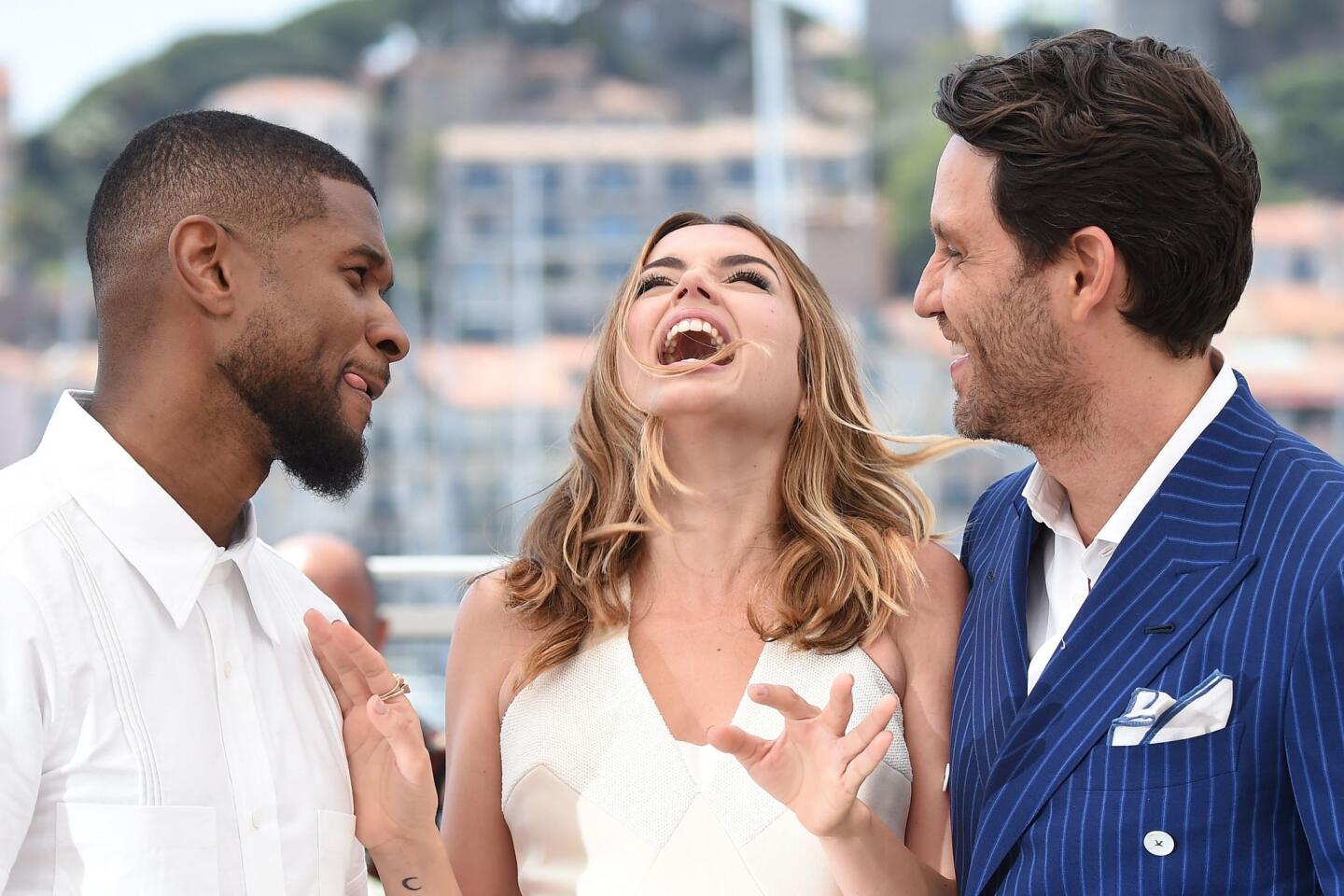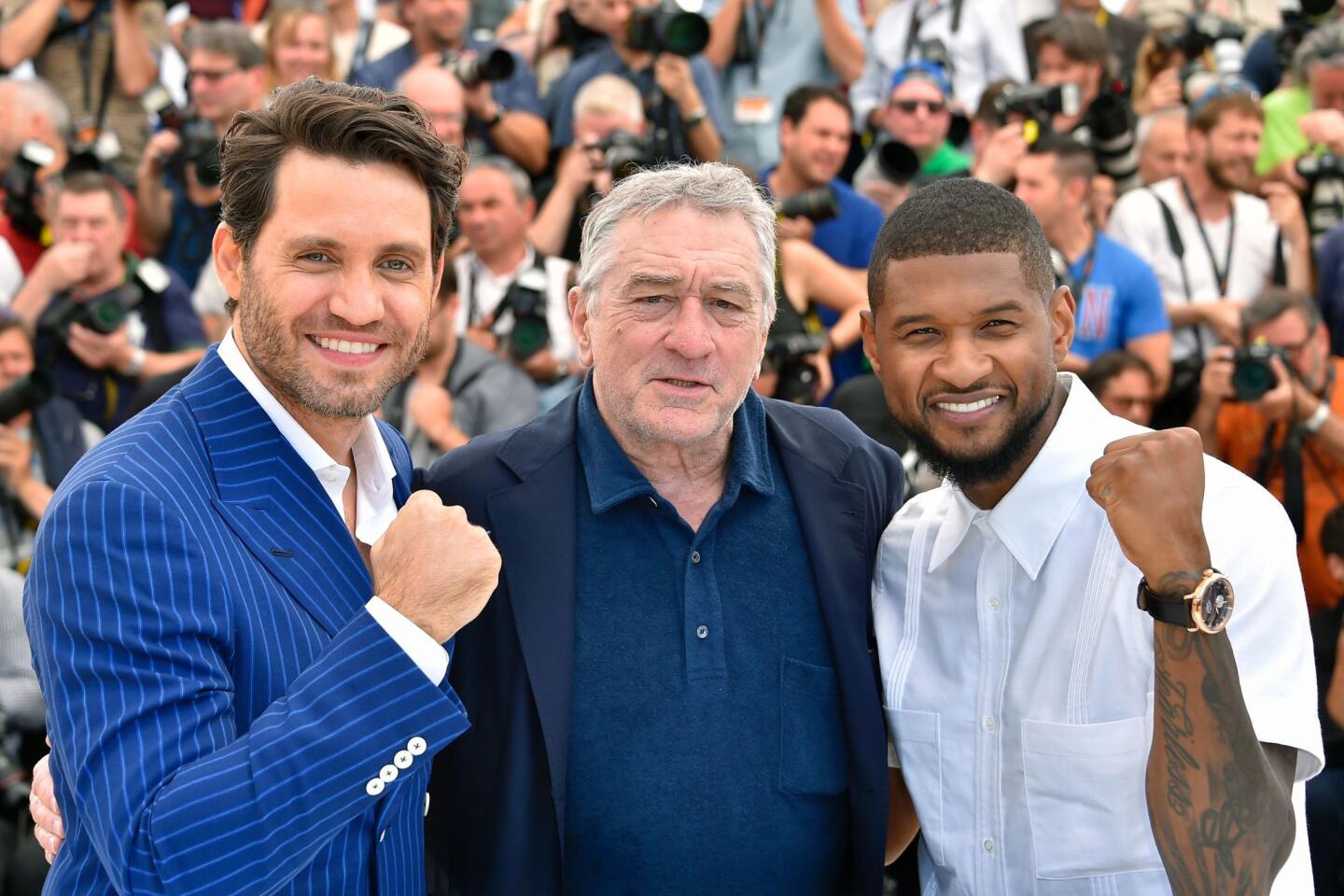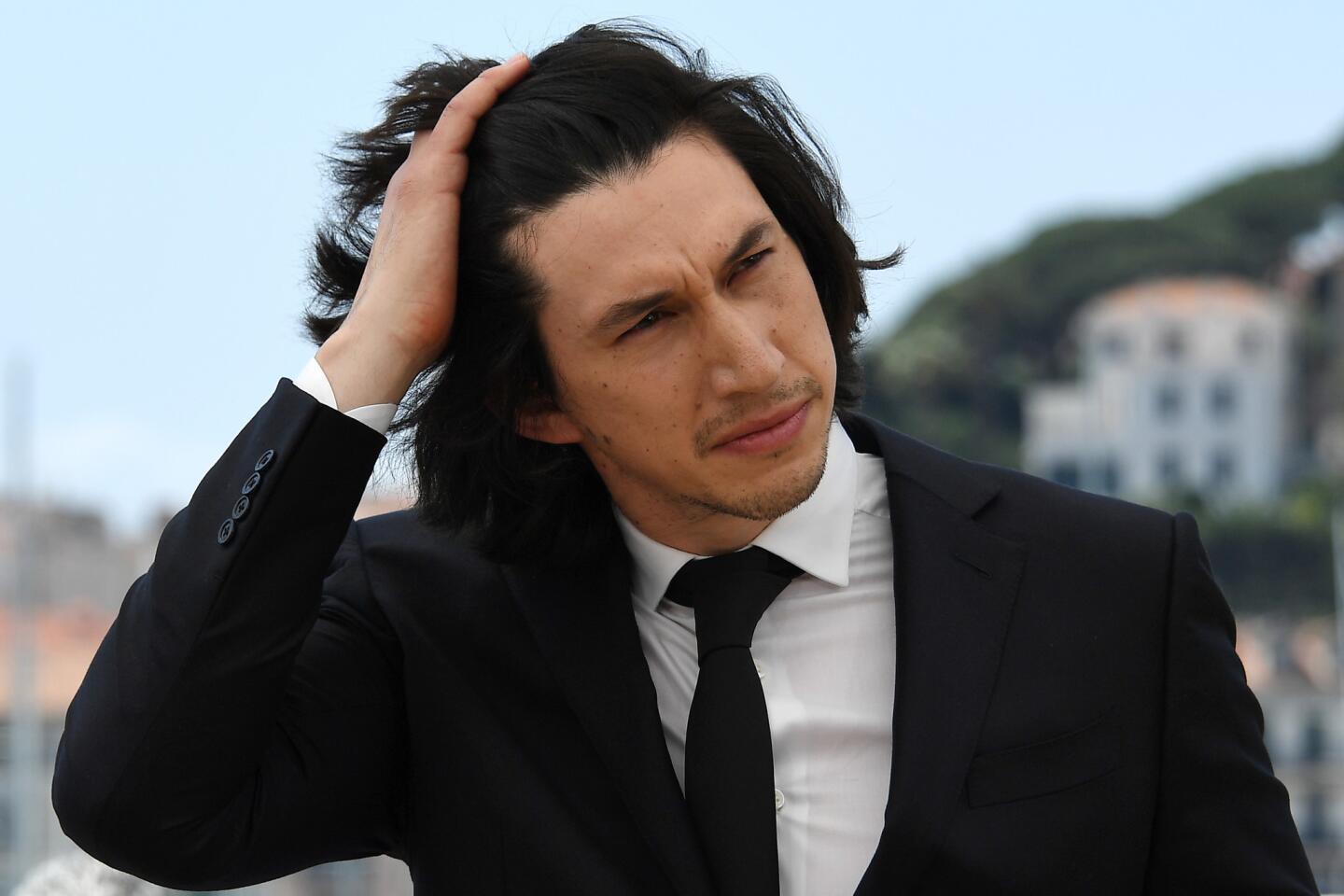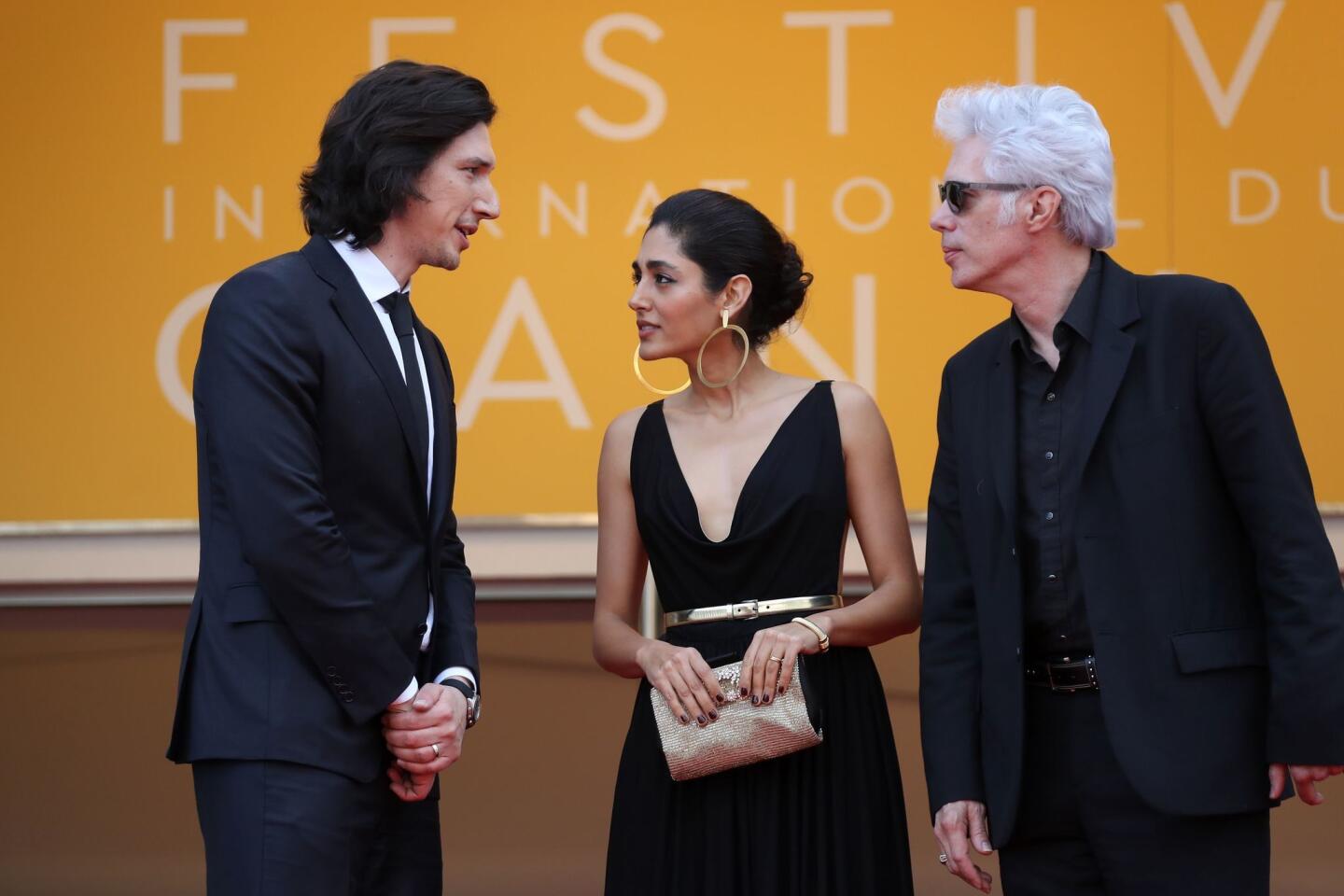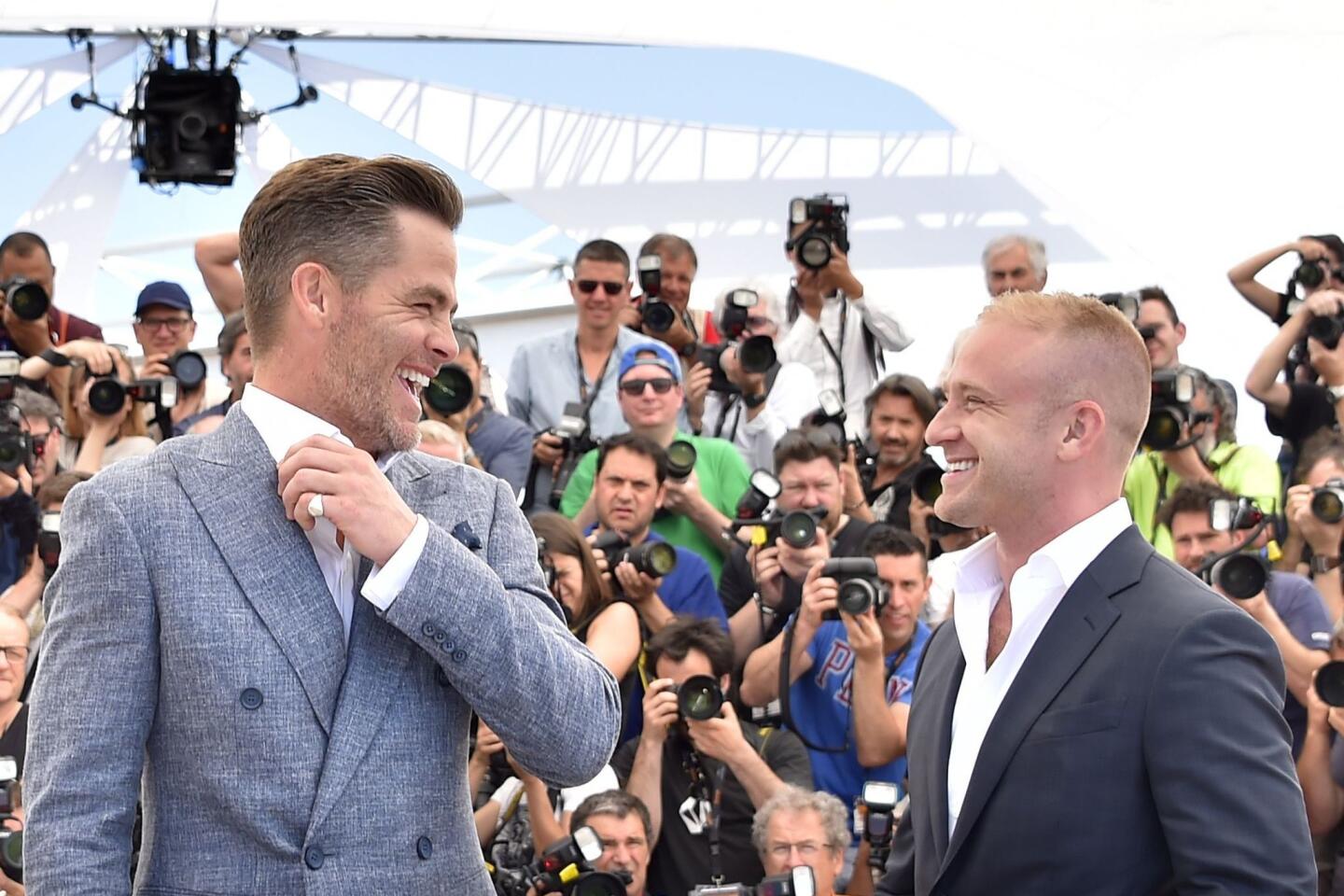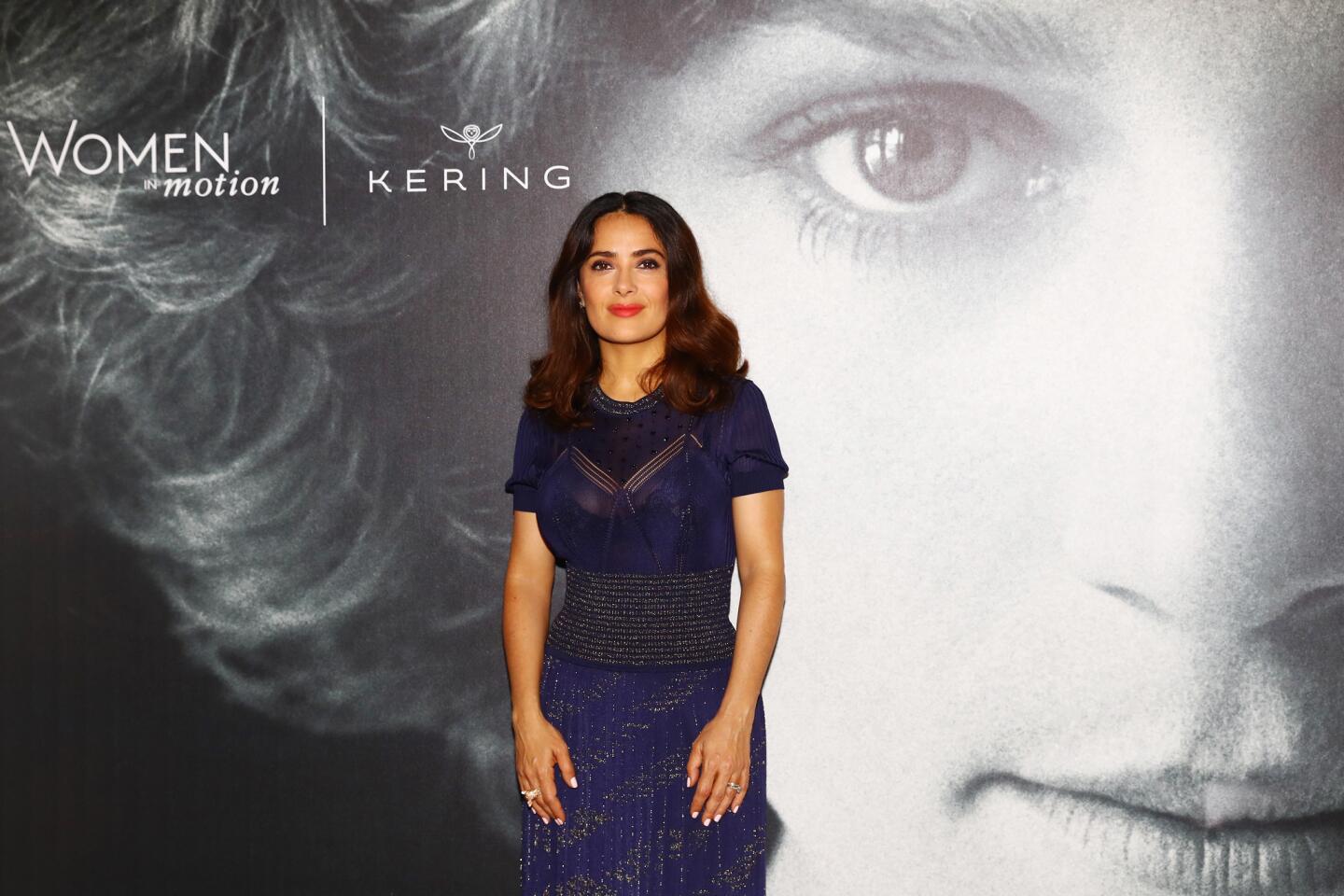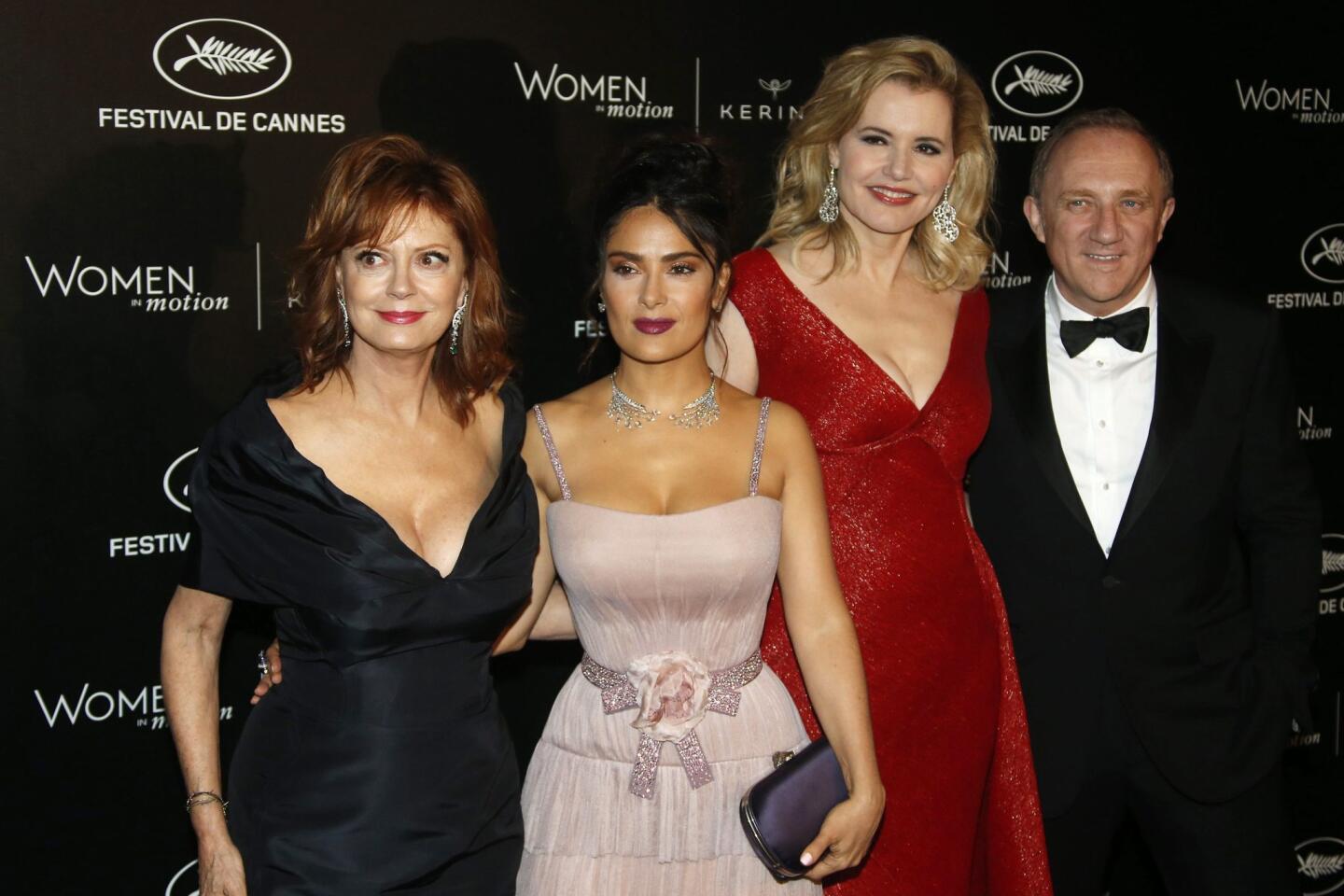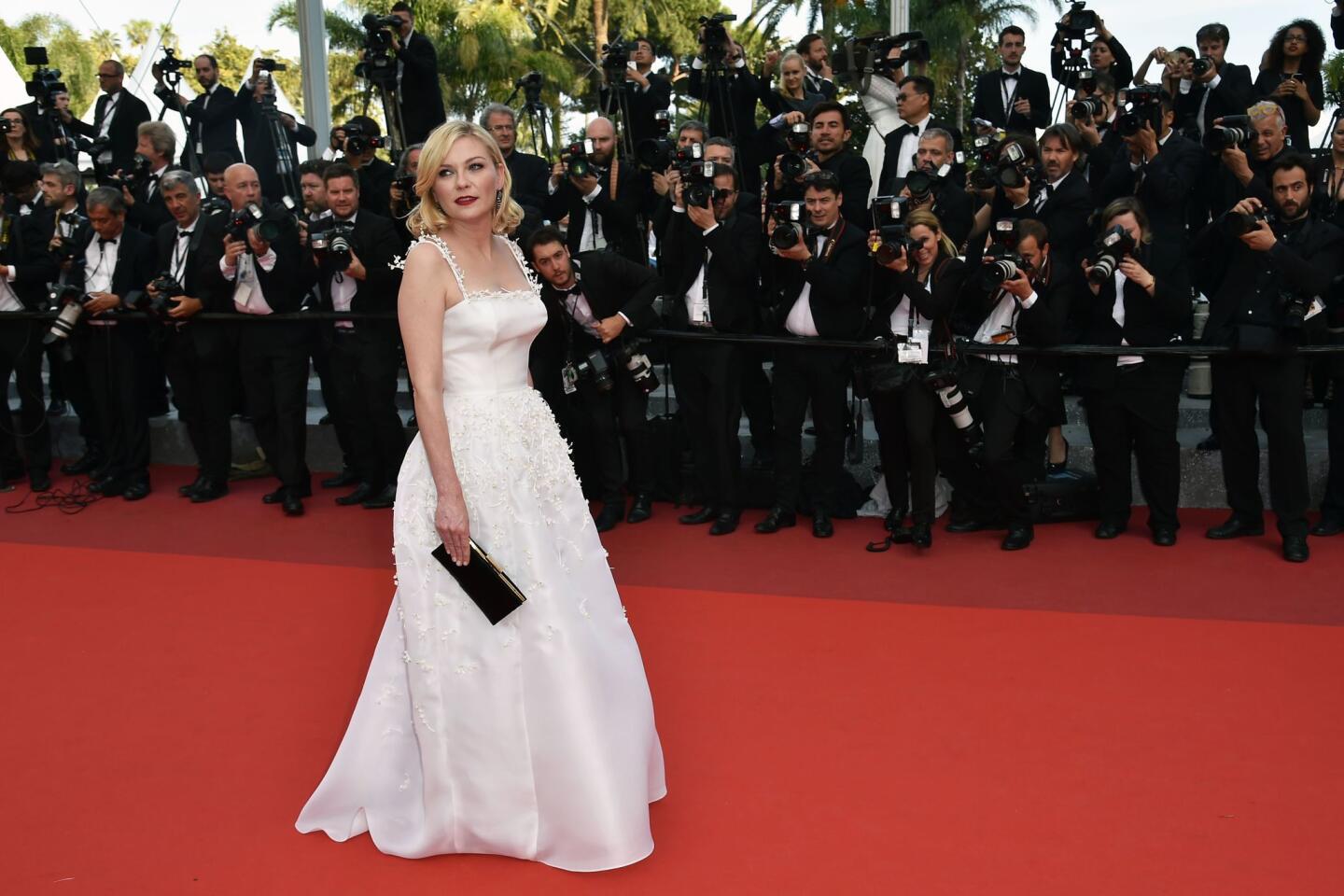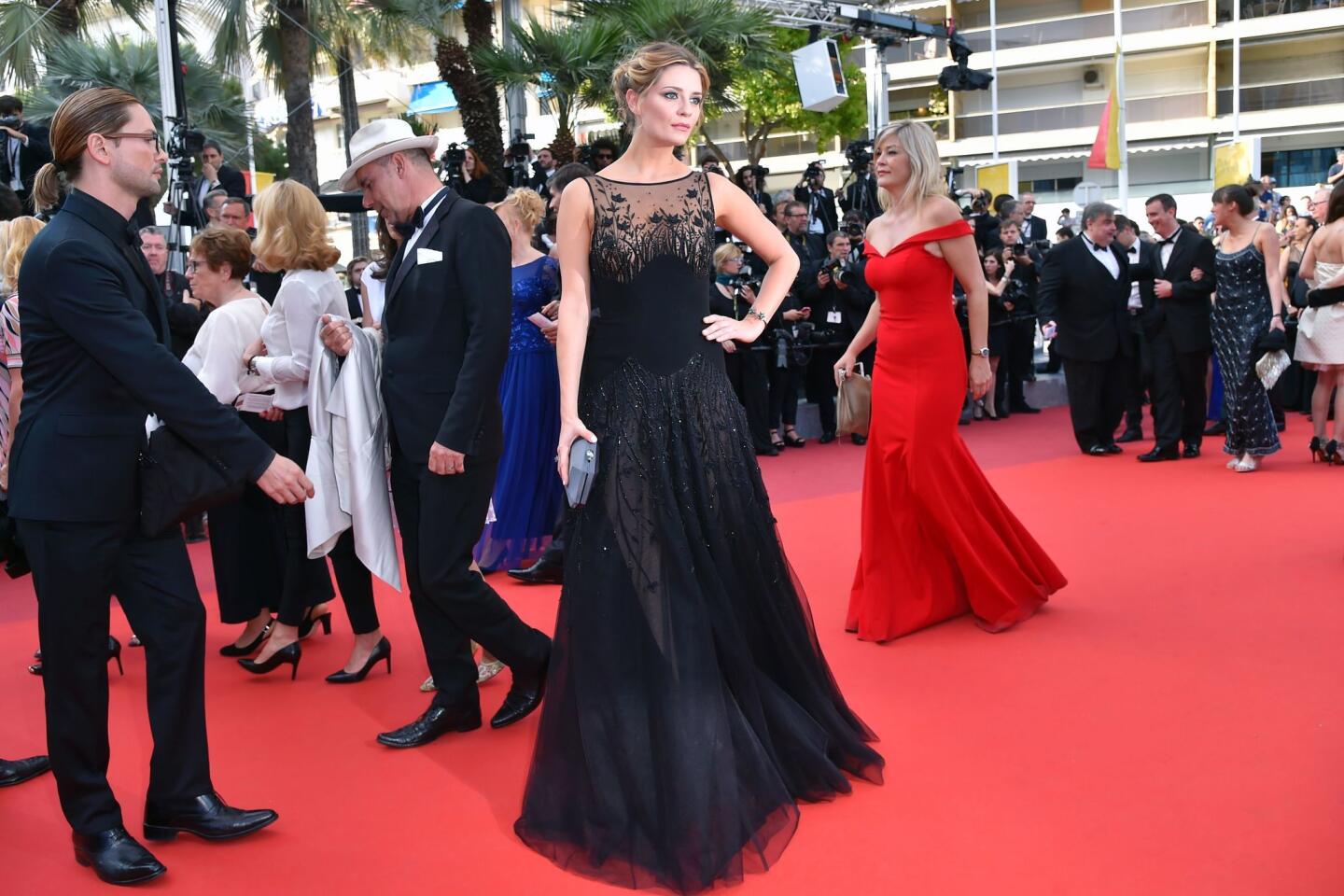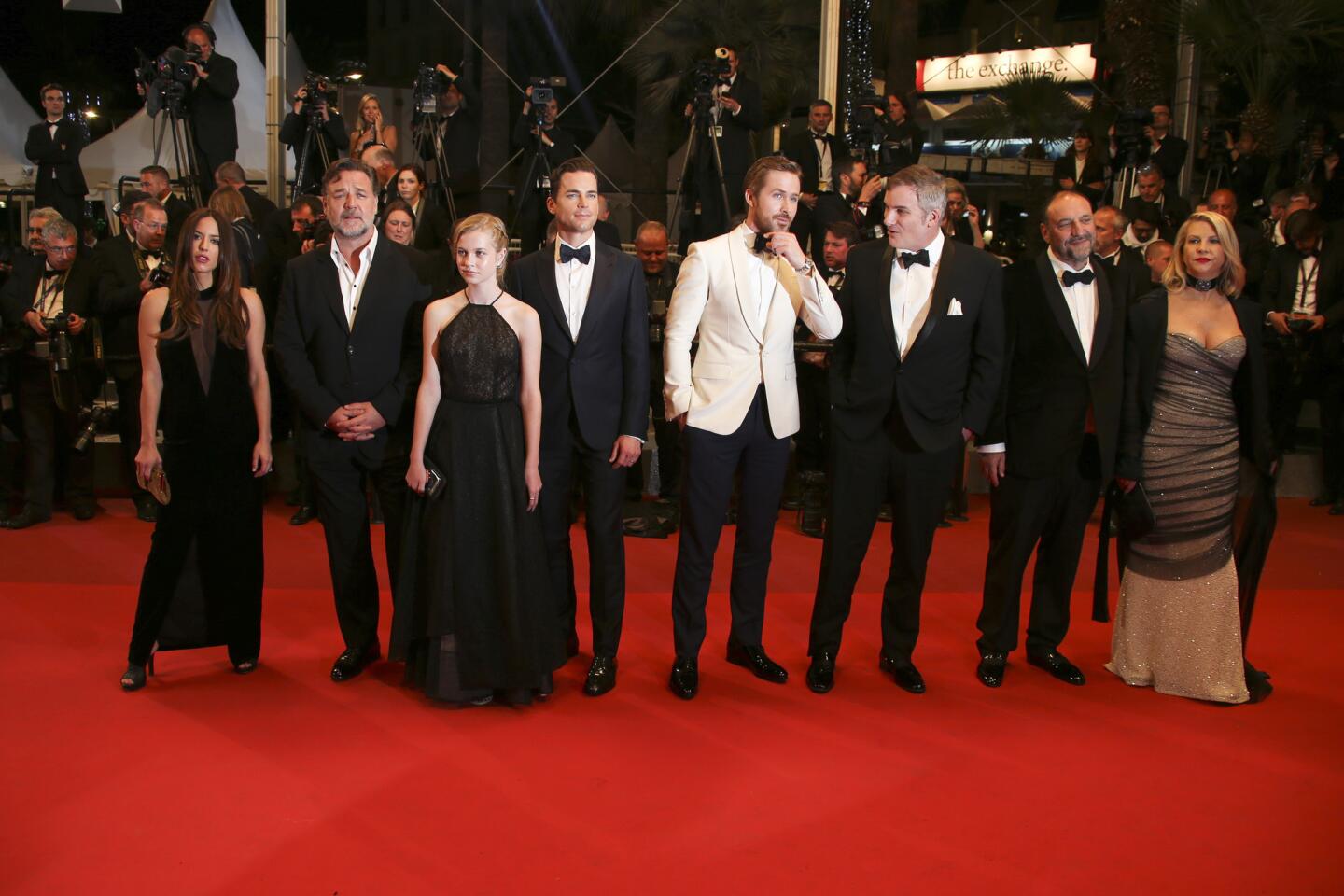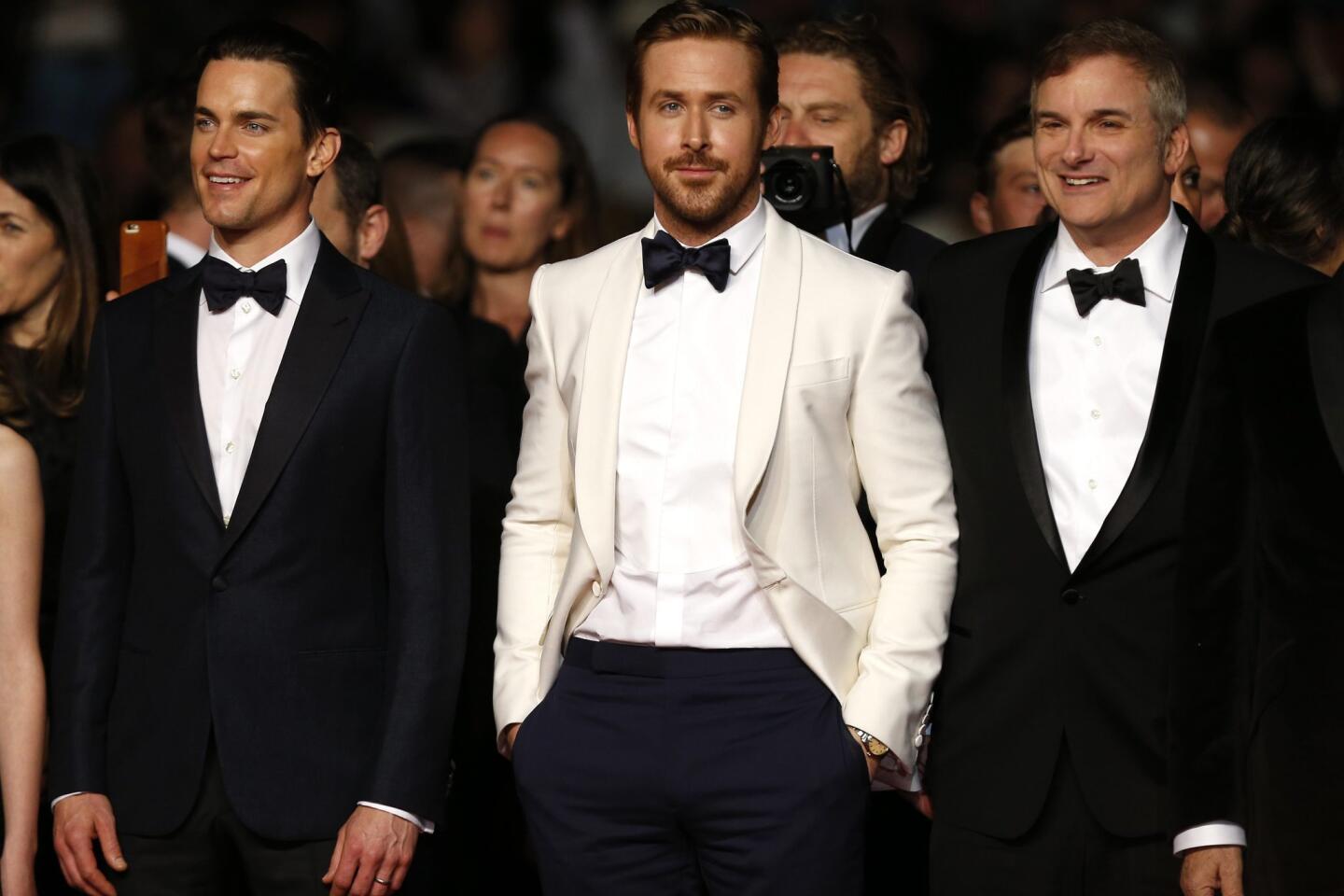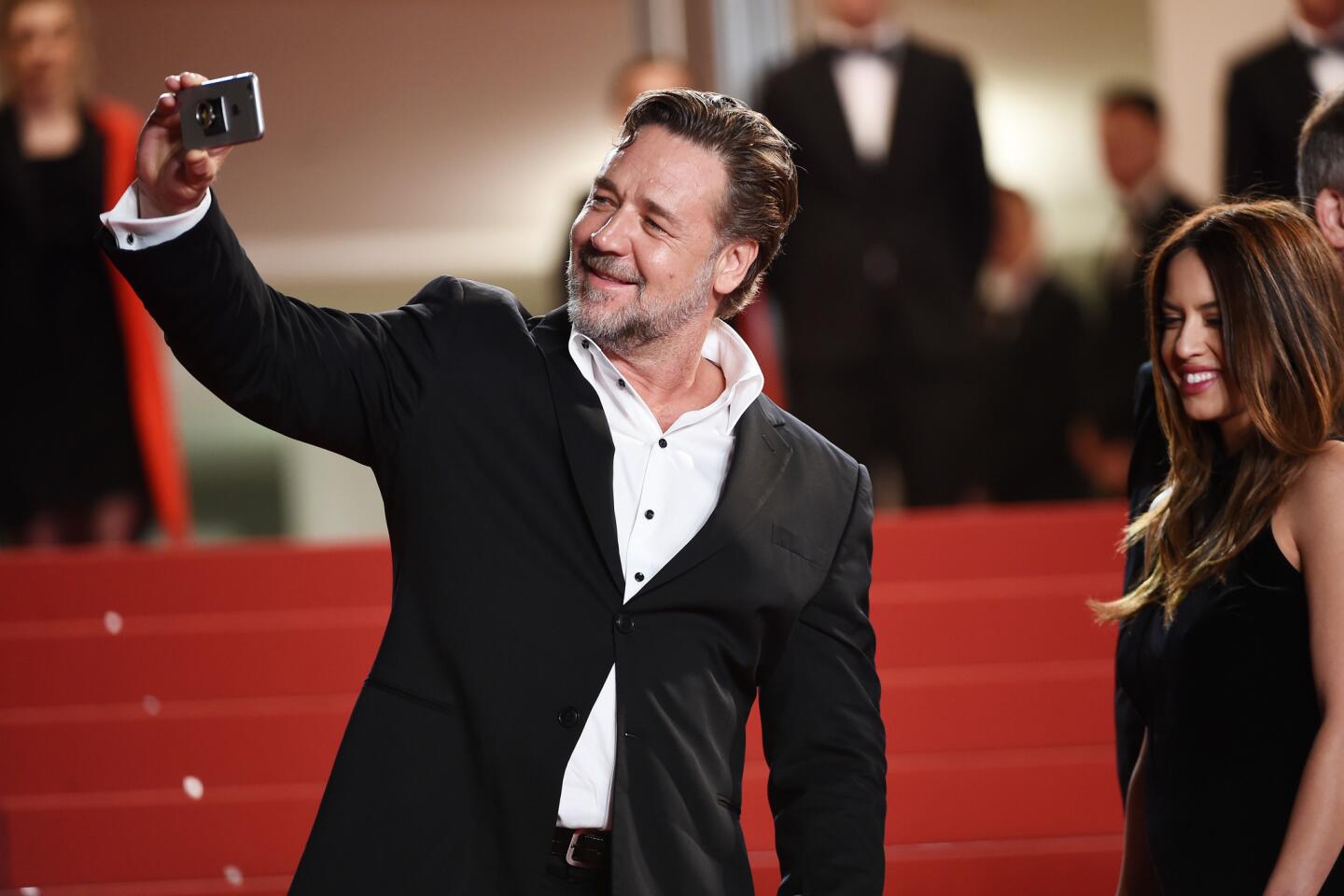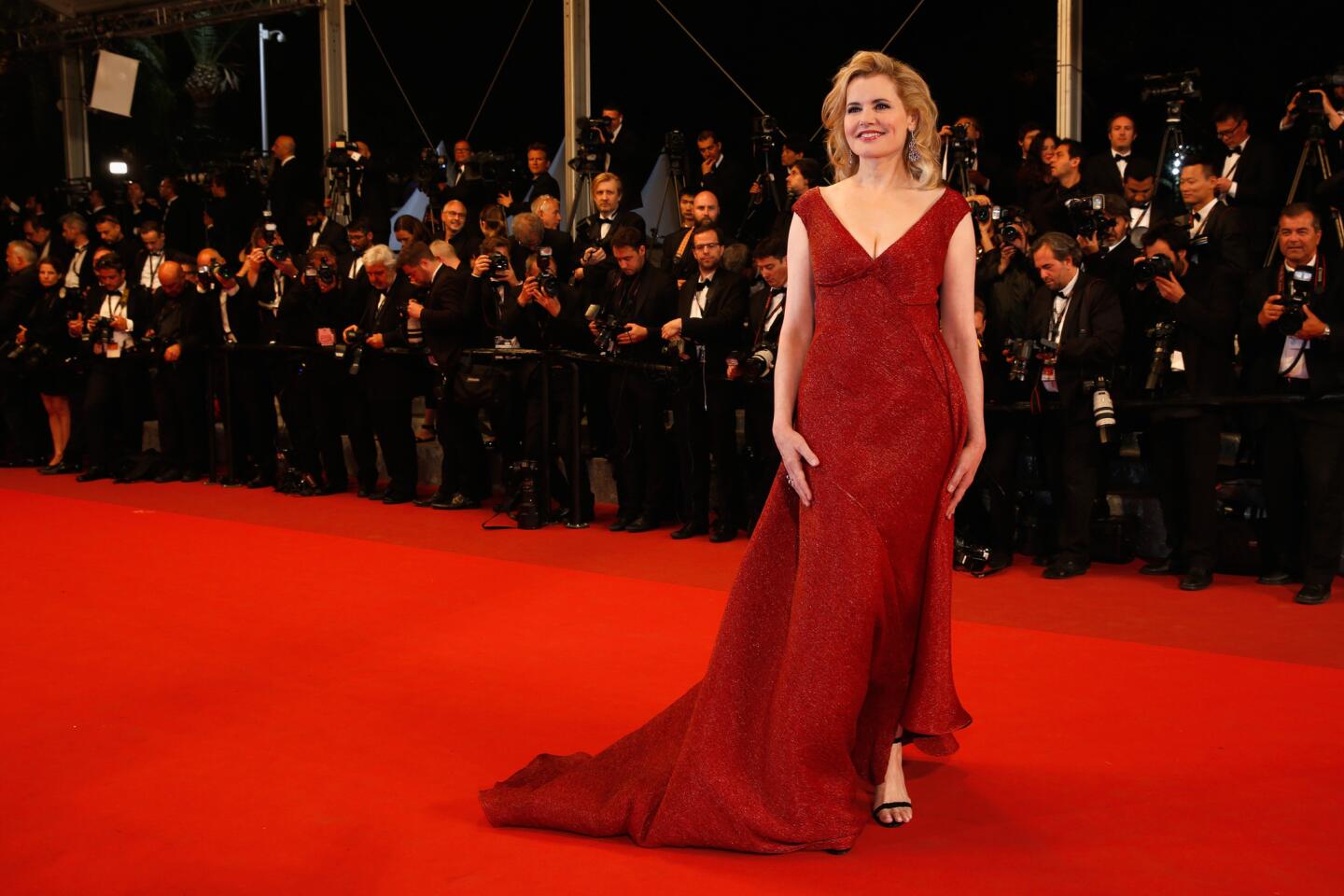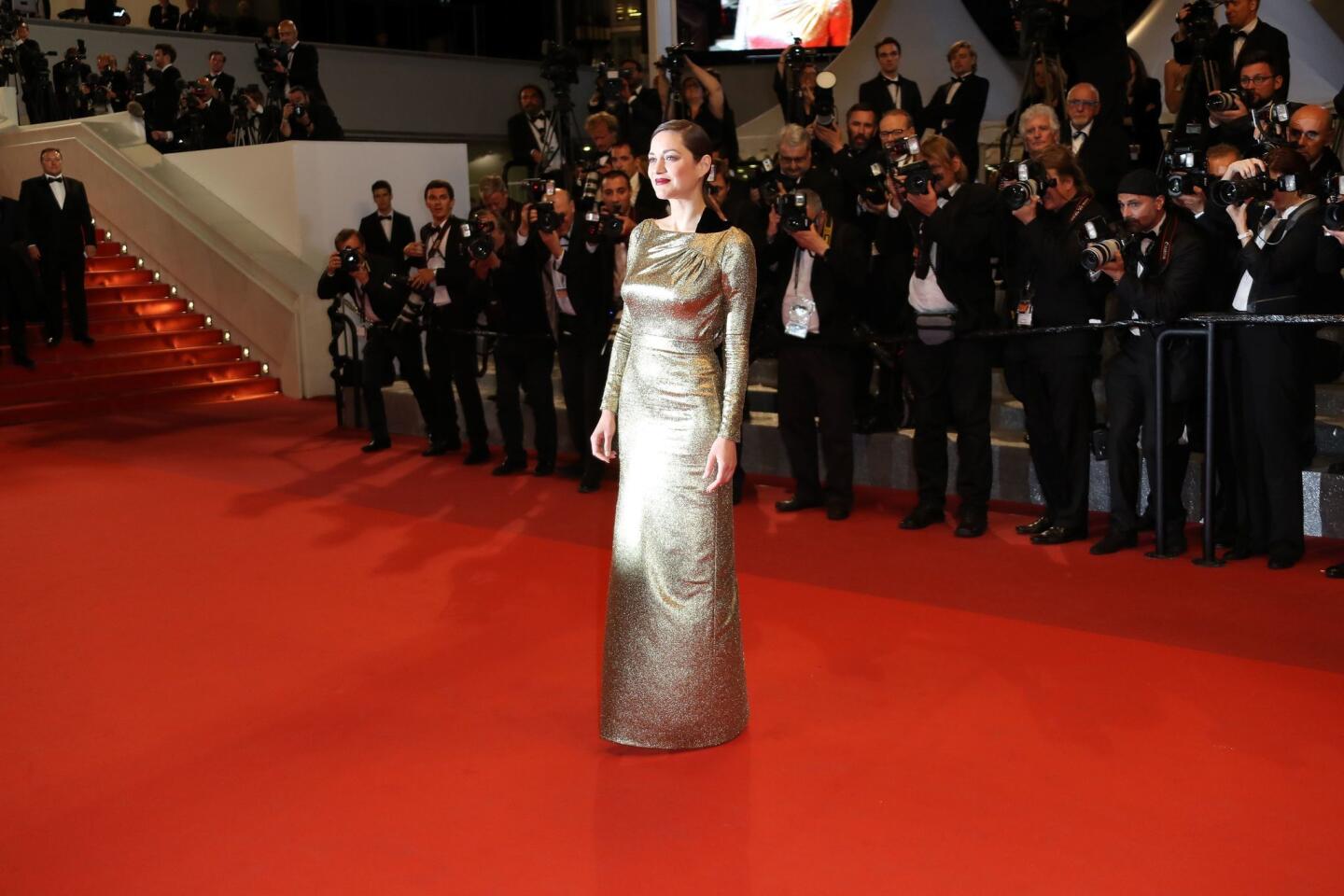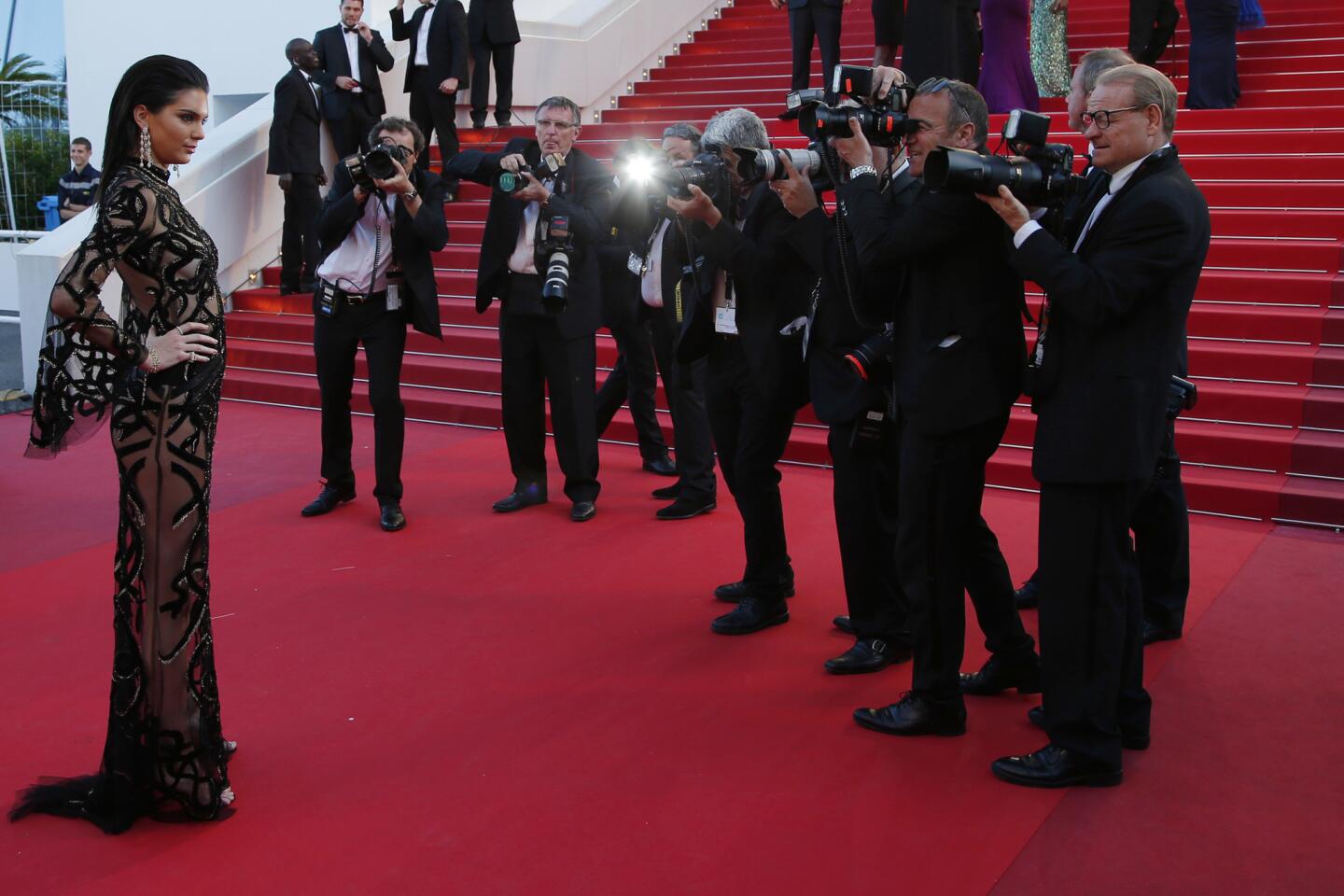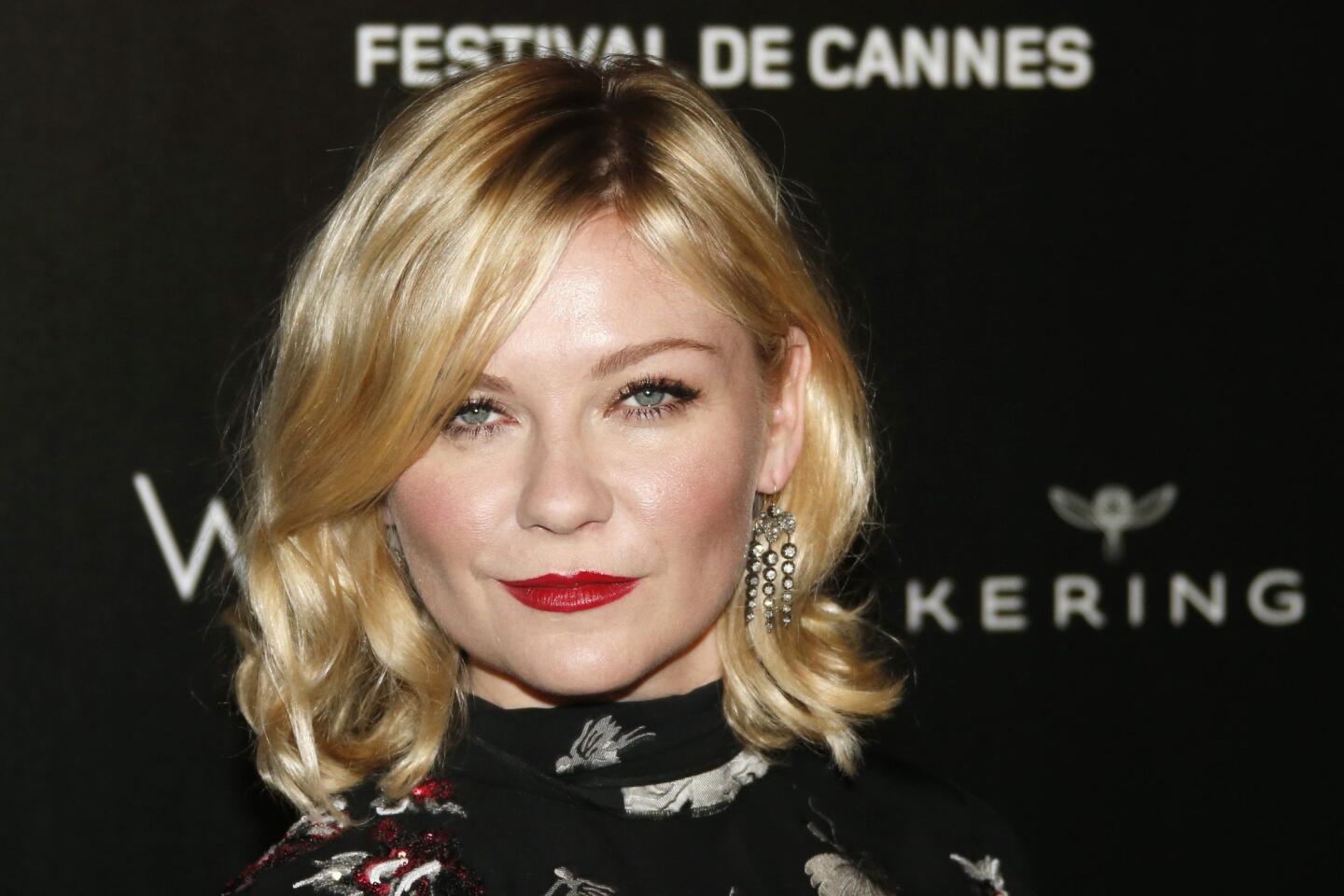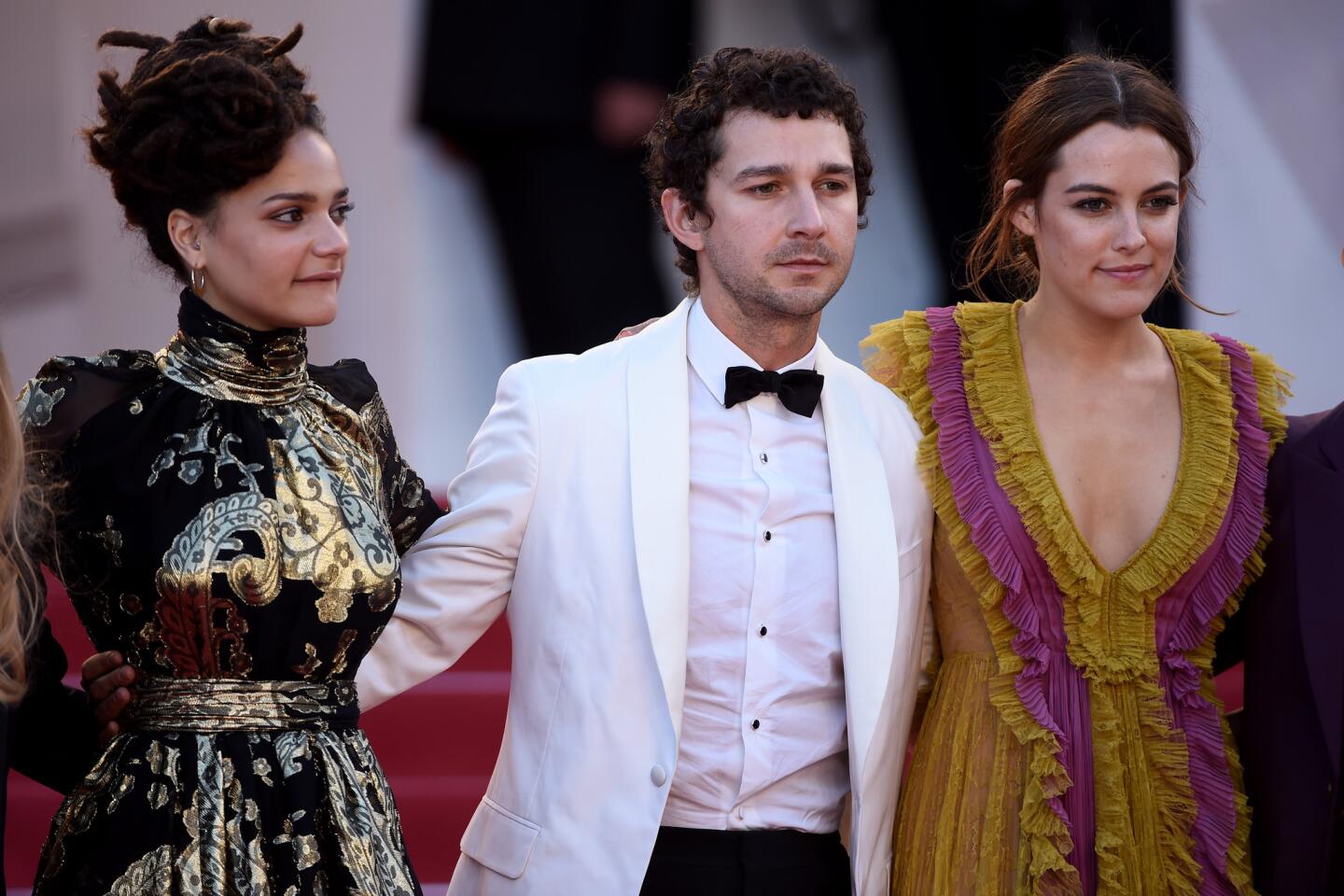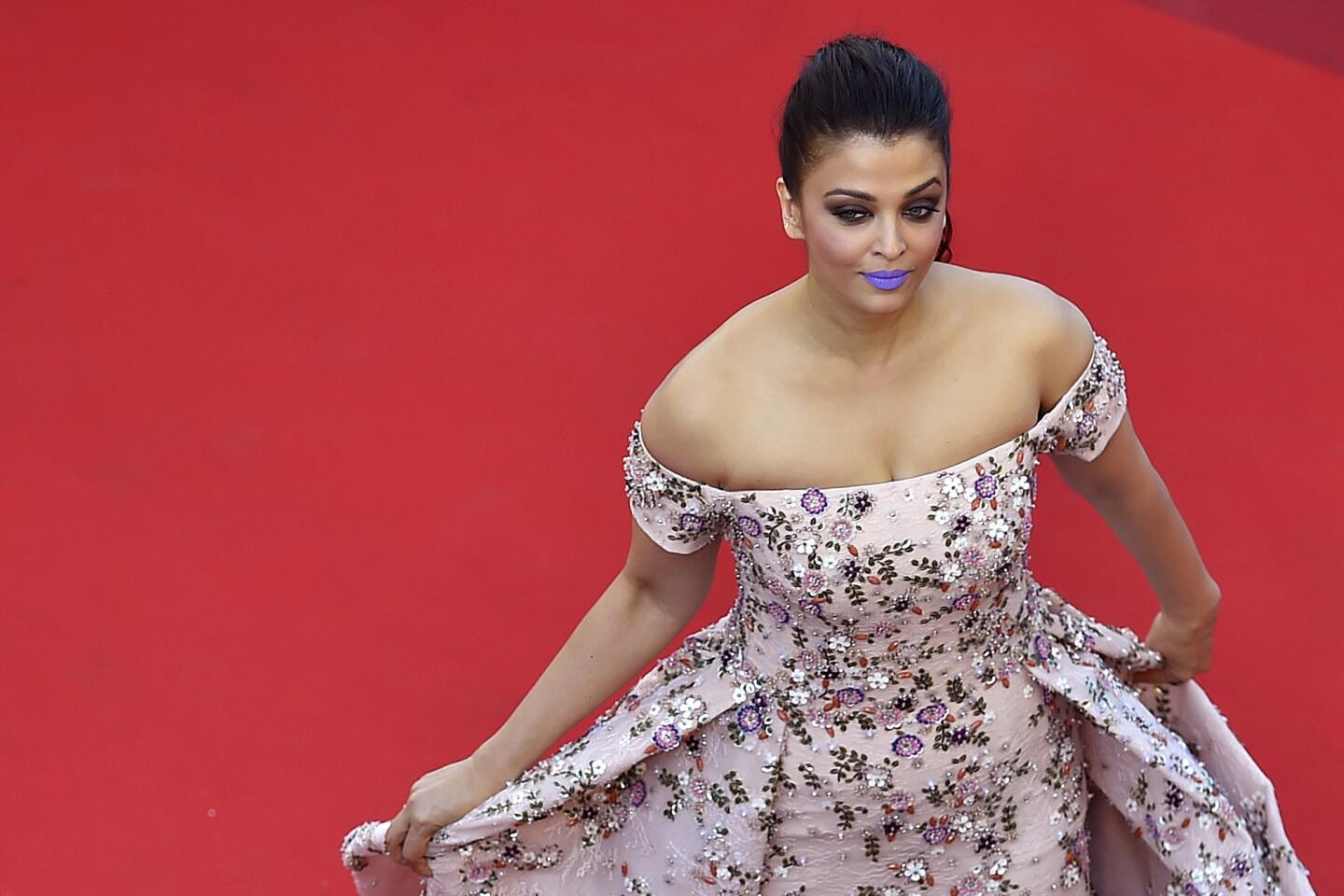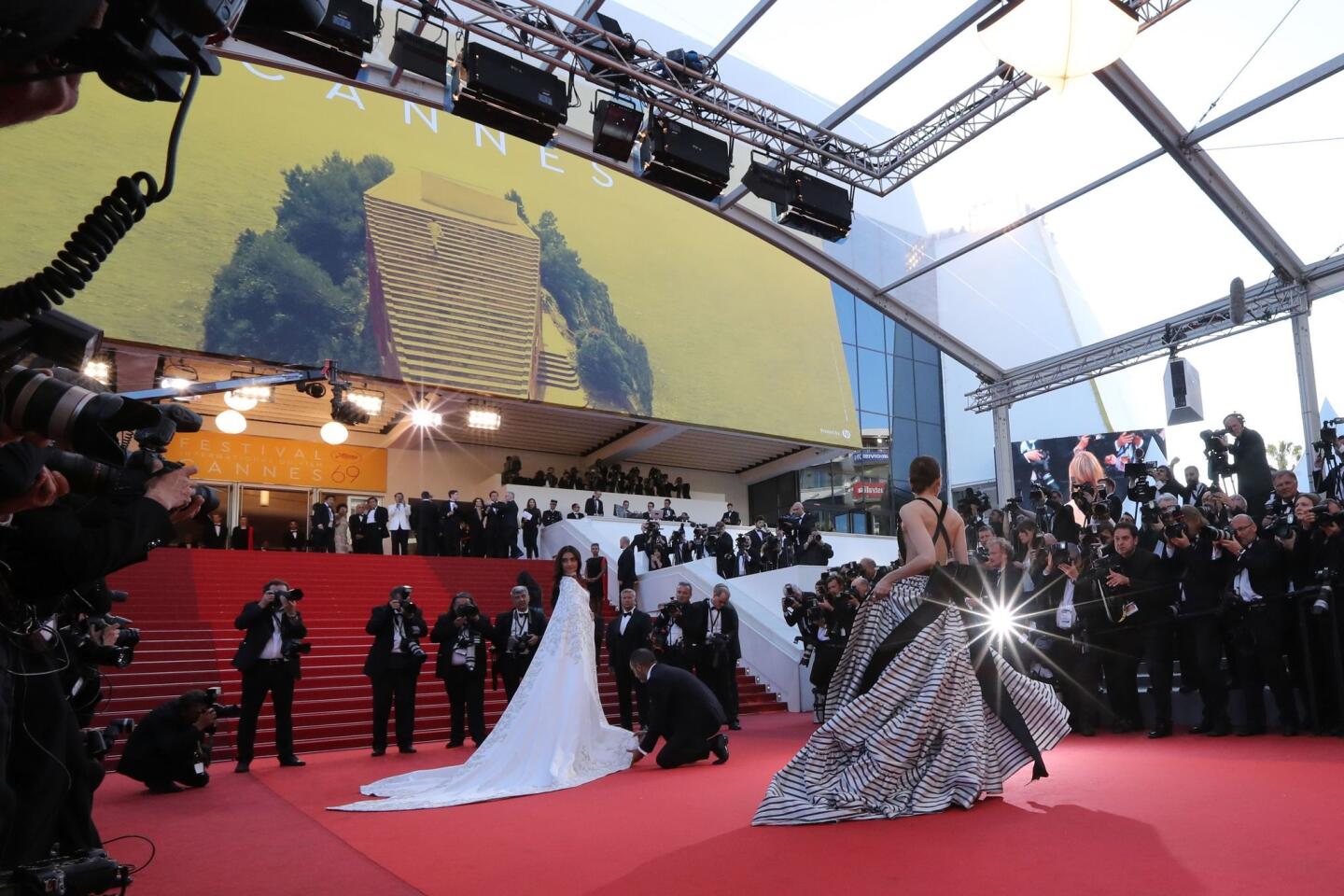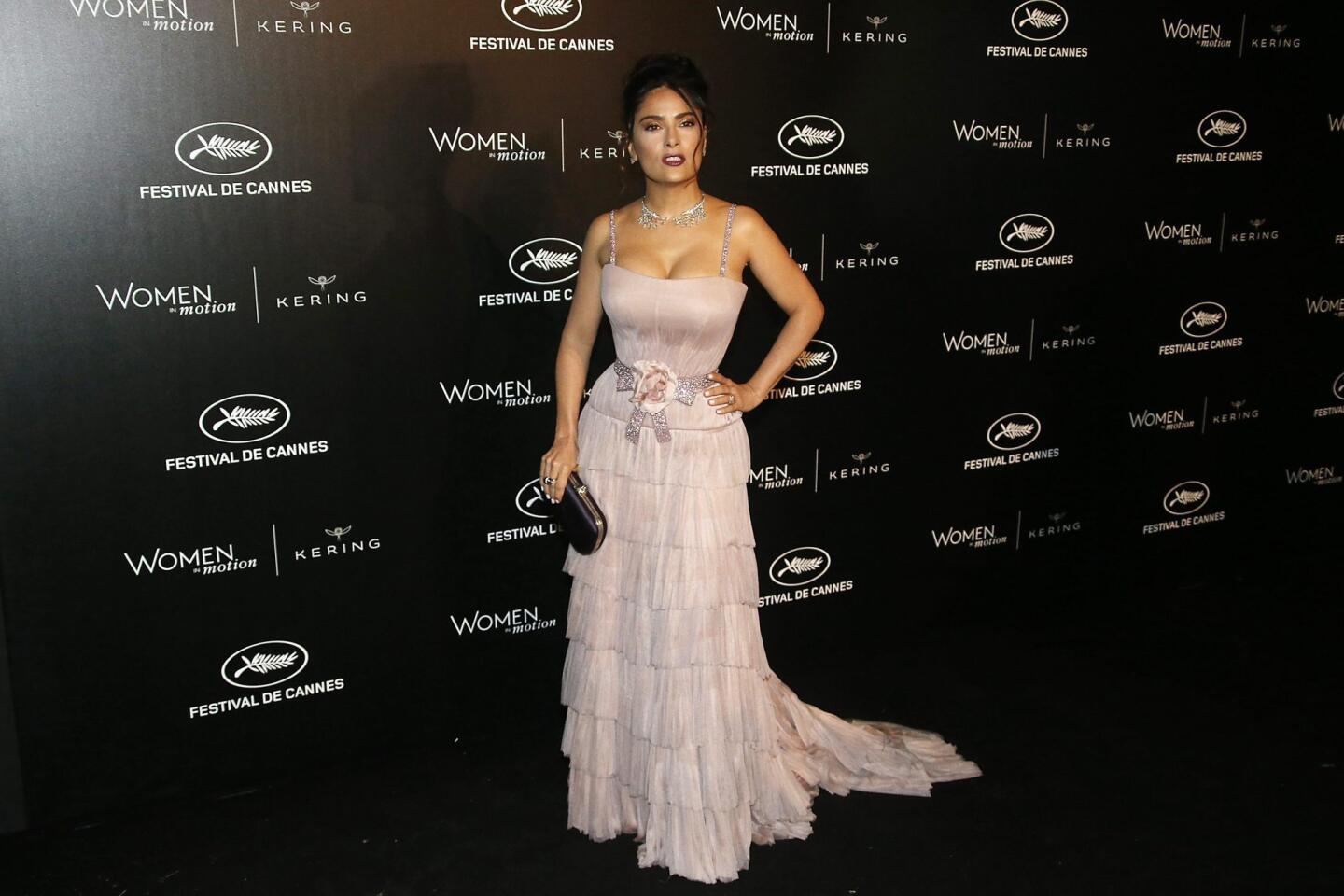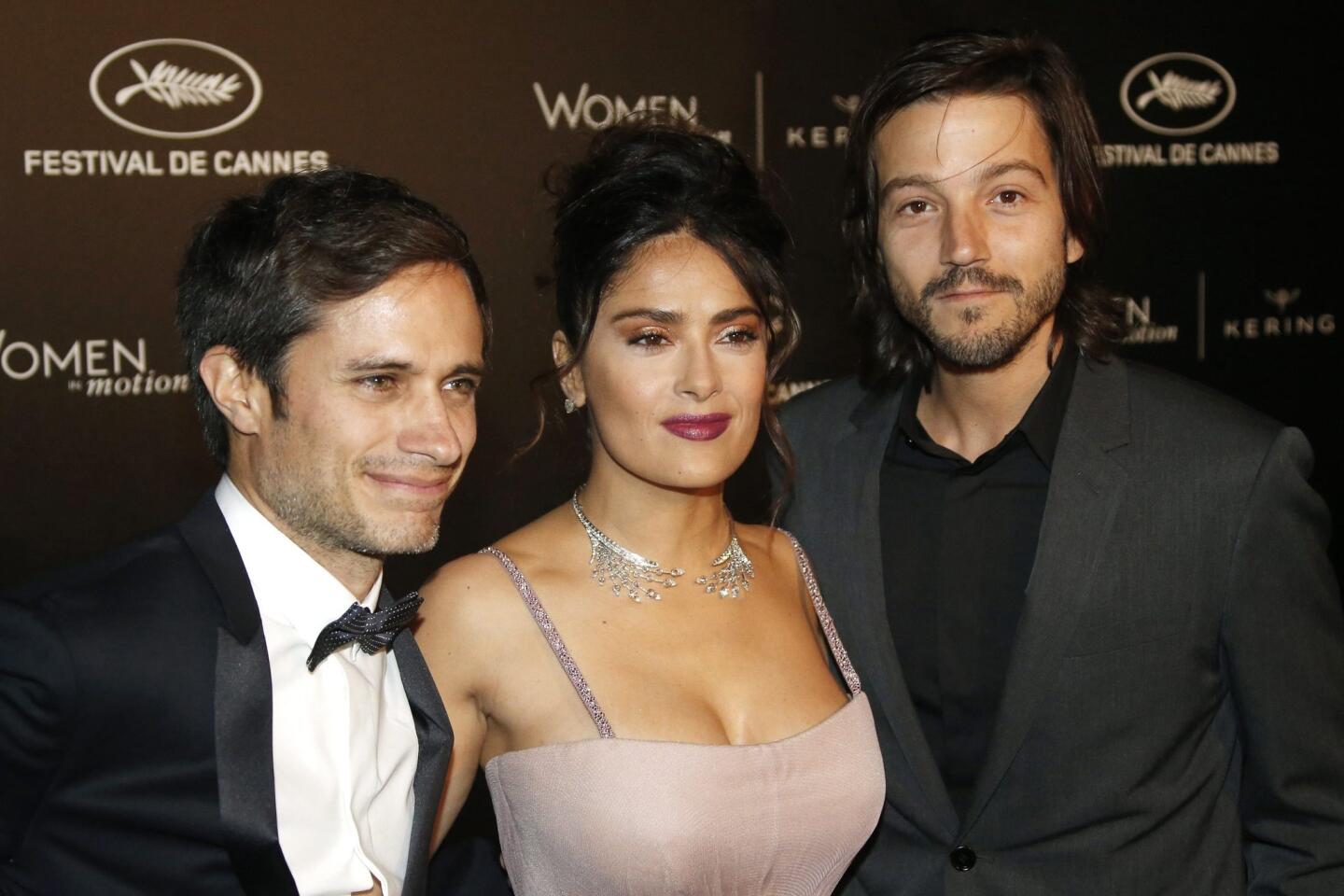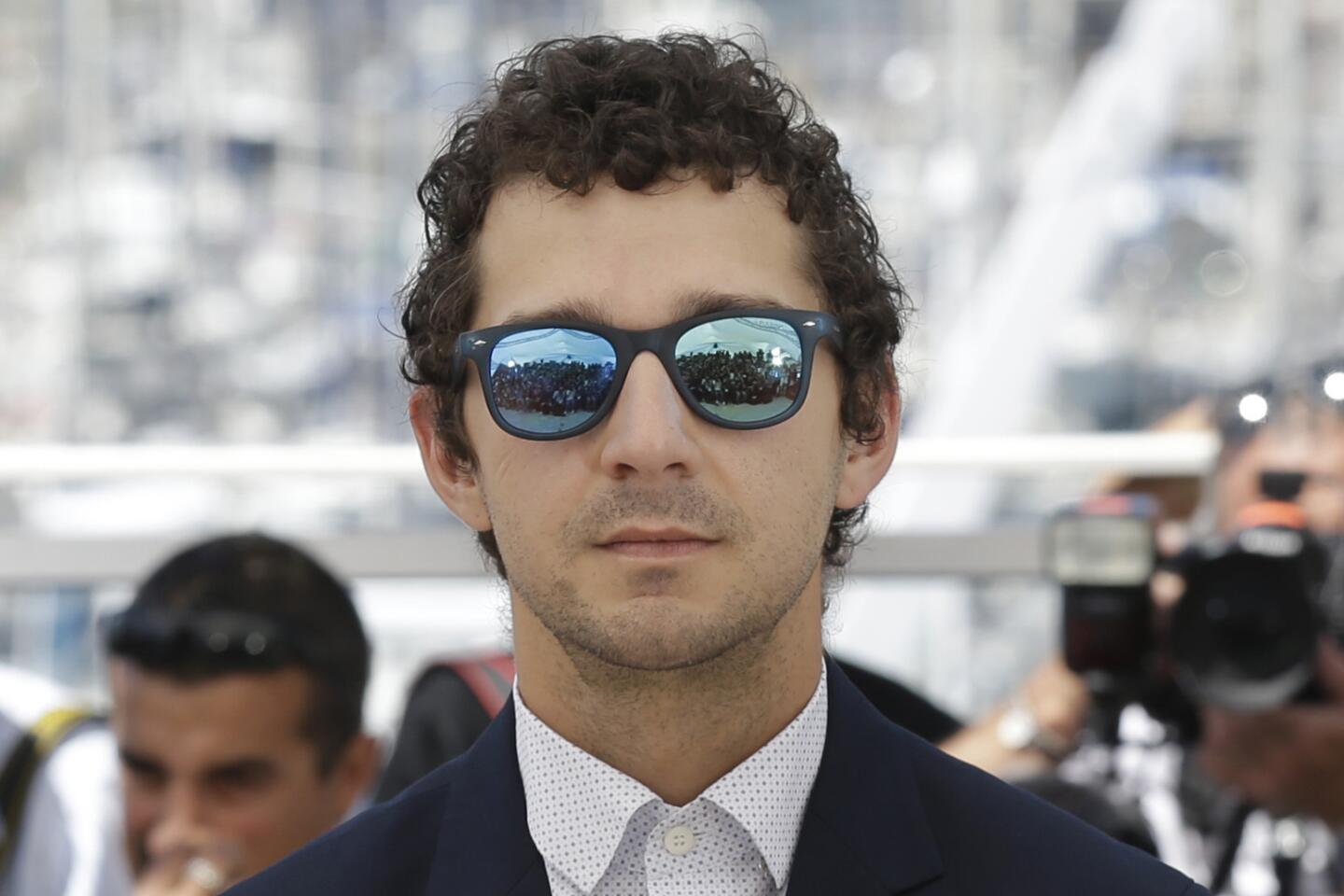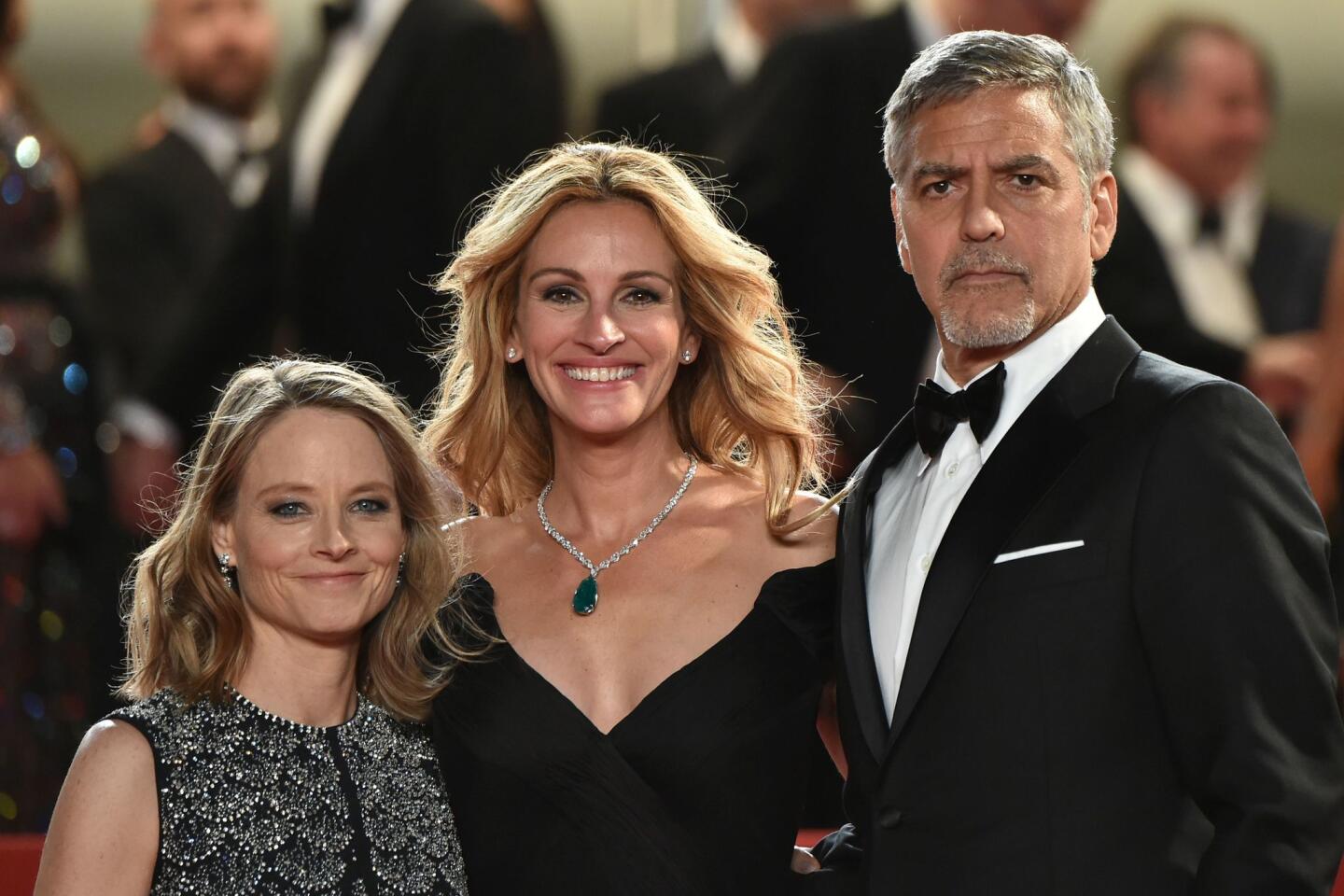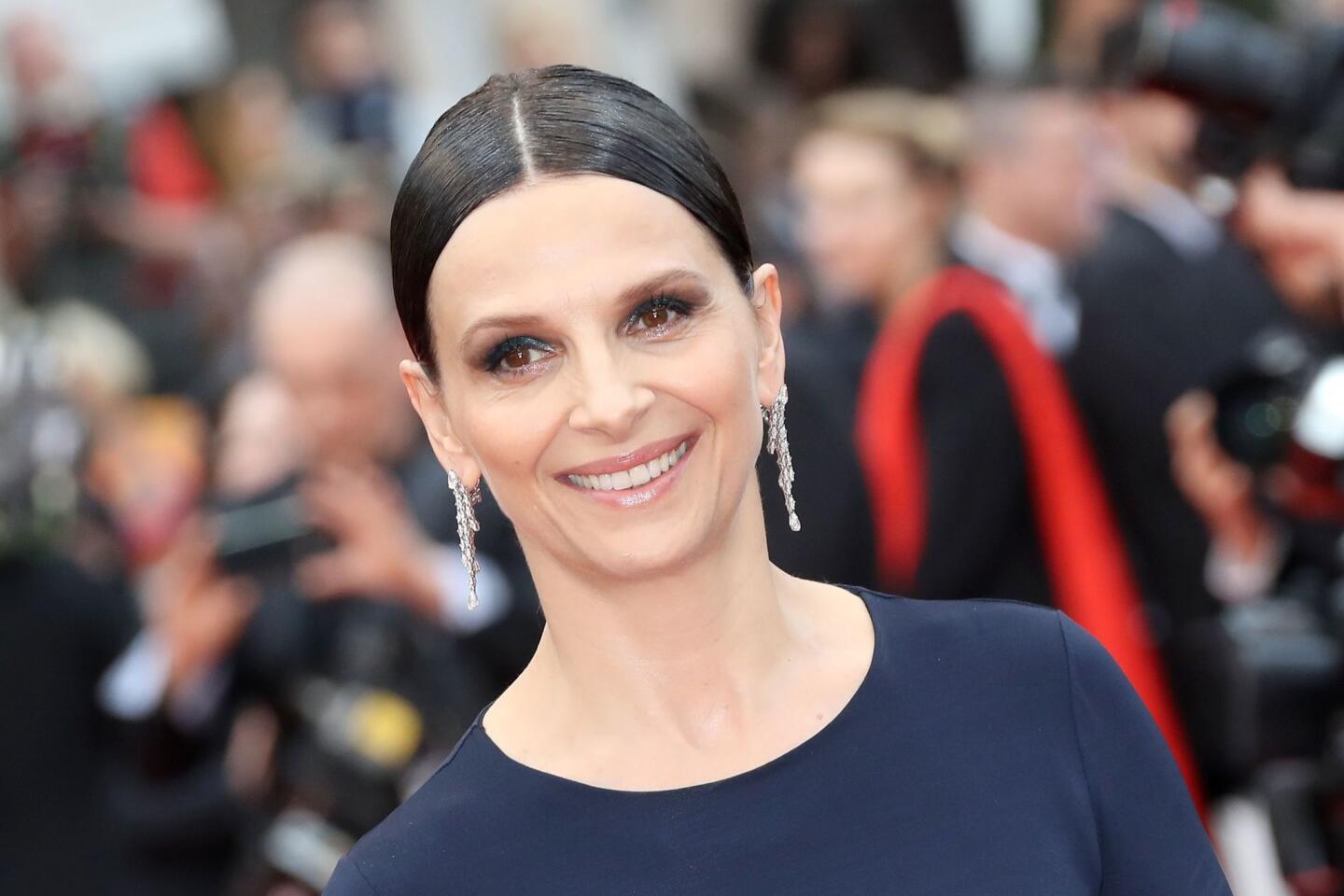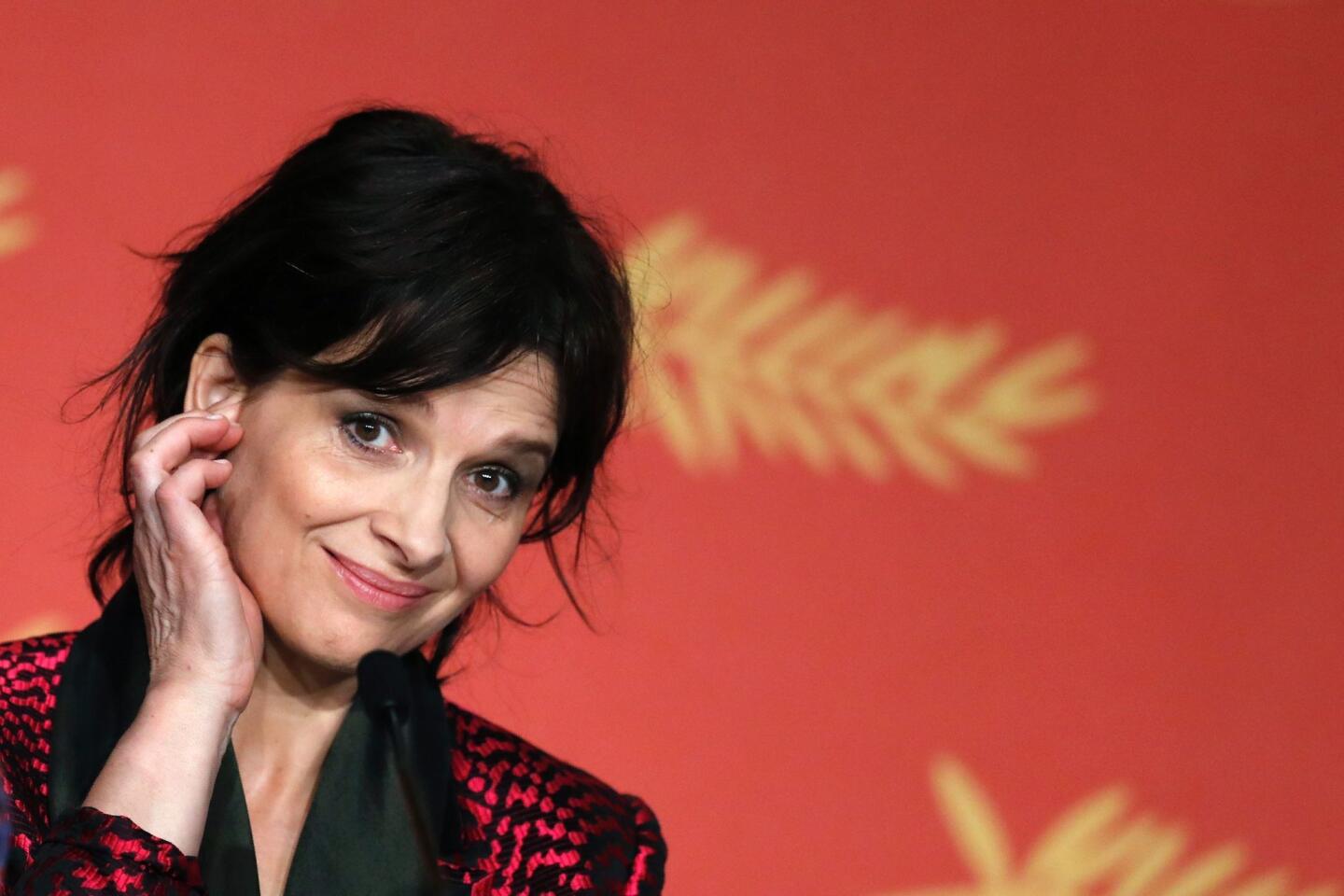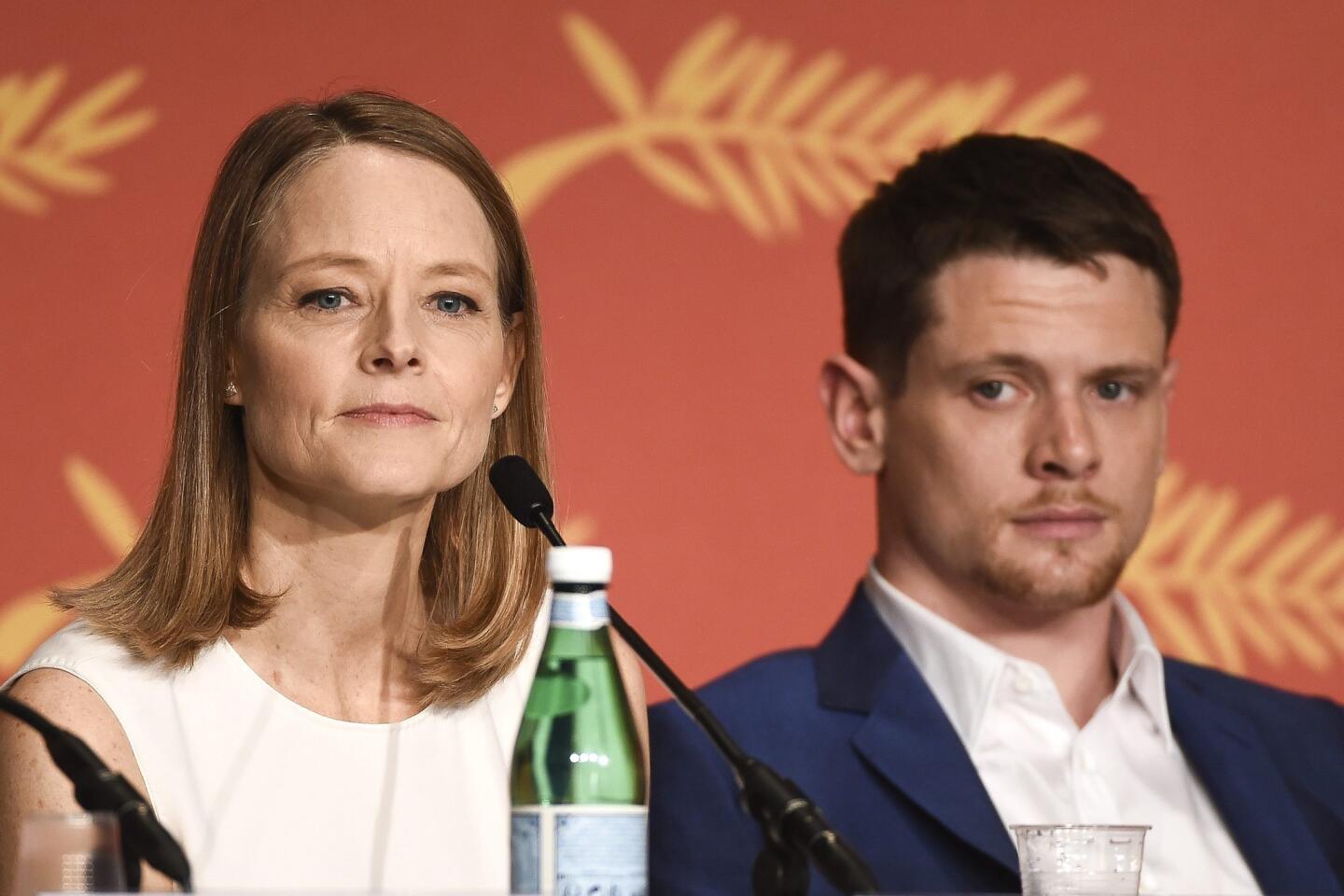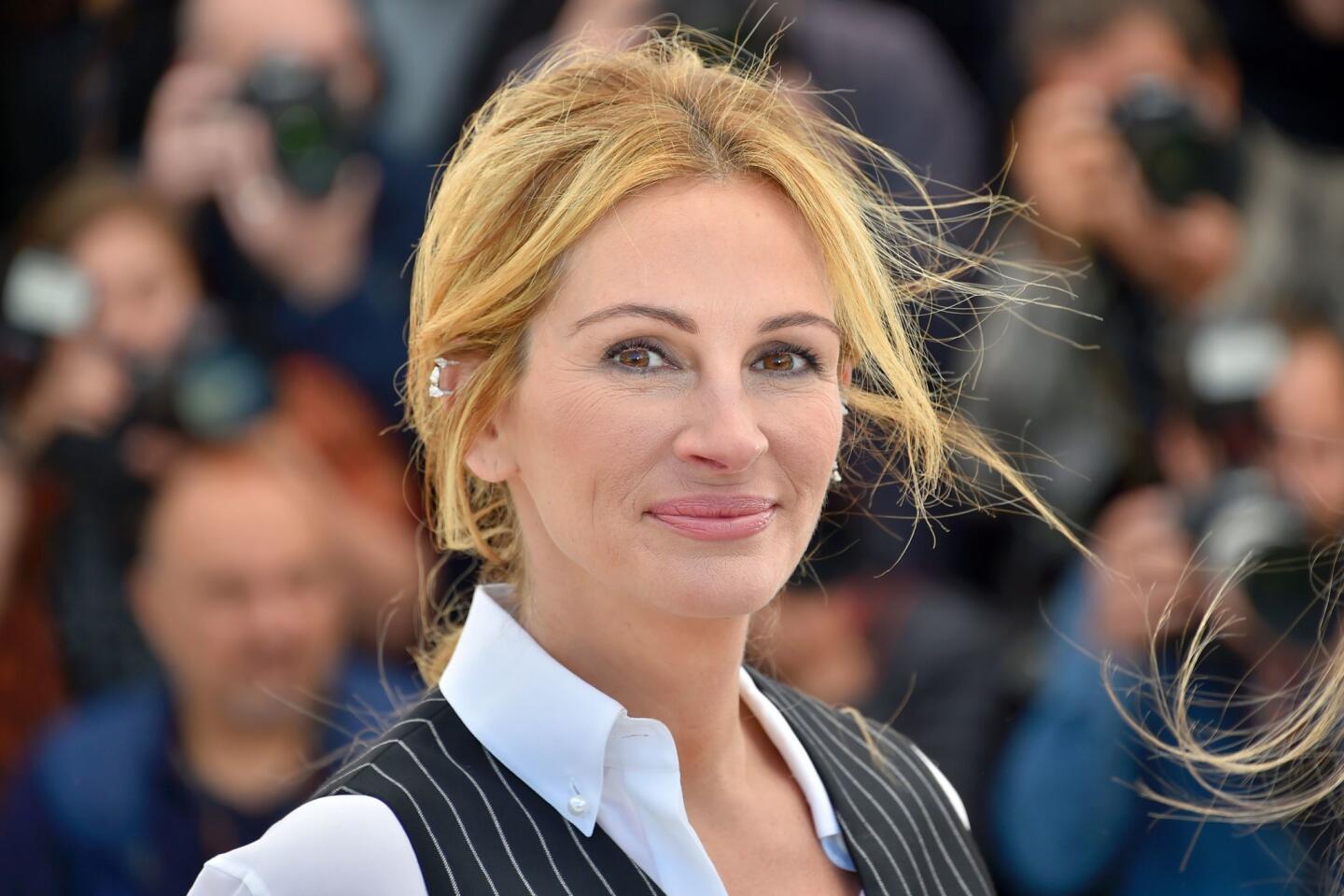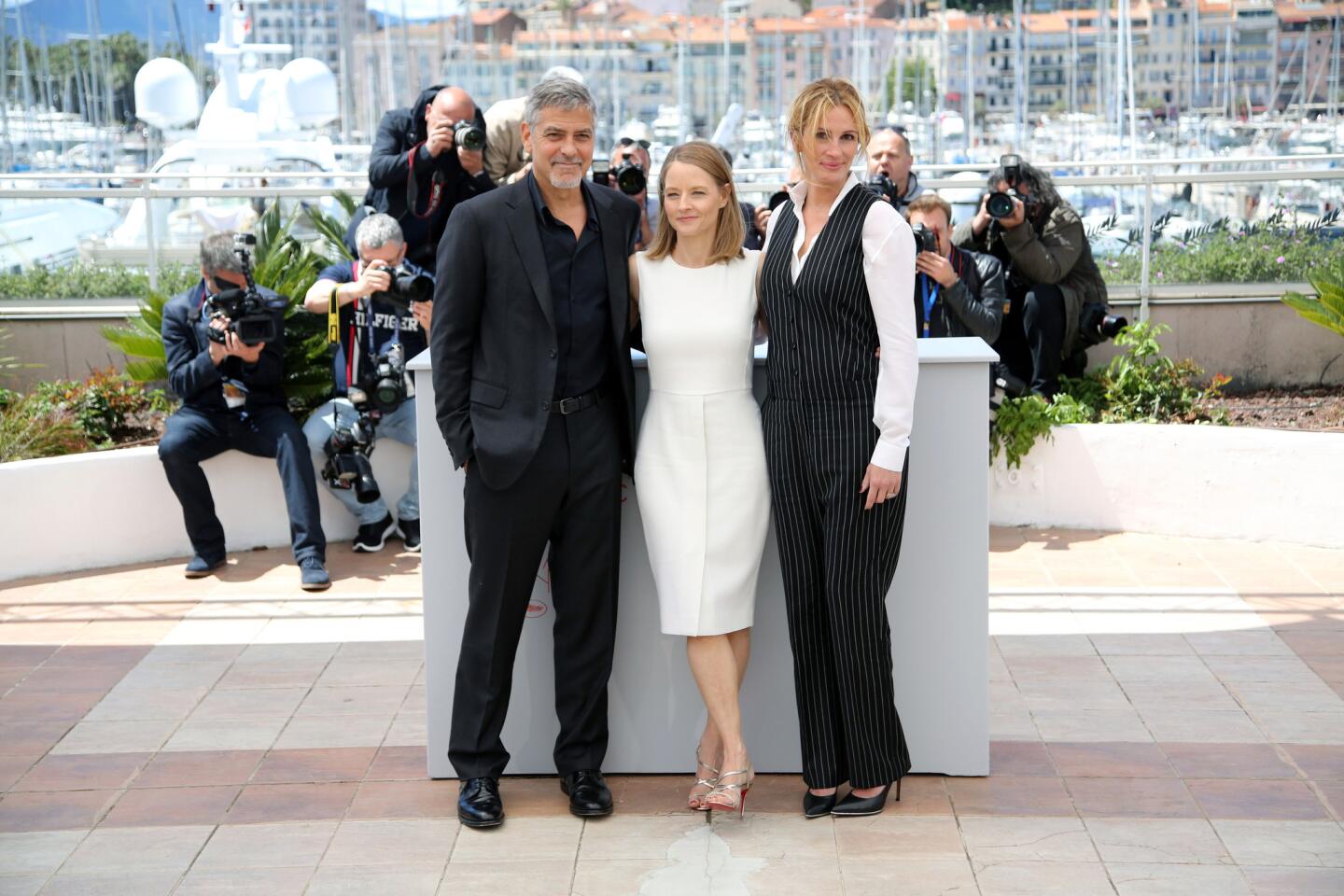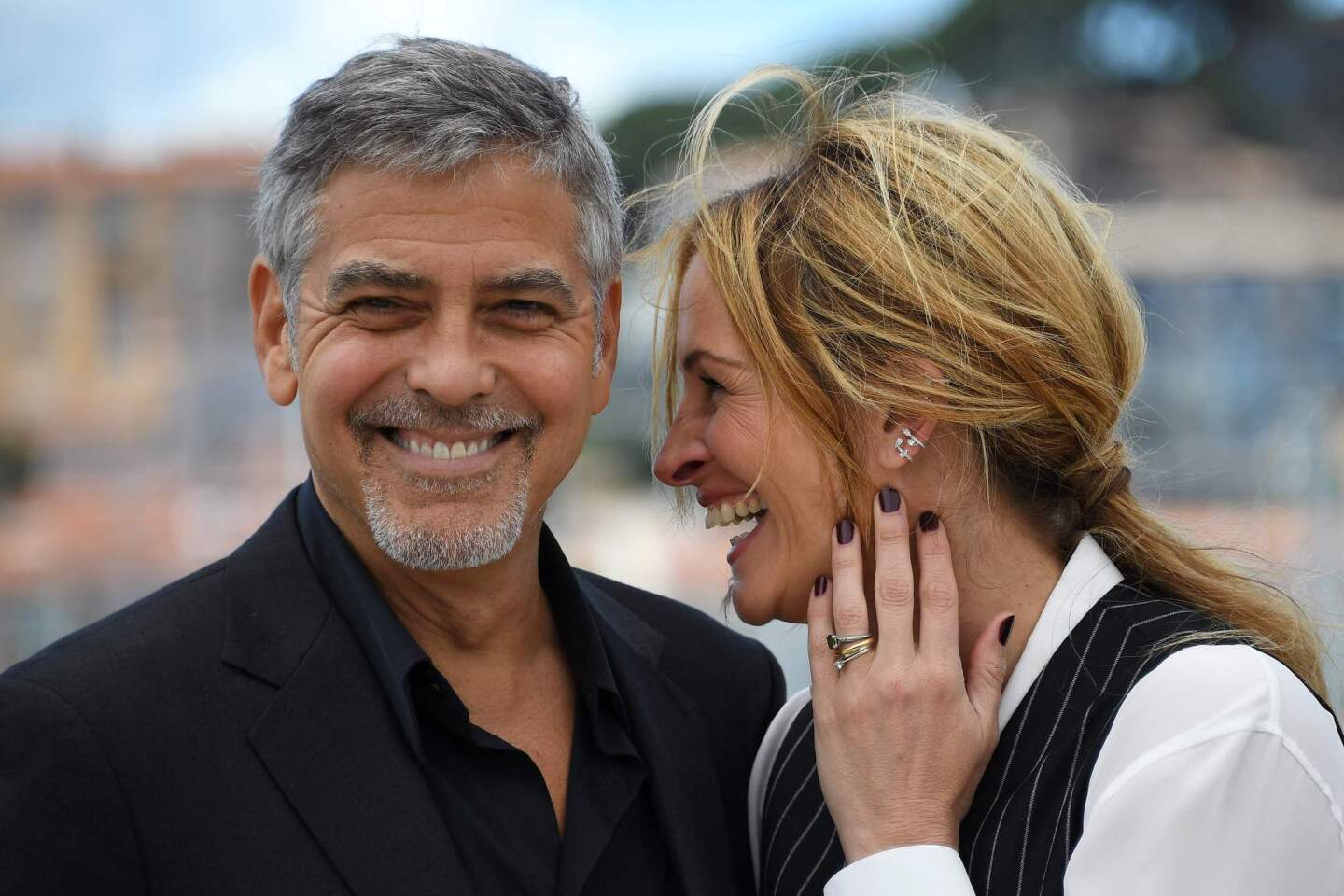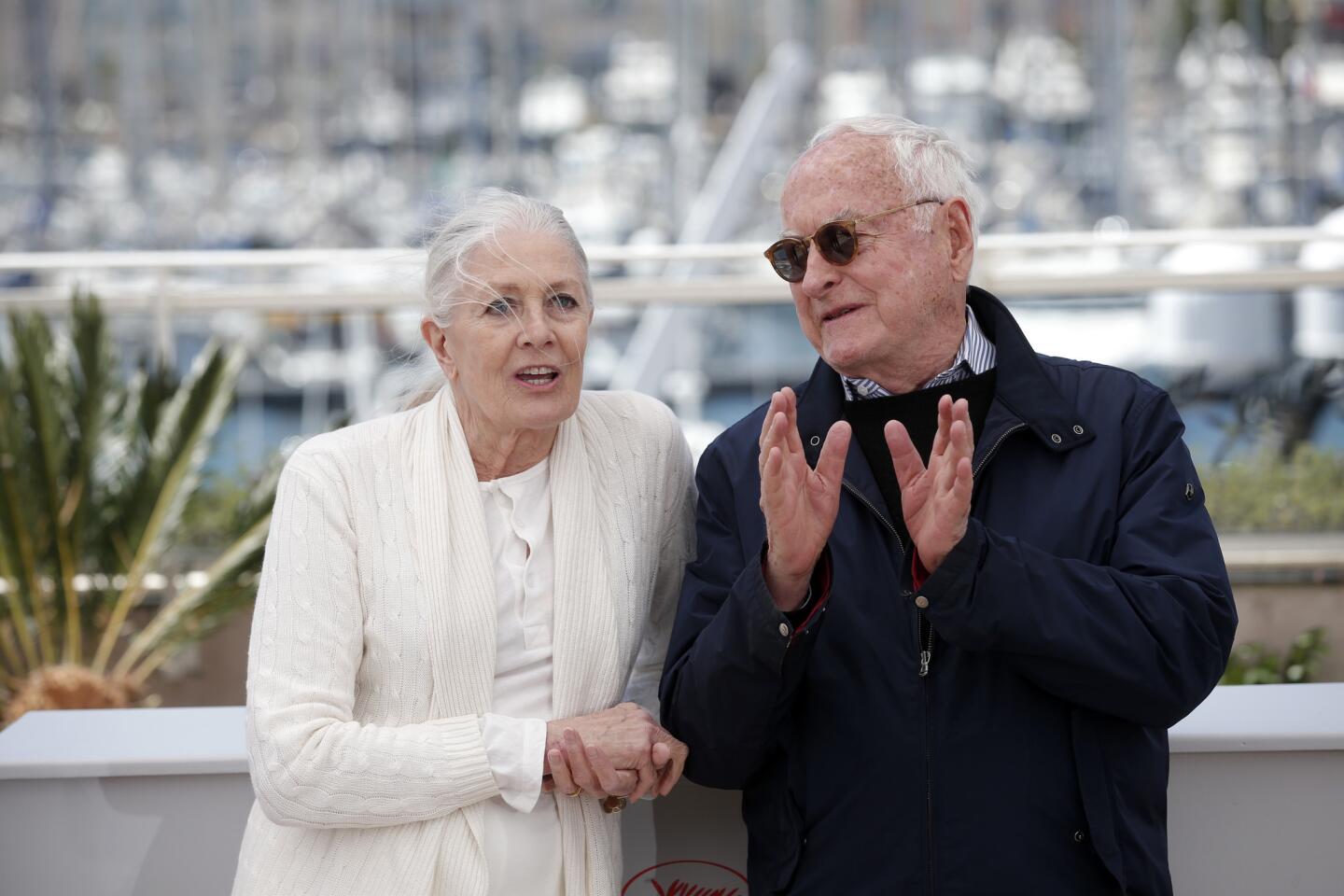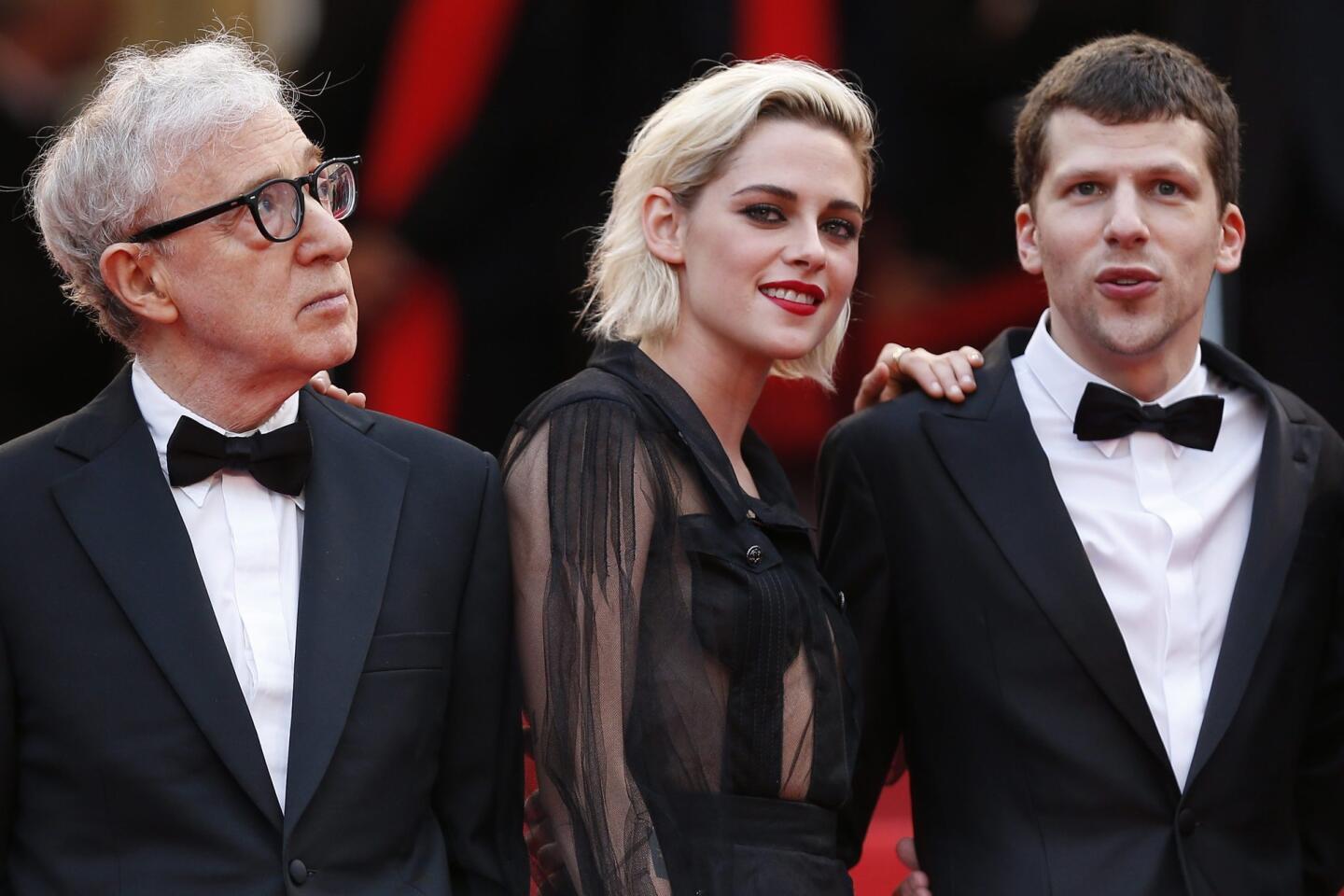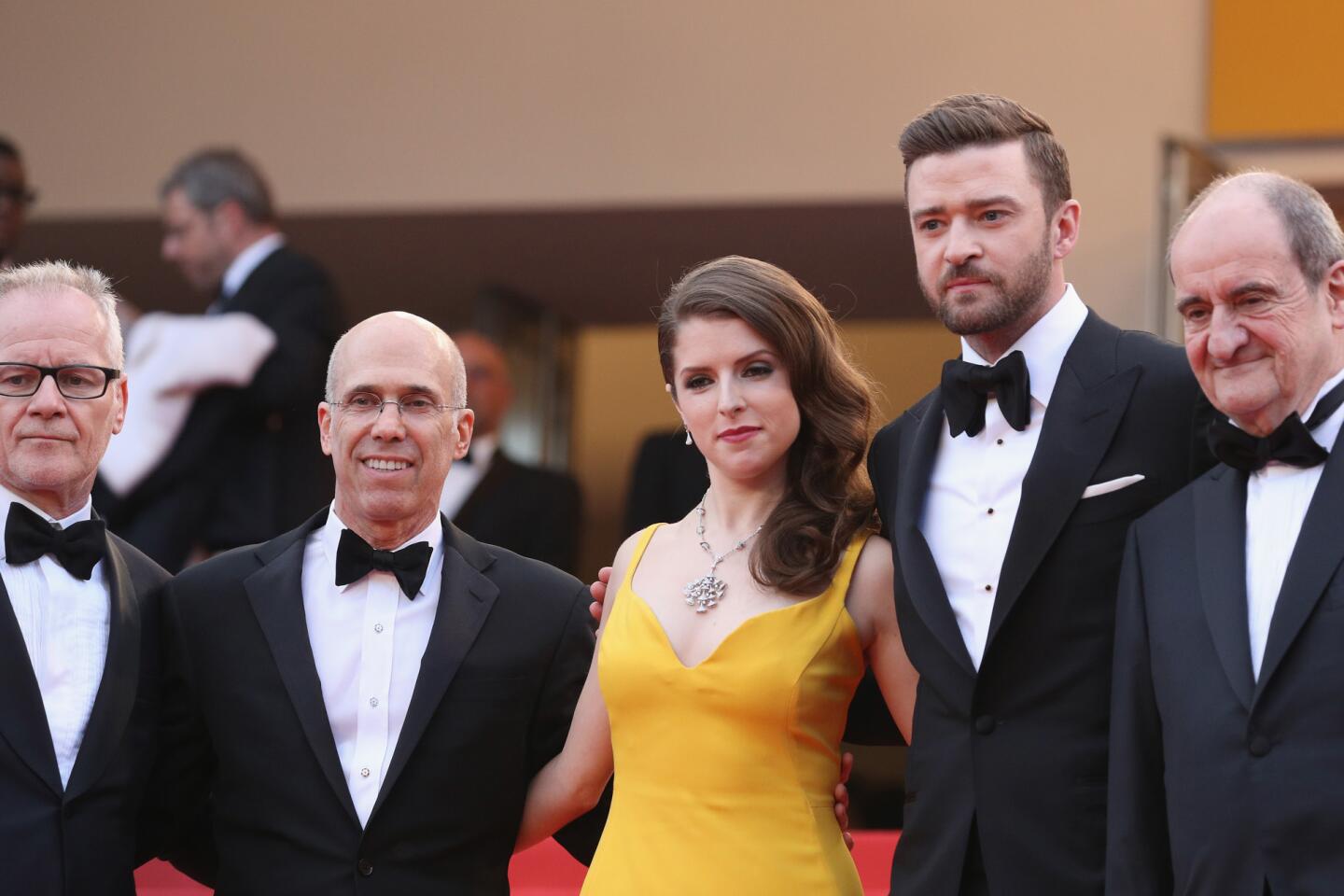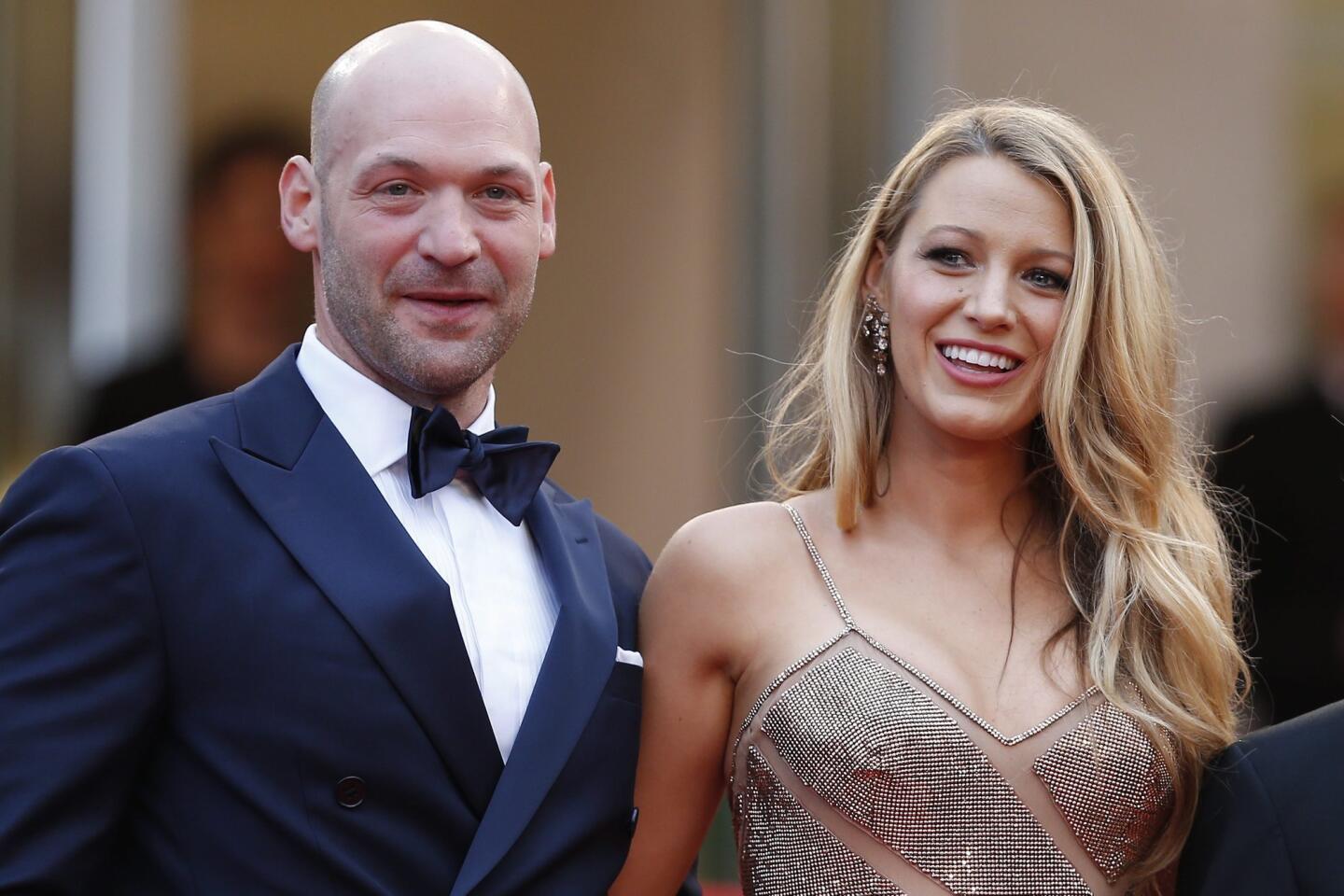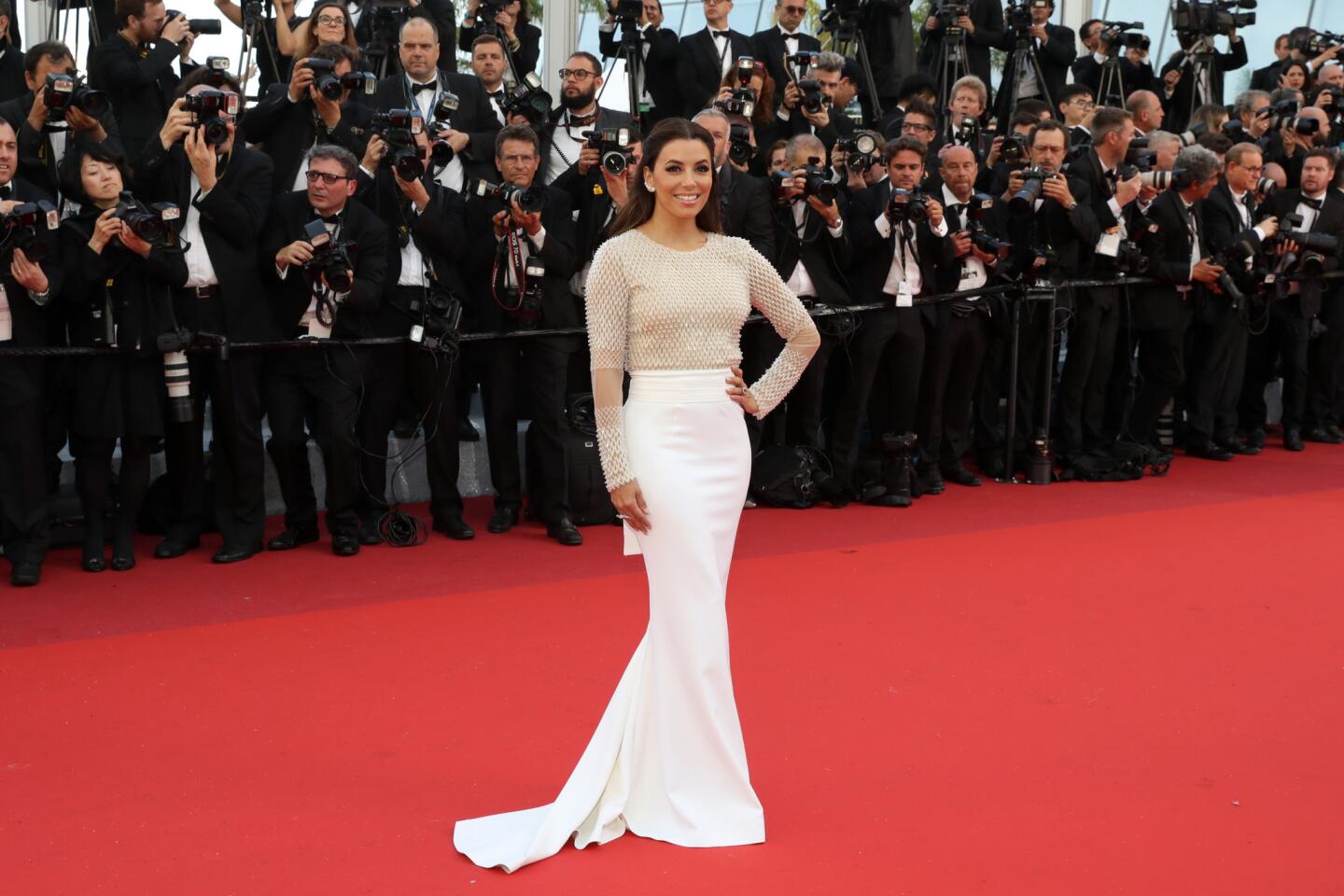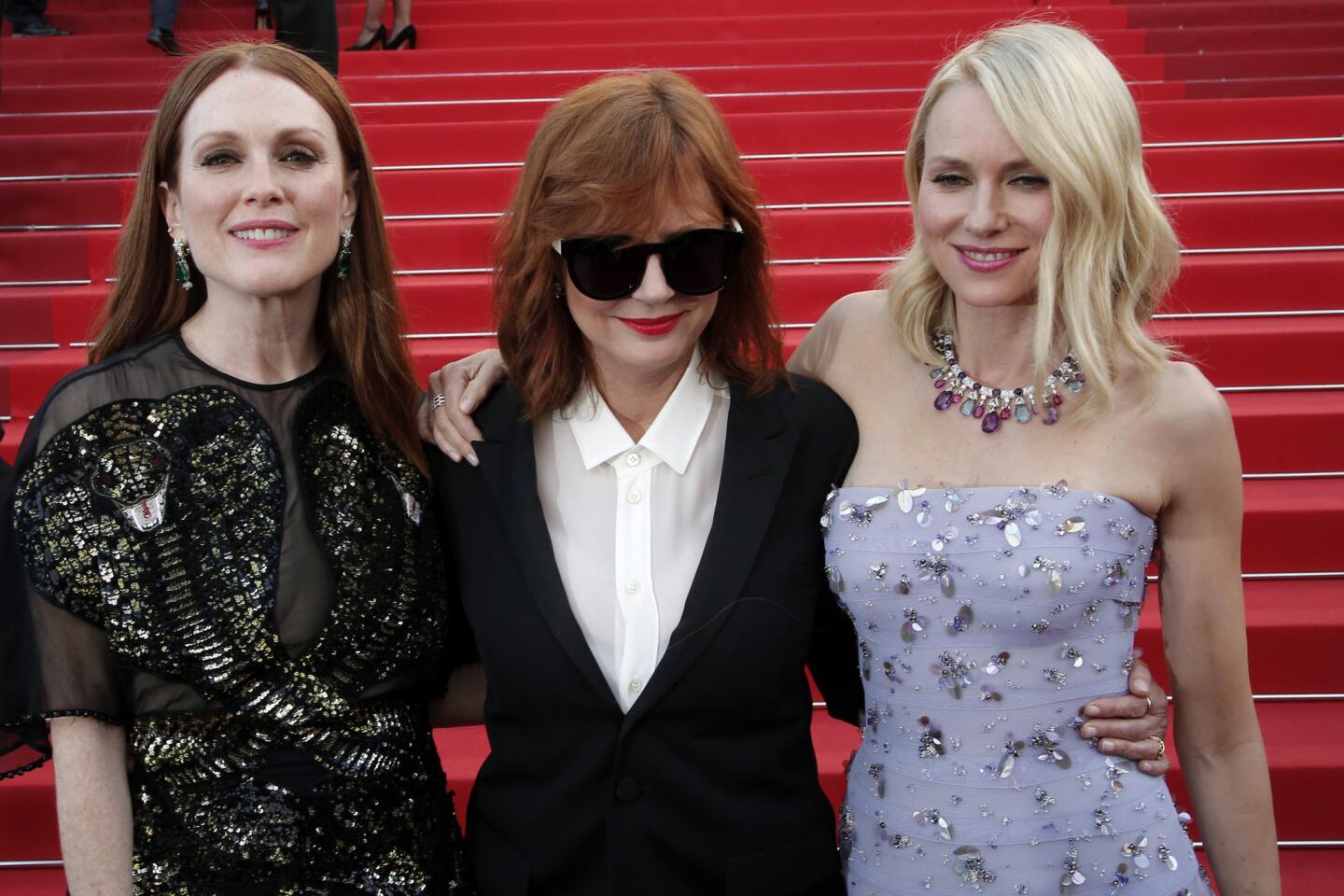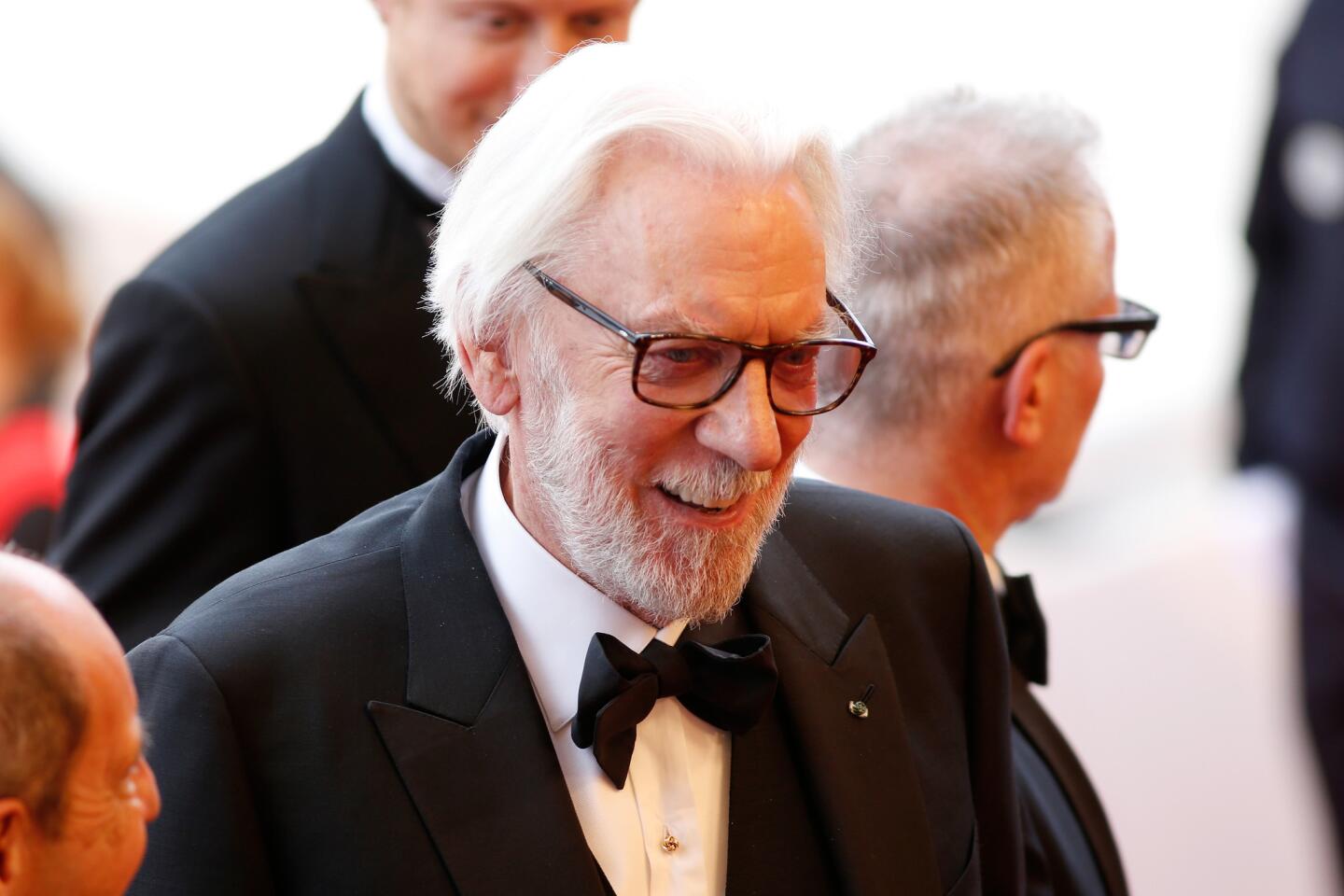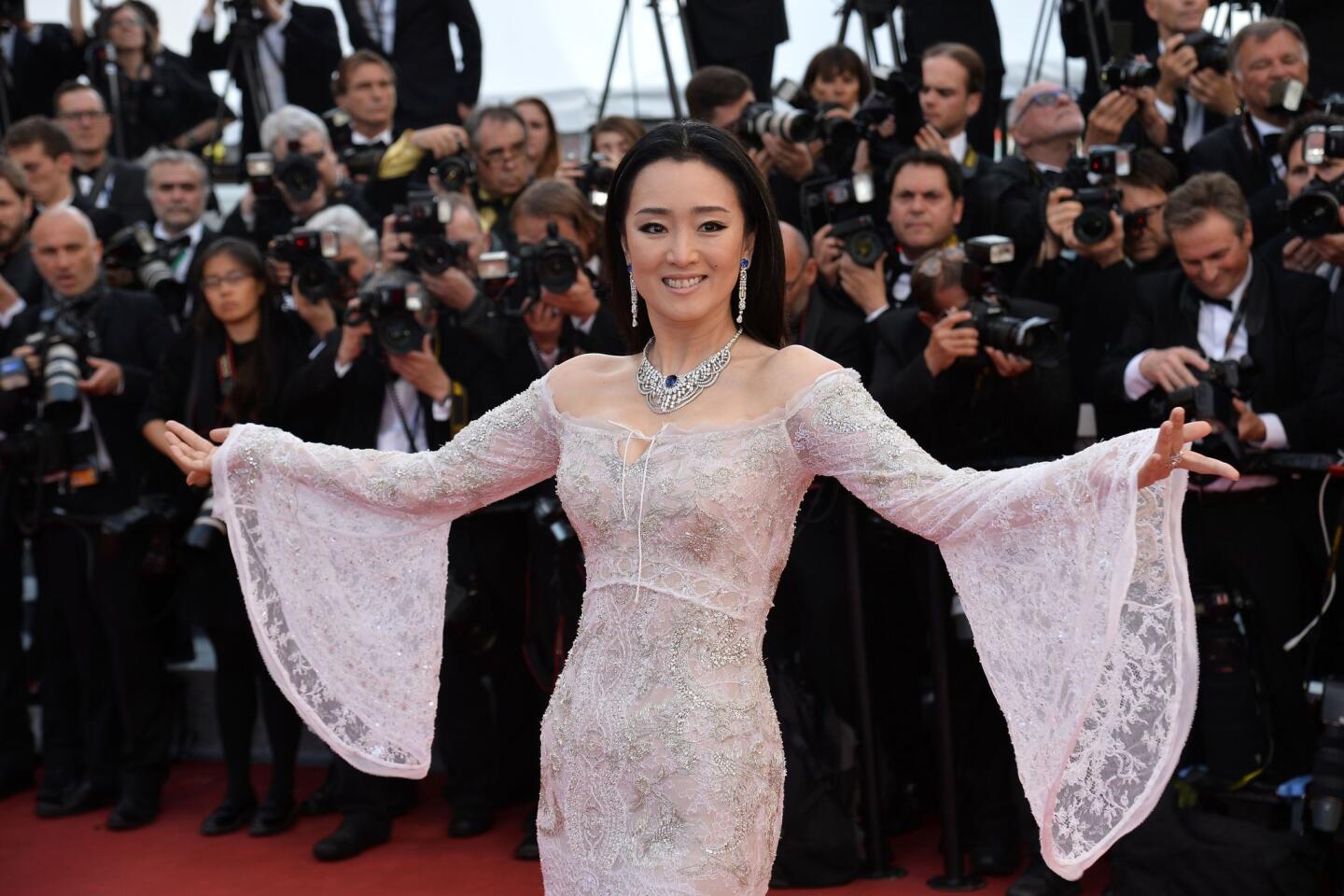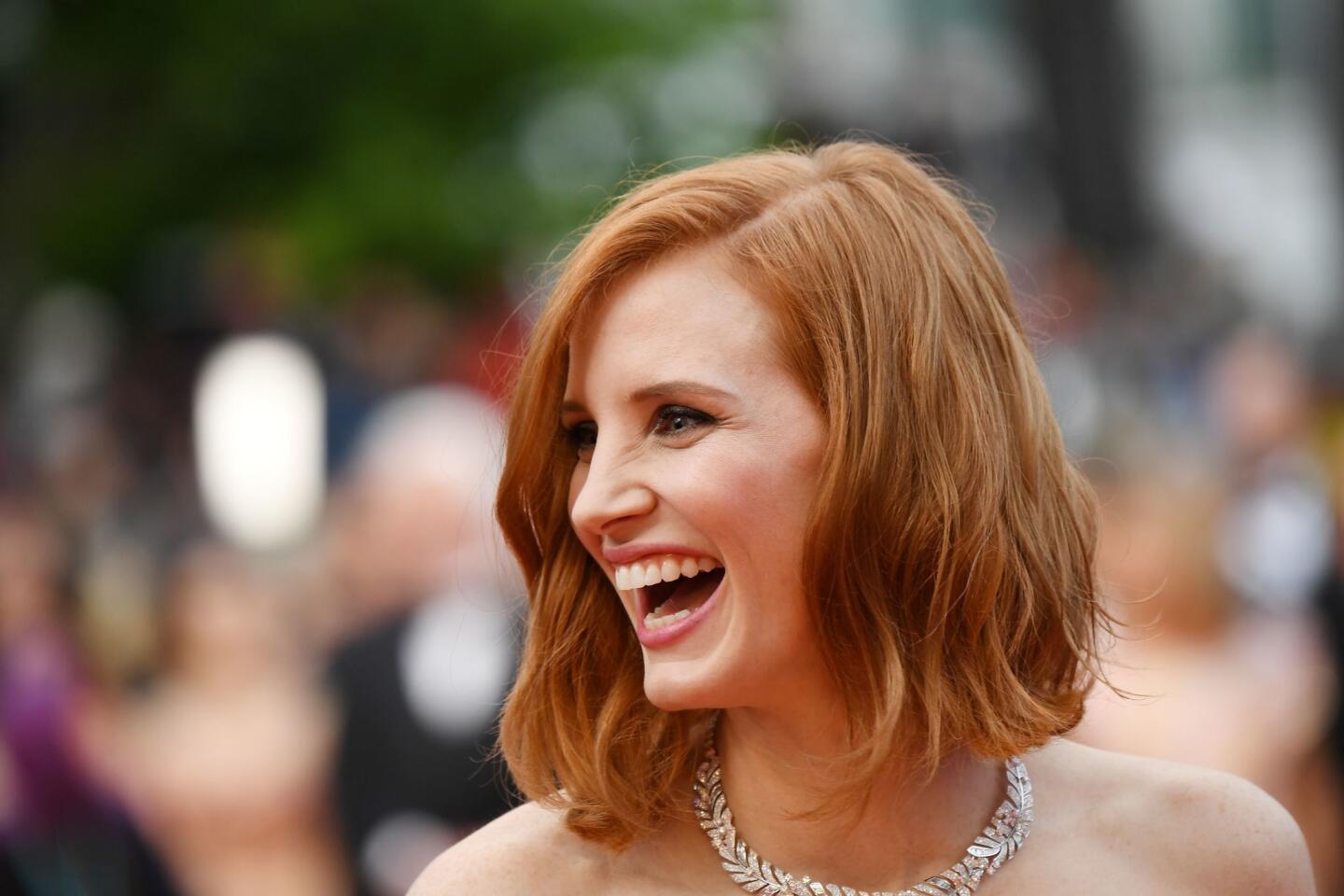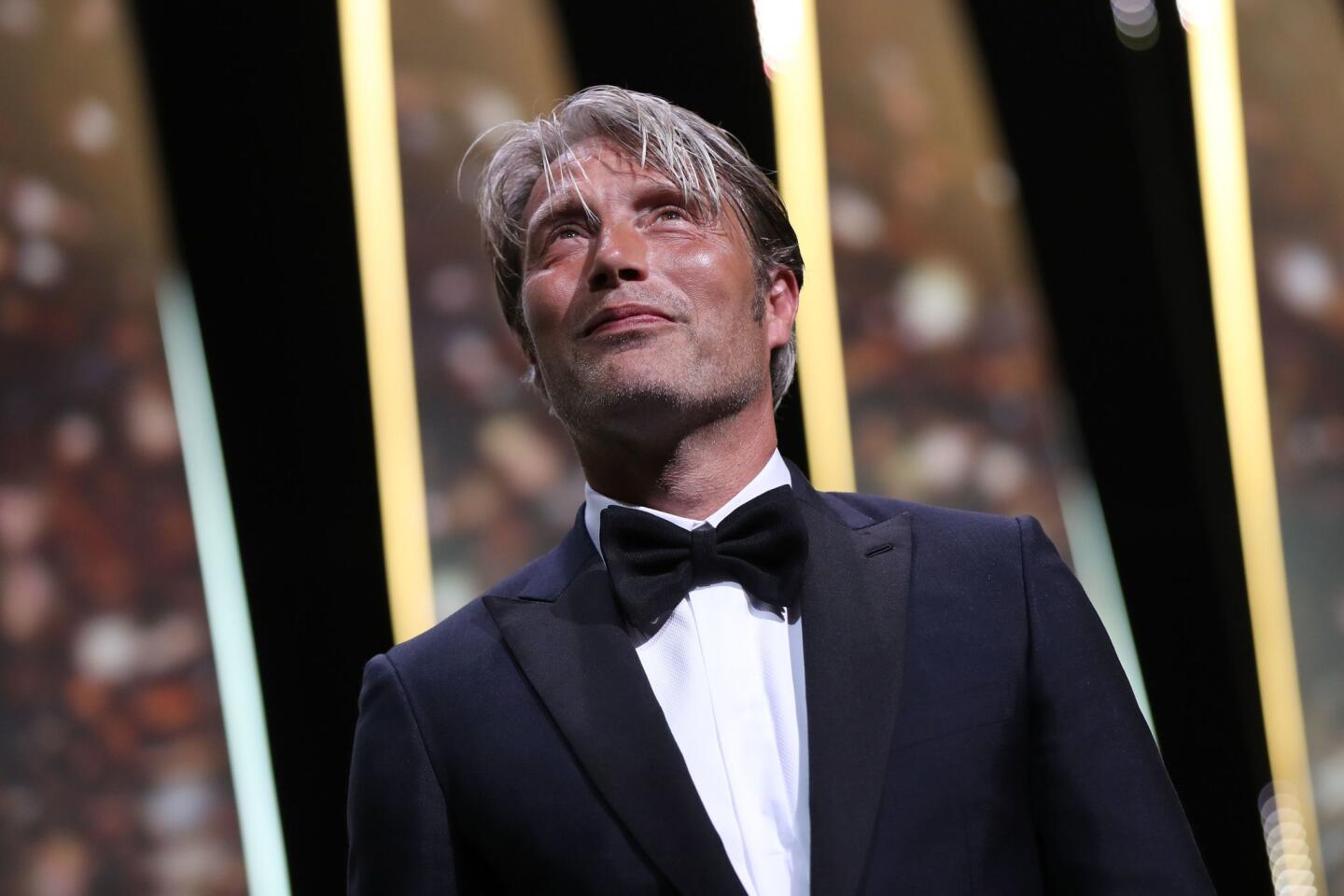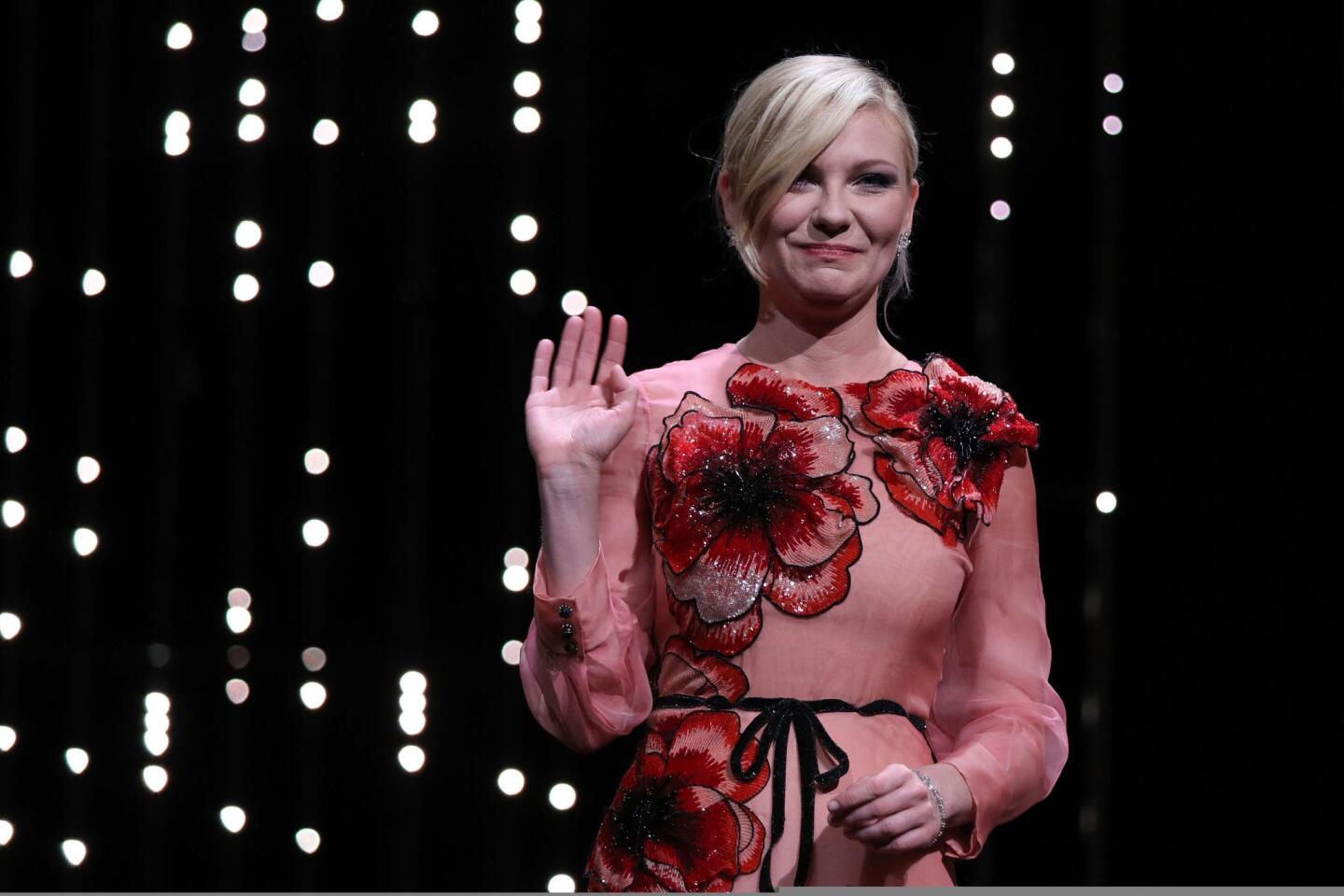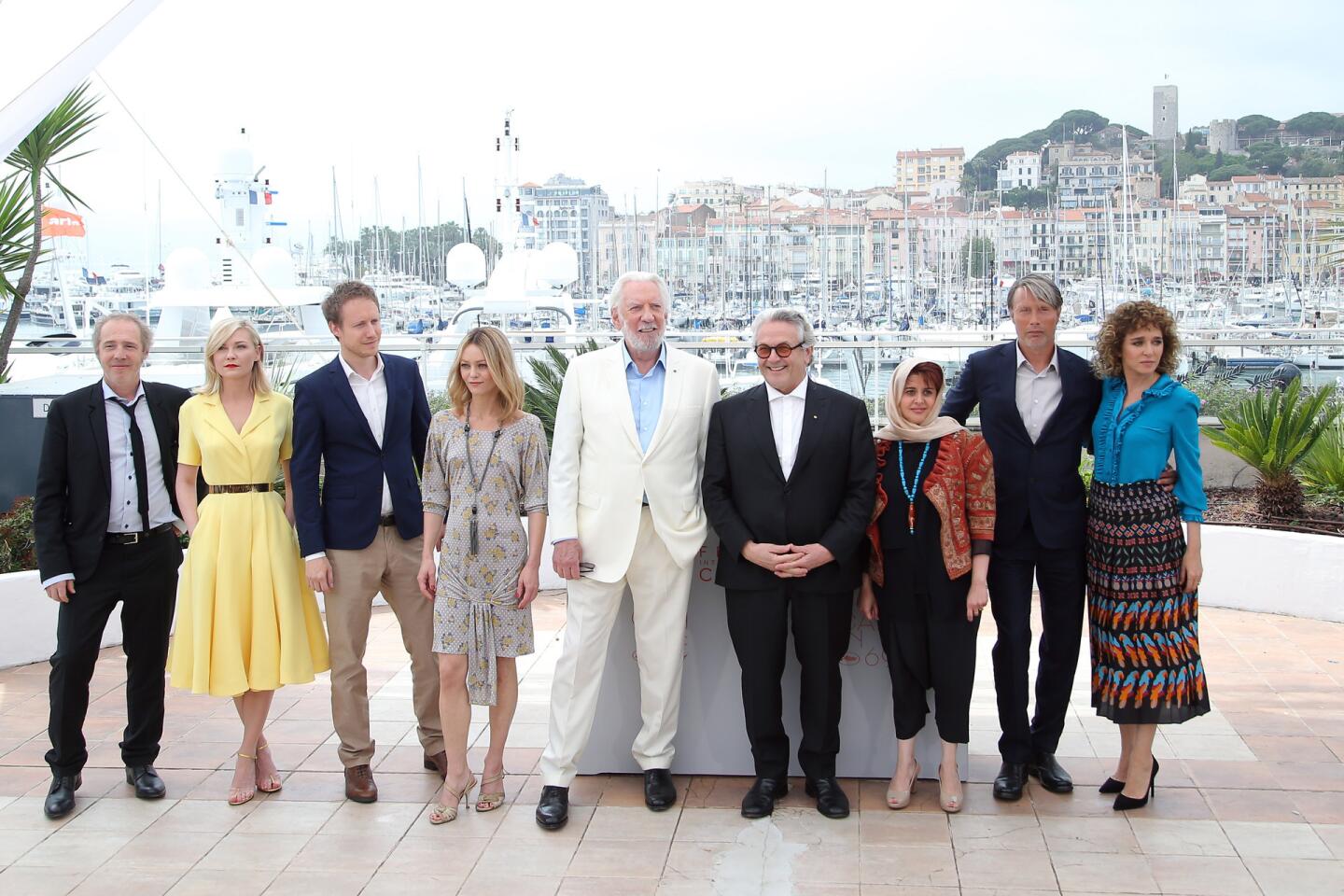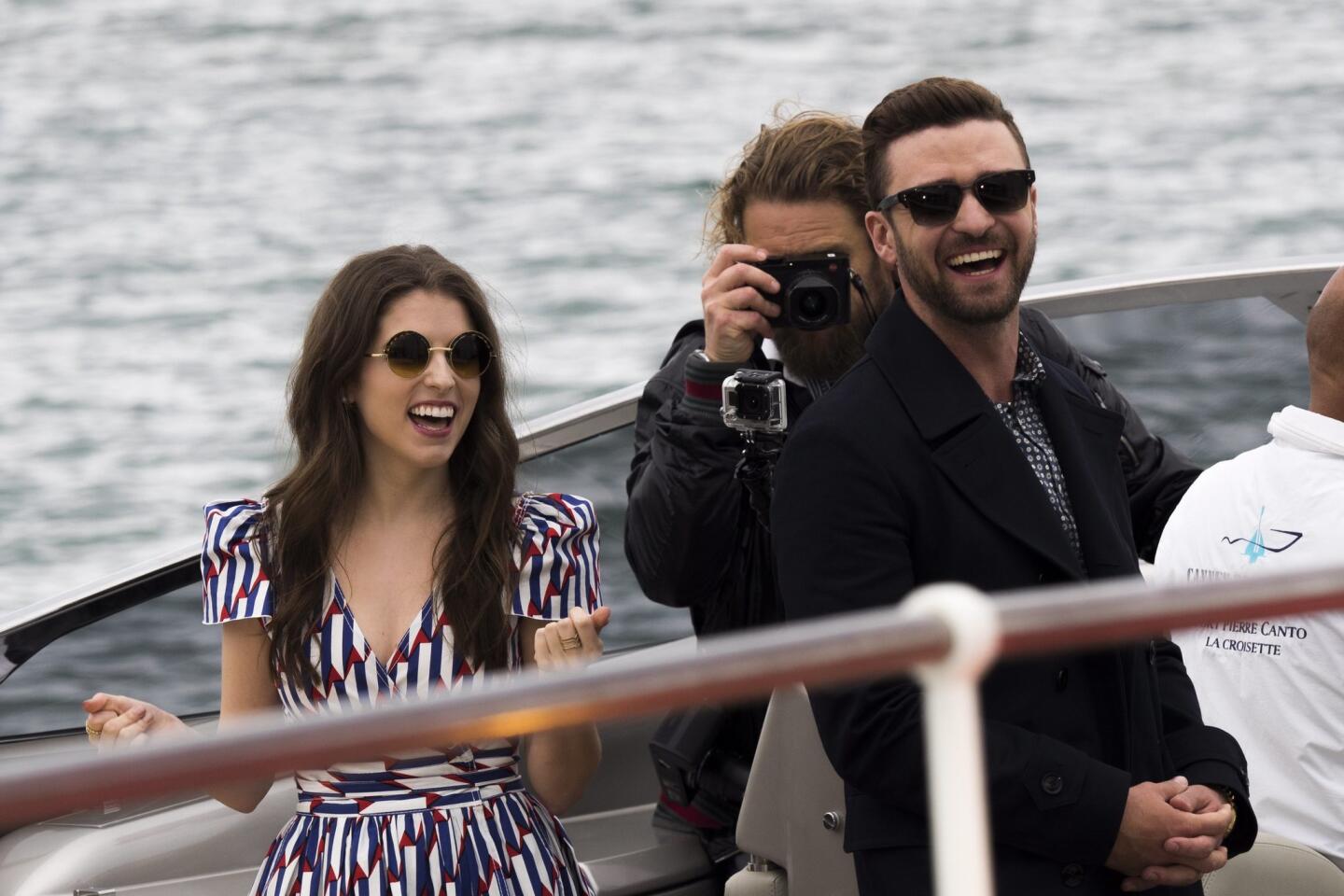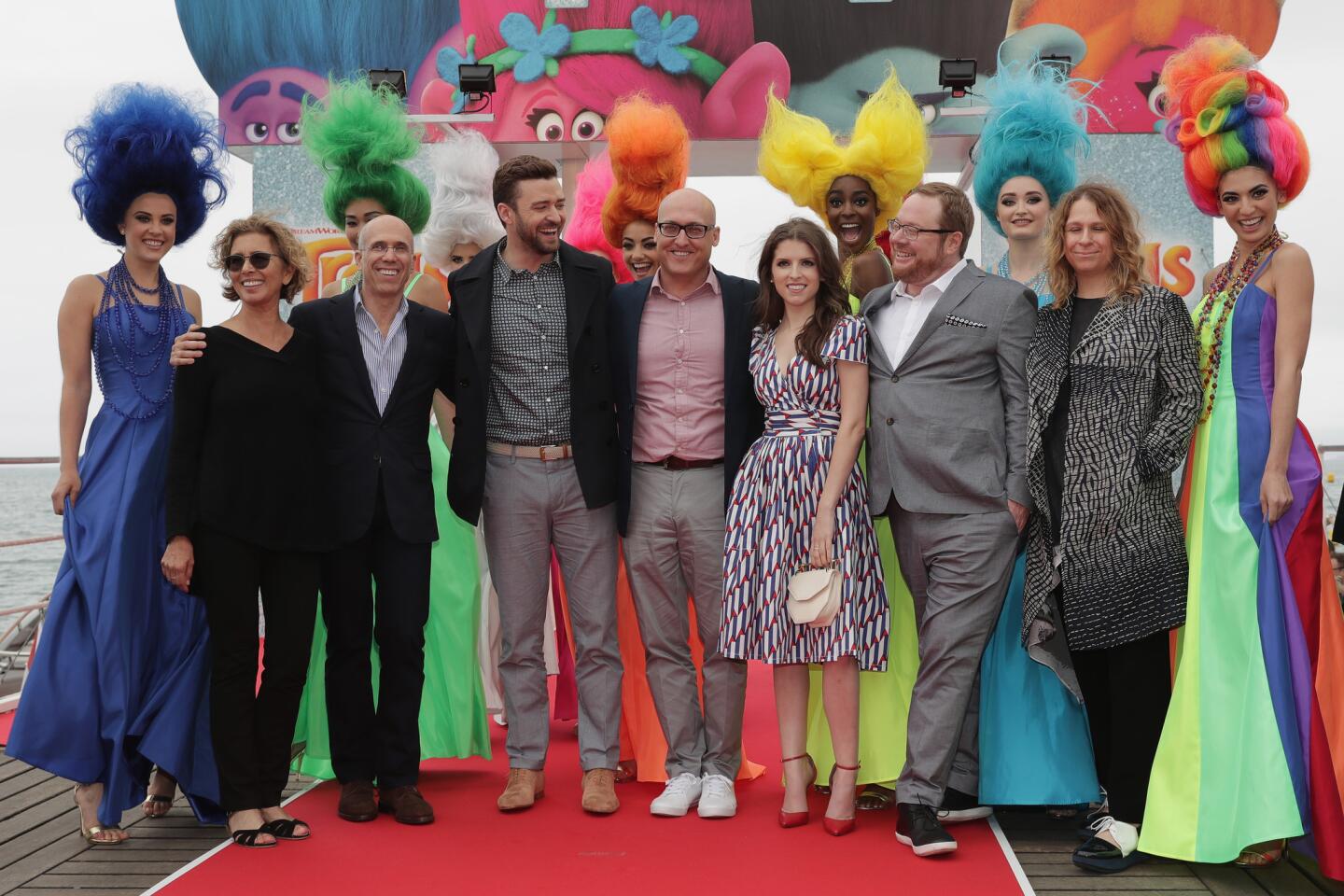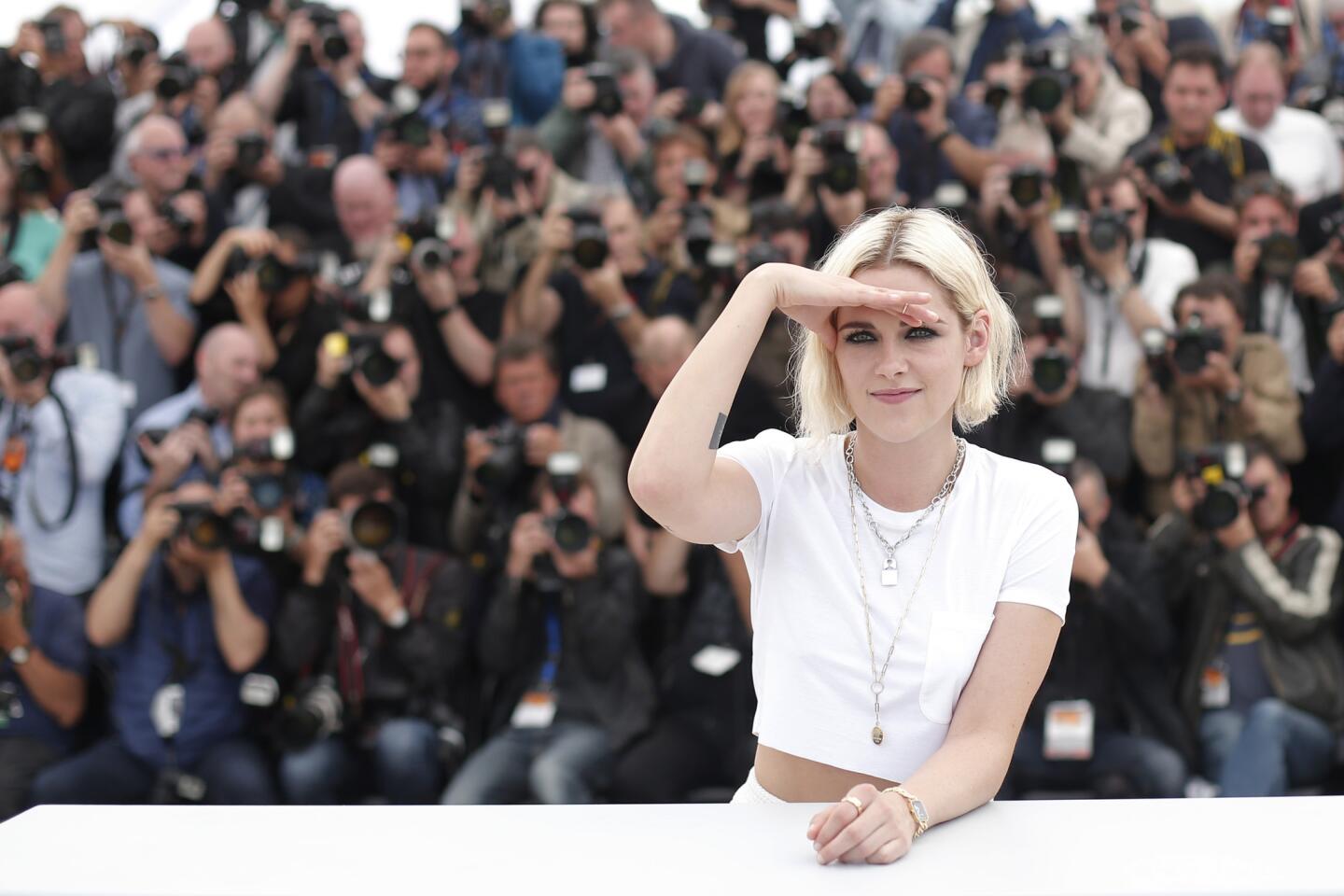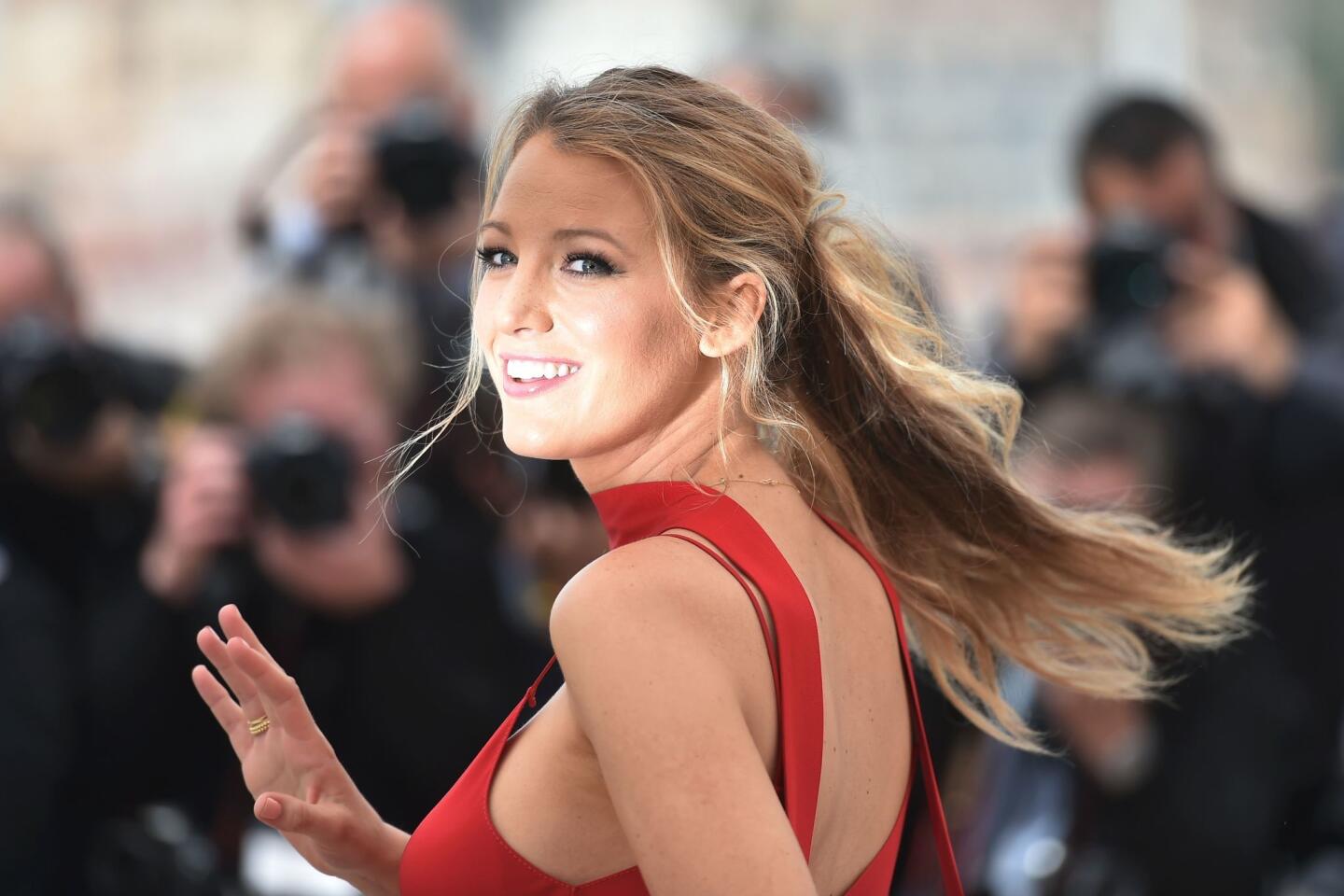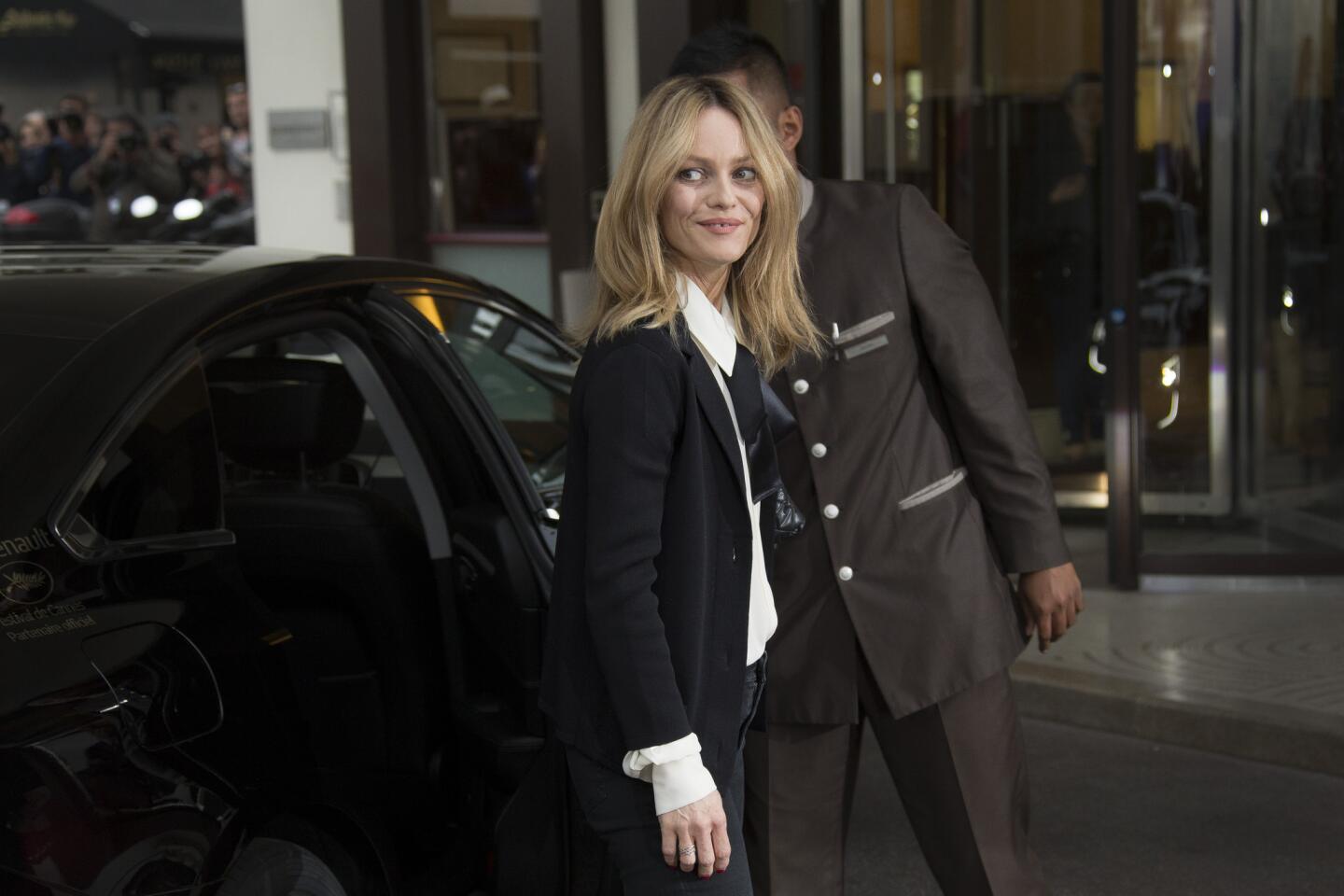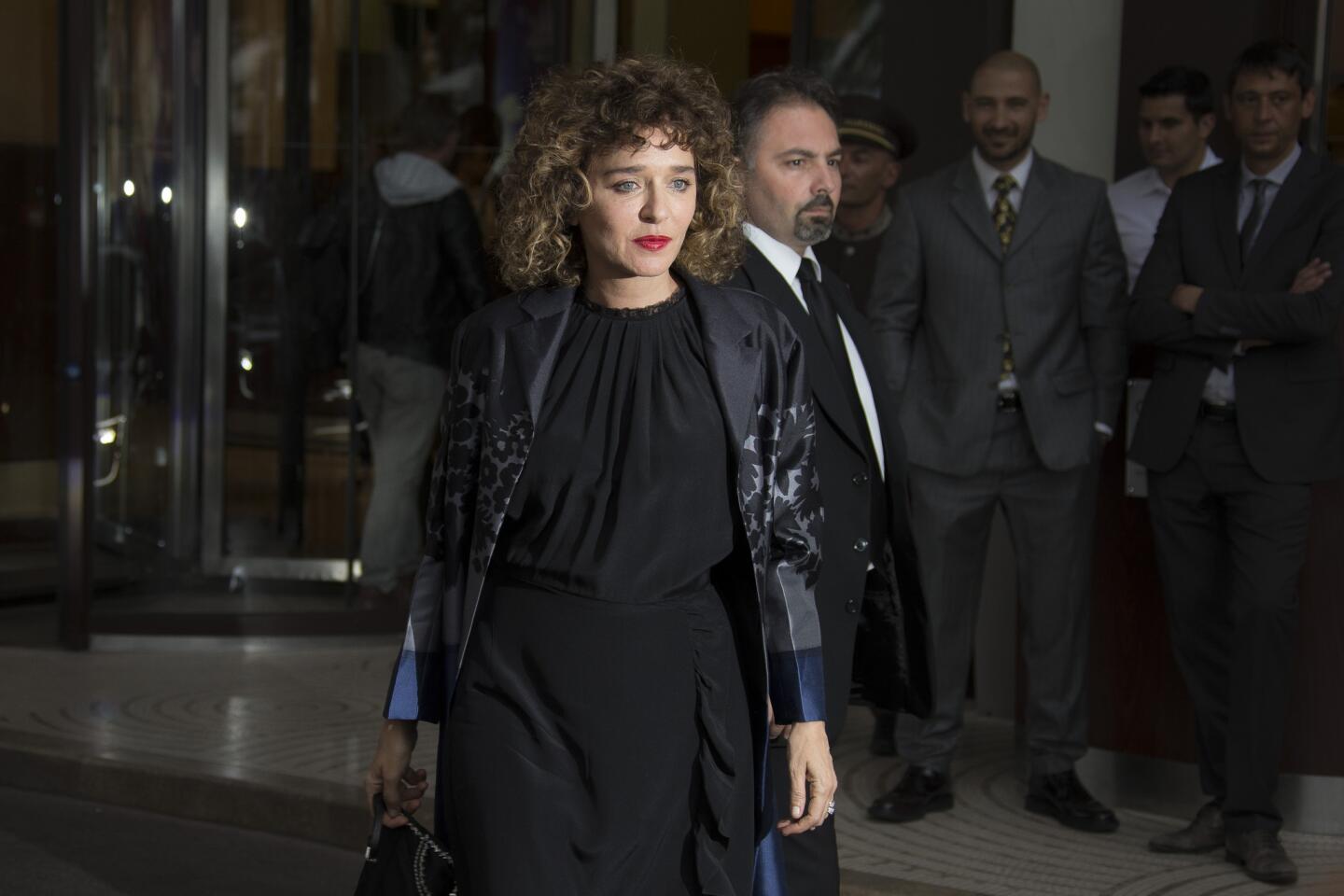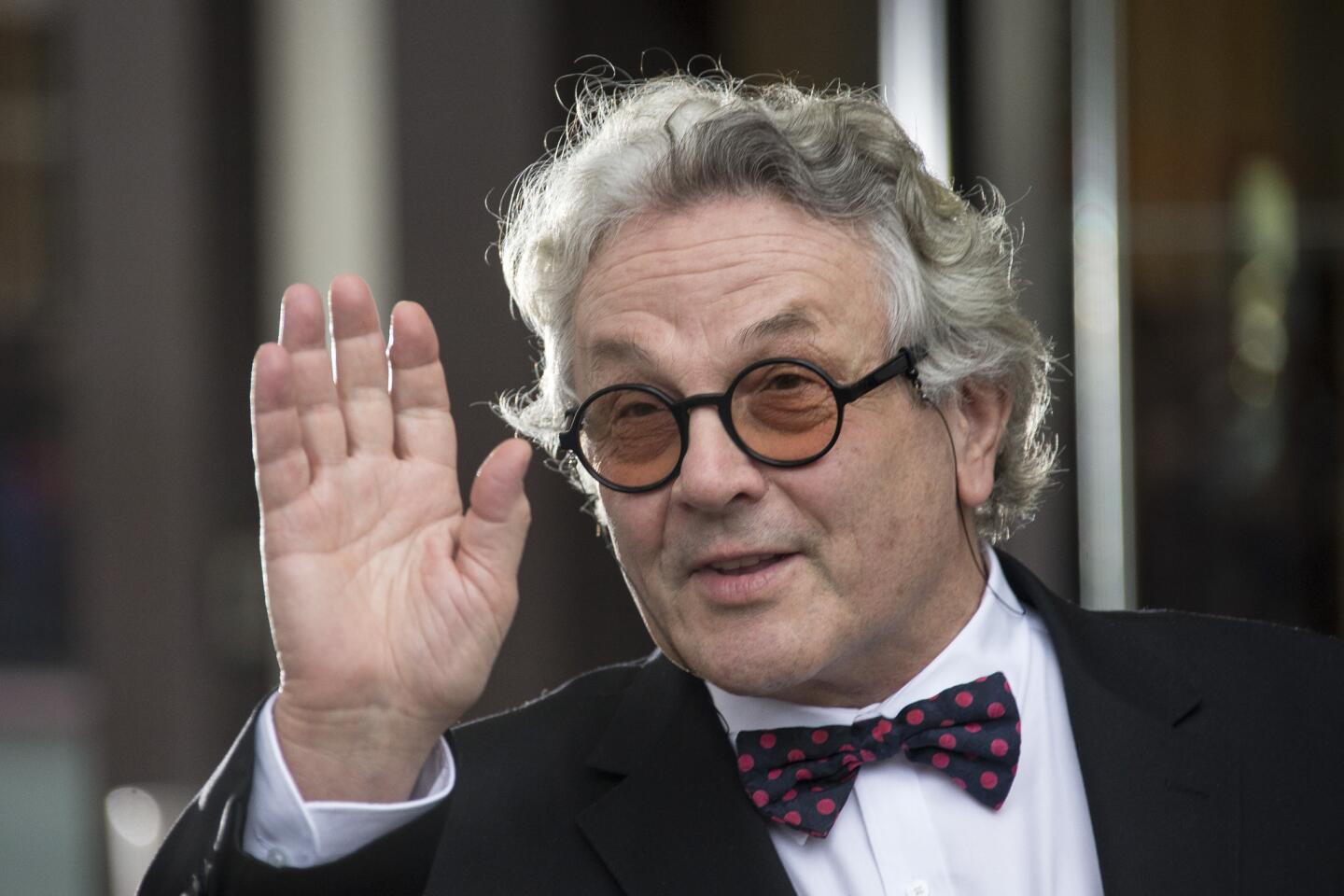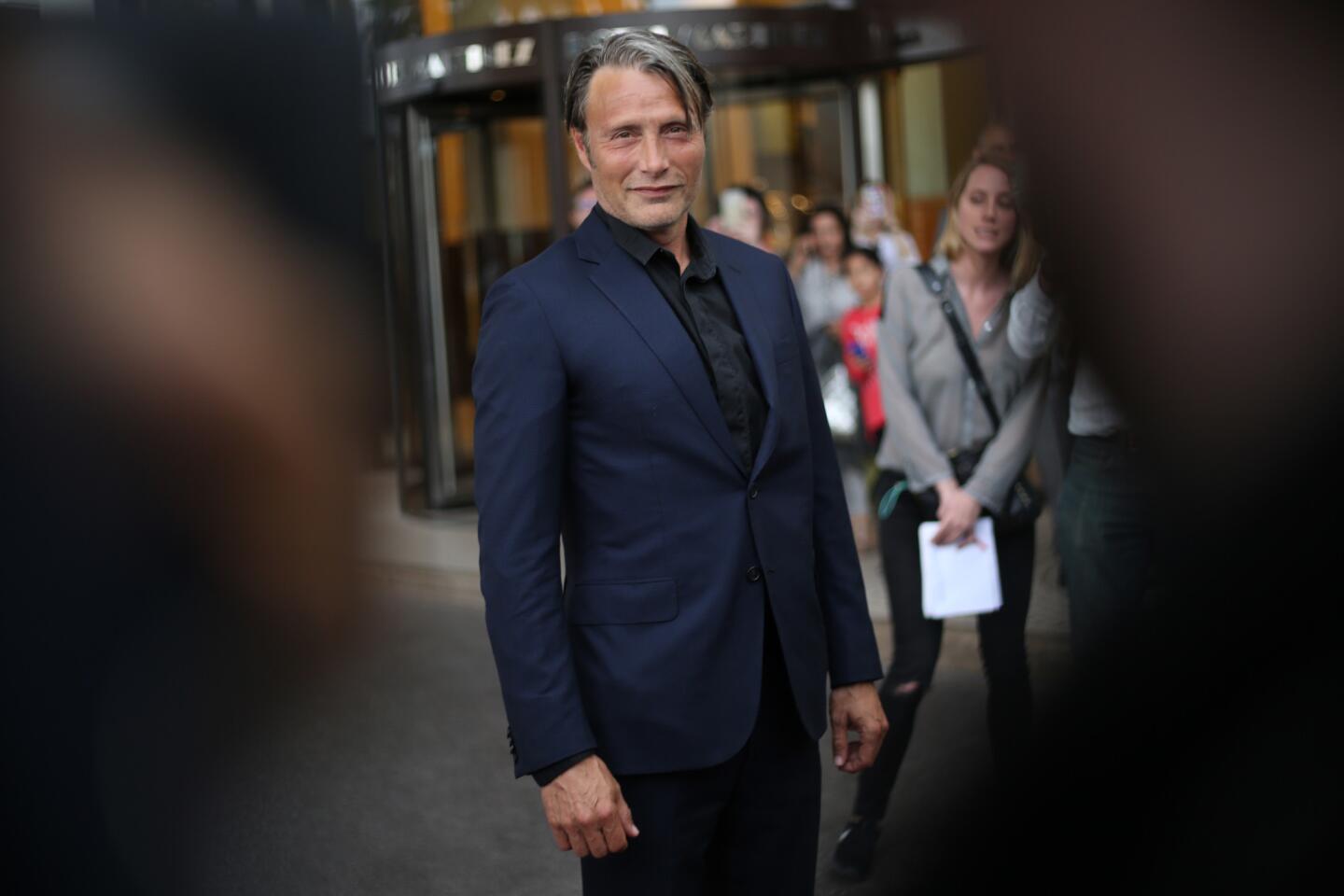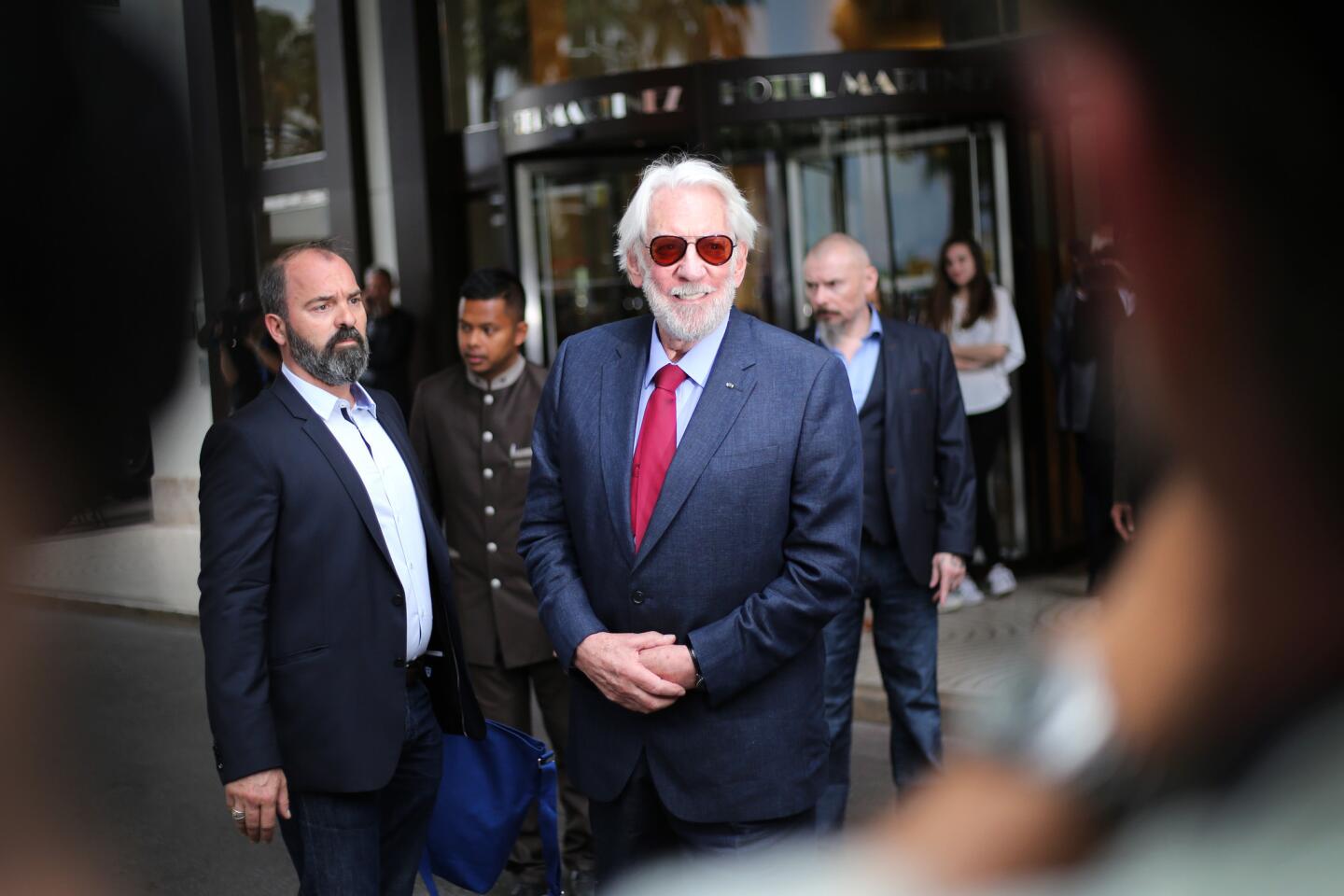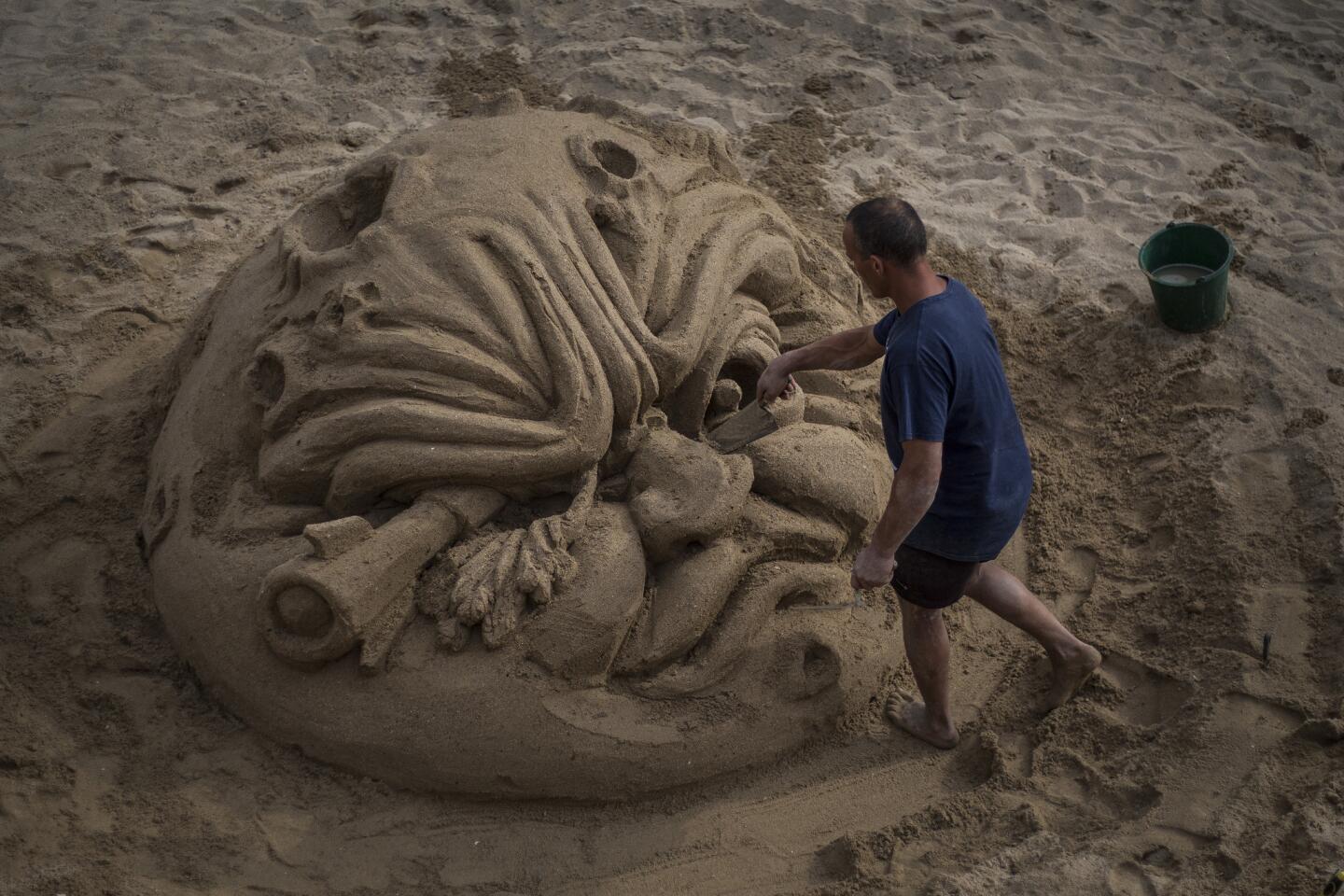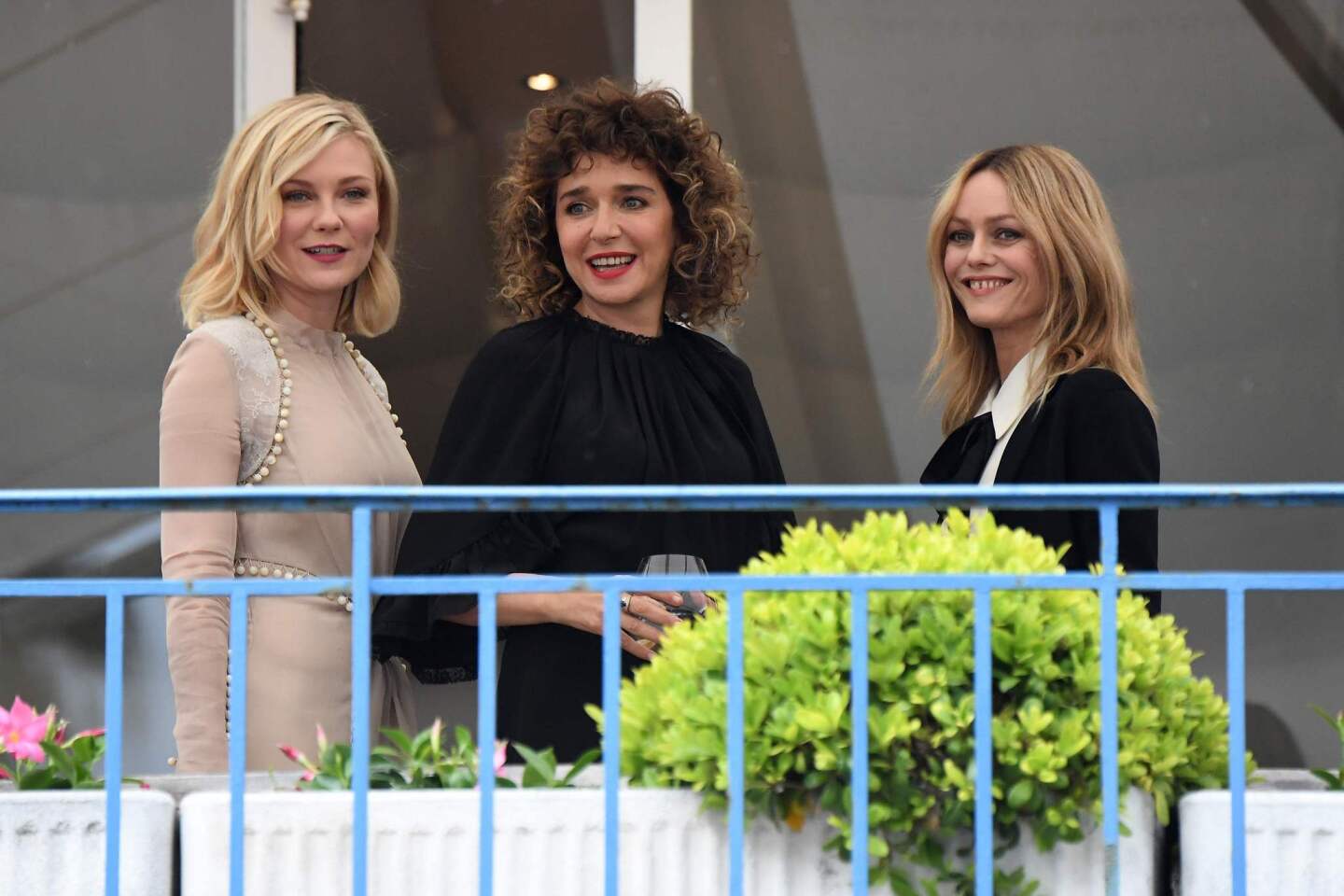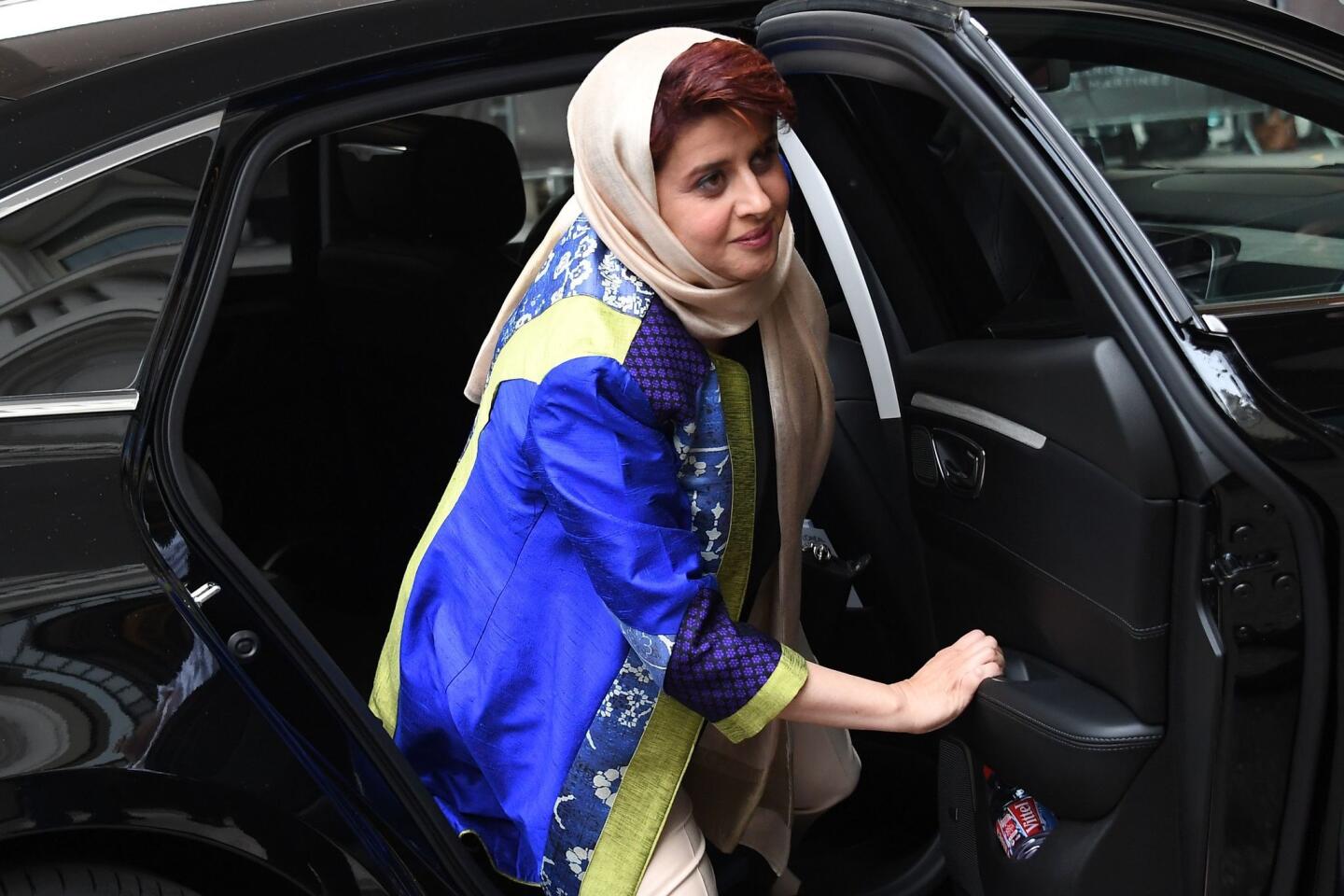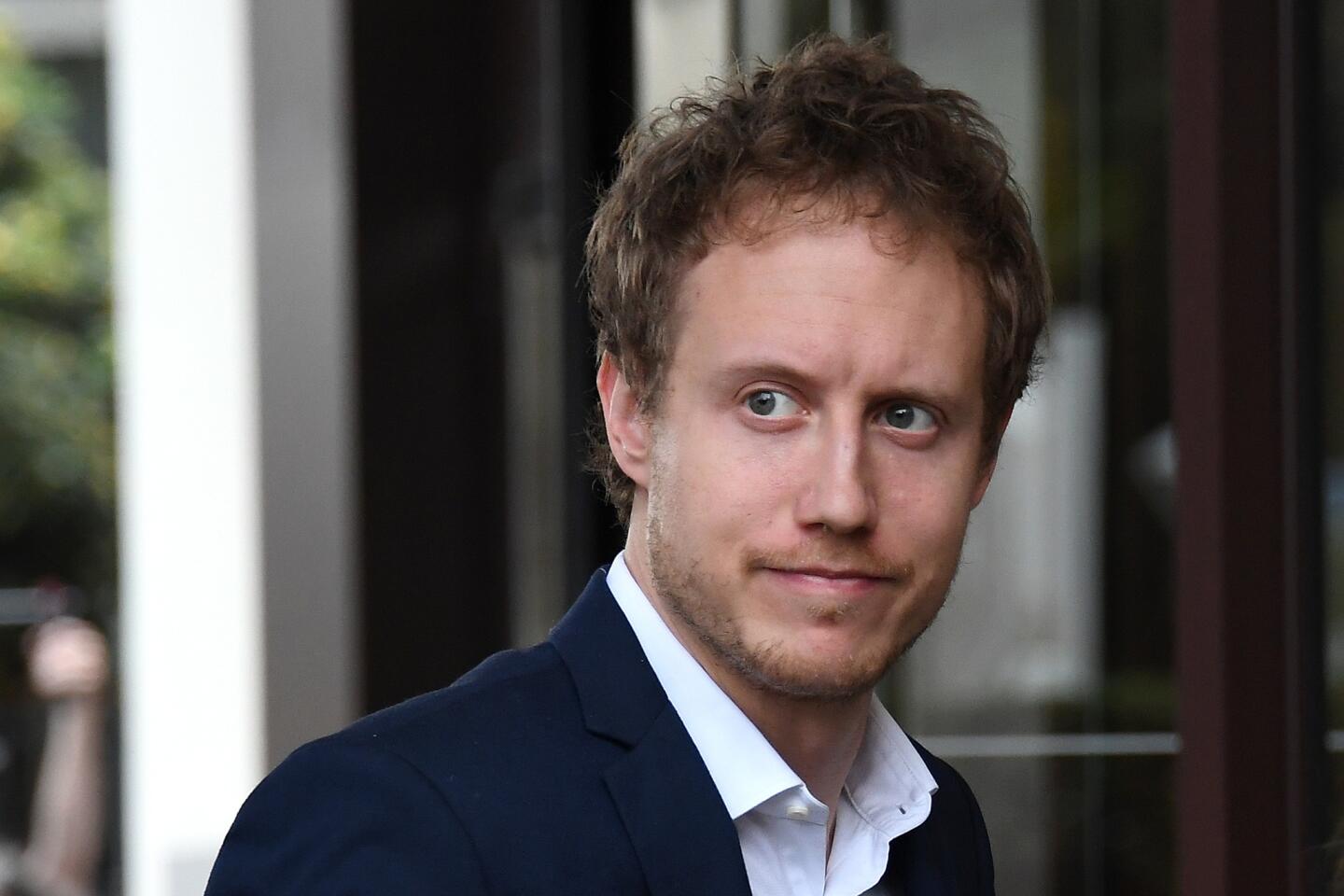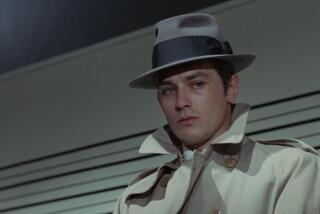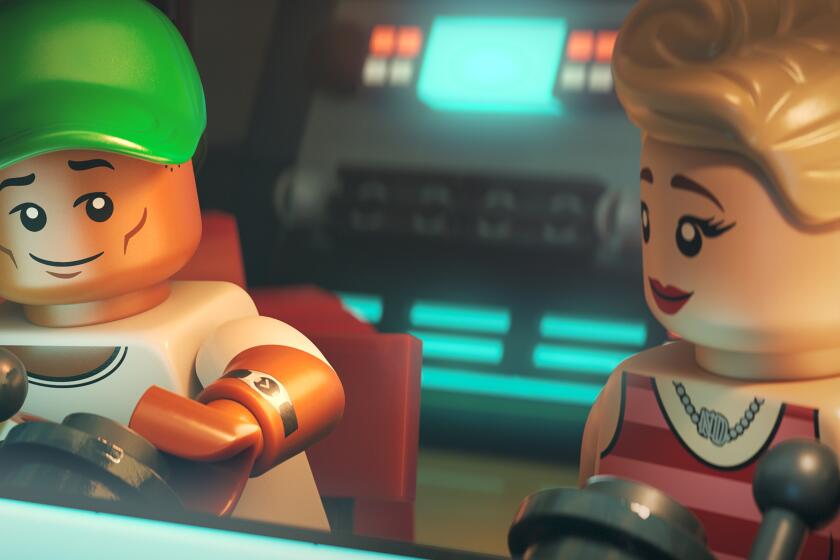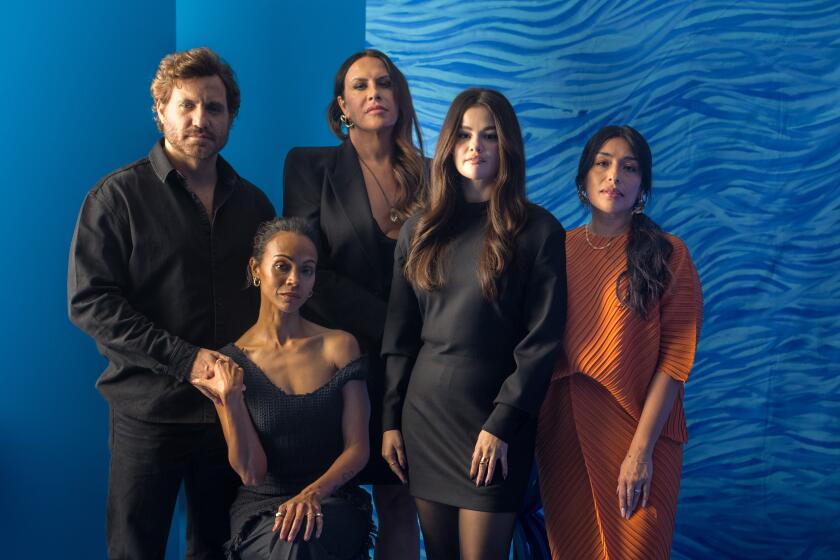Reporting from CANNES, France — Film directors are well-known for sloughing off bad reviews, or saying they don’t read critics entirely.
Such an attitude, had he held it, might have helped the emotional health of Xavier Dolan.
But it also would have made the 27-year-old French-Canadian director of “Mommy” and the divisive new Cannes drama “It’s Only the End of the World”--about a young playwright and his fractious family — less interesting, less dramatic and, perhaps, less human.
“I don’t know if I want to go on being a director after this,” Dolan said, a few minutes into a beach-side interview with the Los Angeles Times on Friday afternoon.
FULL COVERAGE: CANNES FILM FESTIVAL
Could things really be that bad? He had won a top prize here for “Mommy” just two years ago and was a jury member last year.
Dolan pulled up a “World” review on his phone and passed it to a reporter.
“It’s simply impossible to believe that a story this stridently self-pitying could not refer, more or less explicitly, to writer/director Dolan himself,” read the review from the online publication the Playlist. “It suggests a level of martyred self-involvement on Dolan’s part that is tantamount to a persecution complex.”
Dolan took the phone back with an angry look.
“Who the ... does this person thinks she is?” the director said. “How does a person think they know what my personal life is? This is not journalism. It’s gossip. It’s pretending to be a sophisticated analysis, but really it’s cheap psychology.”
Then, sounding more ruminative, he briefly cast his eyes downward.
“It’s hard to shut them out when they’re about you personally and not your work.”
Dolan’s French-language film — based on Jean-Luc Lagarce’s play and with a dream cast that includes Gaspard Ulliel, Léa Seydoux, Marion Cotillard and Vincent Cassel — centers on a successful young writer who returns home after a 12-year self-imposed exile. There are high hopes all around for joy and reconciliation.
1/89
French actress Marion Cotillard leaves after the screening of “Juste la Fin du Monde” (It’s Only the End of the World) during the 69th Cannes Film Festival.
(Julien Warnand / EPA) 2/89
British director Ken Loach reacts as he receives the Palme d’Or award for his movie “I, Daniel Blake.”
(Sebastien Nogier / EPA) 3/89
French Moroccan director Houda Benyamina poses with the Camera d’Or award for her movie “Divines.”
(Ian Langsdon / EPA) 4/89
Spanish director Juanjo Gimenez, center, receives the Best Short Film award for “Timecode” from French actress Marina Fois, right, and Japanese director Naomi Kawase.
(Sebastien Nogier / EPA) 5/89
Iranian director Ashgar Farhadi, right, and Iranian actor Shahab Hosseini pose during the award winners photo call after they won the Best Screenplay award and the Best Performance by an Actor award for the movie “Forushande” (“The Salesman”).
(Julien Warnand / EPA) 6/89
Canadian director Xavier Dolan with his Grand Prix award for “Juste la Fin du Monde” (“It’s Only the End of the World”).
(Ian Langsdon / EPA) 7/89
Filipina actress Jaclyn Jose with her Best Actress prize during a photo call at 69th Cannes Film Festival.
(Loic Venance / AFP/Getty Images) 8/89
Romanian director Cristian Mungiu with his trophy during a photo call after he was awarded the Best Director prize for the film “Graduation” (“Bacalaureate”).
(Loic Venance / AFP/Getty Images) 9/89
Mel Gibson and girlfriend Rosalind Ross
(Sebastien Nogier / EPA) 10/89
British director Andrea Arnold poses with her trophy during a photo call after she was awarded with the Jury Prize for the film “American Honey” at 69th Cannes Film Festival.
(Loic Venance / AFP/Getty Images) 11/89
Actress Marion Cotillard and director Xavier Dolan arrive at the screening of the film “It’s Only the End Of The World.”
(Thibault Camus / Associated Press) 12/89
Singer Iggy Pop, left, and director Jim Jarmusch arrive at the screening of “Gimme Danger.”
(Thibault Camus / Associated Press) 13/89
Actor Leonardo DiCaprio conducts an auction during the amfAR’s 23rd Cinema Against AIDS Gala.
(Alberto Pizzoli / AFP/Getty Images) 14/89
Faye Dunaway, left, and actor Kevin Spacey perform on stage during the amfAR’s 23rd Cinema Against AIDS Gala.
(Alberto Pizzoli / AFP/Getty Images) 15/89
French actress and singer Stephanie Sokolinski arrives for the screening of the film “It’s Only The End Of The World” at the 69th Cannes Film Festival.
(Valery Hache / AFP/Getty Images) 16/89
Actress Valentina Acca, left, producer and member of the jury Valeria Golino, director Stefano Mordini, actress Marina Fois, actor and producer Riccardo Scamarcio and producer Viola Prestieri arrive for the screening of the film “Pericle (Pericle il Nero)” at the 69th Cannes Film Festival.
(Anne-Christine Poujoulat / AFP/Getty Images) 17/89
Eric Anzalone, front, Ray Simpson, Jim Newman, Felipe Rose, Bill Whitefield and Alex Briley of the band Village People pose as they arrive for the amfAR’s 23rd Cinema Against AIDS Gala.
(Alberto Pizzoli / AFP/Getty Images) 18/89
Producer Harvey Weinstein and his wife, British actress Georgina Chapman, pose as they arrive for the amfAR’s 23rd Cinema Against AIDS Gala.
(Alberto Pizzoli / AFP/Getty Images) 19/89
Director Olivier Assayas, actress Kristen Stewart and actress Nora von Waldstatten attend the Cannes Film Festival screening of the film “Personal Shopper” on May 17.
(Alberto Pizzoli / AFP/Getty Images) 20/89
Milla Jovovich attends the De Grisogono party at the Cannes Film Festival on May 17.
(Jean Christophe Madnenet / AFP/Getty Images) 21/89
Kristen Stewart poses during a photocall for the film “Personal Shopper” at the Cannes Film Festival on Tuesday.
(Loic Venance / AFP/Getty Images) 22/89
From left, Inma Cuesta, Emma Suarez, Rossy de Palma, Adriana Ugarte and Michelle Jenner pose during the “Julieta” photocall at the Cannes Film Festival on Tuesday.
(Guillaume Horcajuelo / EPA) 23/89
From left, Viggo Mortensen, Annalise Basso, Nicholas Hamilton, Charlie Shotwell, Samantha Isle, Shree Crooks and director Matt Ross pose for photographers during the “Captain Fantastic” photocall at the Cannes Film Festival on Tuesday.
(Thibault Camus / Associated Press) 24/89
French model Cindy Bruna arrives for the Chopard “Wild” party at the 2016 Cannes Film Festival on Tuesday.
(Jean Christophe Magnenet / AFP/Getty Images) 25/89
Former boxer Roberto Duran, left, and actor Robert De Niro pose for photographers at the screening of the film “Hands of Stone” at the Cannes Film Festival on Monday.
(Joel Ryan / Associated Press) 26/89
Jason Derulo performs at the “Harmonist” cocktail party at the Plage du Grand Hyatt during the Cannes Film Festival on Sunday.
(Samir Hussein / Getty Images for ‘The Harmonist’) 27/89
Usher Raymond IV, left, Ana de Armas and Edgar Ramirez during a photocall for the film “Hands of Stone” at the Cannes Film Festival on Monday.
(Anne-Christine Poujoulat / AFP / Getty Images) 28/89
Edgar Ramirez, left, Robert de Niro and Usher Raymond IV at the “Hands of Stone” photocall.
(Loic Venance / AFP / Getty Images) 29/89
Adam Driver poses during a photocall for the film “Paterson” on Monday in Cannes.
(Anne-Christine Poujoulat / AFP / Getty Images) 30/89
Actor Adam Driver, left, actress Golshifteh Farahani and director Jim Jarmusch after Monday’s screening of the film “Paterson.”
(Valery Hache / AFP / Getty Images) 31/89
Chris Pine, left, and Ben Foster share a laugh at a photocall for the film “Hell or High Water” on Monday.
(Loic Venance / AFP/Getty Images) 32/89
Salma Hayek Pinault attends Kering Women in Motion talk at the Cannes Film Festival on Monday.
(Vittorio Zunino Celotto / Getty Images for Kering) 33/89
Susan Sarandon, from left, Salma Hayek, Geena Davis and Kering CEO Francois-Henri Pinault arrive for the Kering Women in Motion Honor Awards during the 69th Cannes Film Festival.
(Guillaume Horcajuelo / EPA) 34/89
Actress and jury member Kirsten Dunst arrives at the premiere of “Loving” on Monday.
(Alberto Pizzoli / AFP / Getty Images) 35/89
Mischa Barton on the red carpet at the “Loving” premiere.
(Loic Venance / AFP / Getty Images) 36/89
Actors Murielle Telio, left, actor Russell Crowe, actress Angourie Rice, actor Matt Bomer, actor Ryan Gosling, director Shane Black and producer Joel Silver pose upon arrival at the screening of the film “The Nice Guys” at the 69th Cannes Film Festival.
(Joel Ryan / Associated Press) 37/89
Actors Matt Bomer, left and Ryan Gosling and director Shane Black arrive for the screening of “The Nice Guys.”
(Ian Langsdon / EPA) 38/89
Actor Russell Crowe takes a picture at “The Nice Guys” premiere.
(Ian Gavan / Getty Images) 39/89
Actress Geena Davis attends “The Nice Guys” premiere during the Cannes Film Festival at the Palais des Festivals.
(Tristan Fewings / Getty Images) 40/89
Actress Marion Cotillard poses as she leaves the screening of the film “Mal de Pierres (From the Land of the Moon)” at the 69th Cannes Film Festival.
(Valery Hache / AFP/Getty Images) 41/89
Model Kendall Jenner poses for photographers upon arrival at the screening of the film “Mal De Pierres (From the Land of the Moon).”
(Thibault Camus / Associated Press) 42/89
Actress Sonam Kapoor poses as she arrives for the screening of the film “Mal de Pierres (From the Land of the Moon).”
(Loic Venance / AFP/Getty Images) 43/89
Actress Kirsten Dunst arrives for the Kering Women in Motion Honor Awards during the 69th Cannes Film Festival.
(Guillaume Horcajuelo / EPA) 44/89
Actors Sasha Lane, Shia LaBeouf and Riley Keough leave the “American Honey” premiere during the 69th Cannes Film Festival at the Palais des Festivals.
(Ian Gavan / Getty Images) 45/89
Actress Aishwarya Rai poses as she arrives for the screening of the film “Mal de Pierres (From the Land of the Moon).”
(Loic Venance / AFP/Getty Images) 46/89
Actresses Sonam Kapoor, left, and Araya A. Hargate pose as they arrive for the screening of the film “Mal de Pierres (From the Land of the Moon).”
(Valery Hache / AFP/Getty Images) 47/89
Actress Salma Hayek arrives for the Kering Women in Motion Honor Awards during the 69th Cannes Film Festival.
(Guillaume Horcajuelo / EPA) 48/89
Actors Gael Garcia Bernal, Salma Hayek and Diego Luna arrive for the Kering Women in Motion Honor Awards.
(Guillaume Horcajuelo / EPA) 49/89
Actor Shia LaBeouf poses for photographers during a photo call for the film “American Honey.”
(Lionel Cironneau / Associated Press) 50/89
From left: Director Jodie Foster, actress Julia Roberts, and actor George Clooney pose together before leaving the Festival Palace after the screening of their new film”Money Monster” at the Cannes Film Festival on Thursday night.
(Alberto Pizzoli / AFP/Getty Images) 51/89
Blake Lively on the red carpet at the Cannes Film Festival premiere of “Ma Loute (Slack Bay)” on May 13.
(Alberto Pizzoli / AFP/Getty Images) 52/89
Juliette Binoche arrives for the screening of “Ma Loute (Slack Bay)” at the Cannes Film Festival on May 13.
(Valery Hache / AFP/Getty Images) 53/89
Aishwarya Rai poses for the cameras at the Cannes Film Festival premiere of “Ma Loute (Slack Bay)” on May 13.
(Antonin Thuillier / AFP/Getty Images) 54/89
Lily-Rose Depp poses at a Cannes Film Festival hotocall for the film “La Danseuse (The Dancer)” on May 13.
(Alberto Pizzoli / AFP/Getty Images) 55/89
Diego Luna, a member of the Un Certain Regard jury, waves during a Cannes Film Festival photocall on May 13.
(Alberto Pizzoli / AFP/Getty Images) 56/89
Juliette Binoche smiles during a Cannes Film Festival news conference for “Ma Loute (Slack Bay)” on May 13.
(Laurent Emmanuel / AFP/Getty Images) 57/89
Director Jodie Foster and actor Jack O’Connell discuss “Money Monster” in Cannes on Thursday.
(Ian Gavan / EPA) 58/89
Julia Roberts of “Money Monster” at the Cannes Film Festival on Thursday.
(Loic Venance / AFP/Getty Images) 59/89
“Money Monster” director Jodie Foster, center, with stars George Clooney and Julia Roberts at the Cannes Film Festival.
(Thibault Camus / Associated Press) 60/89
George Clooney of “Money Monster” waves to photographers at the Cannes Film Festival.
(Thibault Camus / Associated Press) 61/89
George Clooney and Julia Roberts at the Cannes photo call for “Money Monster.”
(Anne-Christine Poujoulat / AFP/Getty Images) 62/89
Actress Vanessa Redgrave and director Jim Ivory of the 1992 film “Howard’s End,” which is screening in the Cannes Classics section.
(Thibault Camus / Associated Press) 63/89
Director Woody Allen, actress Kristen Stewart and actor Jesse Eisenberg arrive for the screening of “Cafe Society”and the opening ceremony.
(Ian Langsdon / EPA) 64/89
Festival director Thierry Fremau, from left, producer Jeffrey Katzenberg, actors Anna Kendrick and Justin Timberlake and festival president Pierre Lescure at the “Cafe Society” premiere and opening night gala.
(Andreas Rentz / Getty Images) 65/89
Actors Corey Stoll, left, and Blake Lively arrive for the screening of “Cafe Society.”
(Ian Langsdon / EPA) 66/89
Eva Longoria on the red carpet at the premiere of “Cafe Society” at the Cannes Film Festival on Wednesday.
(Neilson Barnard / Getty Images) 67/89
The scene outside the Cannes Film Festival’s opening night gala.
(Clemens Bilan / Getty Images) 68/89
Actress Kristen Stewart and actor Jesse Eisenberg arrive for the screening of “Cafe Society” and the opening ceremony of the 2016 Cannes Film Festival on Wednesday.
(Ian Langsdon / EPA) 69/89
From left, actresses Julianne Moore, Susan Sarandon and Naomi Watts pose for photographers at the Cannes Film Festival screening of Woody Allen’s “Cafe Society” on Wednesday.
(Thibault Camus / Associated Press) 70/89
Cannes Film Festival jury member Donald Sutherland attends the “Cafe Society” premiere and opening night festival gala at the Palais des Festivals on May 11.
(Tristan Fewings / Getty Images) 71/89
Actress Gong Li arrives at the opening ceremony of the 2016 Cannes Film Festival on Wednesday.
(Alberto Pizzoli / AFP / Getty Images) 72/89
Actress Jessica Chastain smiles as she arrives at the opening ceremony of the 2016 Cannes Film Festival on Wednesday.
(Anne-Christine Poujoulat / AFP / Getty Images) 73/89
Actor and festival juror Mads Mikkelsen appears on stage during the opening ceremony of the Cannes Film Festival on Wednesday.
(Valery Hache / AFP/Getty Images) 74/89
Actress and festival juror Kirsten Dunst waves to the crowd during the opening ceremony of the 2016 Cannes Film Festival on Wednesday.
(Valery Hache / AFP/Getty Images) 75/89
George Miller, president of the Cannes Film Festival jury, fourth from right, poses with jury members, from left, Arnaud Desplechin, Kirsten Dunst, Laszio Nemes, Vanessa Paradis, Donald Sutherland, Katayoon Shahabi, Mads Mikkelsen and Valeria Golino at the 69th edition of the festival in France on Wednesday.
(Thibault Camus / Associated Press) 76/89
Actress Anna Kendrick, left, and Justin Timberlake, right, arrive by boat to the photocall for “Trolls” at the 69th annual Cannes Film Festival on Wednesday.
(Jerome Roux / EPA) 77/89
Among those attending the “Trolls” photocall at the Cannes Film festival Wednesday, are, in front row, starting second from left, Jeffrey Katzenberg, Justin Timberlake, director Mike Mitchell, Anna Kendrick and director Walt Dohrn.
(Neilson Barnard / Getty Images) 78/89
Actress Kristen Stewart attends a photocall for the film “Cafe Society” at the Cannes Film Festival on Wednesday.
(Thibault Camus / Associated Press) 79/89
From left, director of photography Vittorio Storaro, director Woody Allen, and actors Jesse Eisenberg, Corey Stoll, Blake Lively and Kristen Stewart attend the “Cafe Society” photocall during the Cannes Film Festival on Wednesday.
(Andreas Rentz / Getty Images) 80/89
Actress Blake Lively poses Wednesday during a photocall for the film “Cafe Society” at the 69th Cannes Film Festival in France.
(Alberto Pizzoli / AFP/Getty Images) 81/89
Jury member Vanessa Paradis arrives at the 69th Cannes Film Festival.
(Joel Ryan / Associated Press) 82/89
Cannes Film Festival jury member Valeria Golino arrives in southern France for the festival.
(Joel Ryan / Associated Press) 83/89
Jury Director George Miller poses for photographers upon arrival at Cannes for the 69th international film festival.
(Joel Ryan / Associated Press) 84/89
Jury member and actor Mads Mikkelsen at the 69th Canness Film Festival.
(Joel Ryan / Associated Press) 85/89
Jury member Donald Sutherland arrives at the Cannes Film Fetival.
(Joel Ryan / Associated Press) 86/89
A beach artist creates an image with sand on the beach in front of the entrance of the Festival Palace in Cannes.
(Joel Ryan / Associated Press) 87/89
Jury members actress Kirsten Dunst, left, actress and director Valeria Golino and actress and singer Vanessa Paradis on the balcony at the Grand Hyatt Cannes Hotel Martinez.
(Anne-Christine Poujoulat / AFP/Getty Images) 88/89
Iranian producer and jury member Katayoon Shahabi arrives at the Grand Hyatt Cannes Hotel Martinez.
(Anne-Christine Poujoulat / AFP/Getty Images) 89/89
Hungarian director and jury member Laszlo Nemes arrives at the Grand Hyatt Cannes Hotel Martinez.
(Anne-Christine Poujoulat / AFP/Getty Images) But the family — mother, brother, sister, sister-in-law — quickly splinters into bitterness and infighting, an oppressiveness Dolan highlights with quick cuts between extreme close-ups. The movie strips away all the distancing layers and glossy devices of most on-screen family dysfunction; in fact, it takes an inherently painful set of interactions and effectively locks you inside them. The film is far from easy to watch. Then again, that’s the point.
The reviews were not kind, as words such as “shrill” and “insufferable” were used. “It’s not an accident you’re the only American [journalist] who wants to talk to me this week,” he said dolefully. (The director, known as a prodigious talent and an enfant terrible since his breakthrough as an actor-filmmaker at 19, has been a favorite subject of this reporter, including during this lively interview for “Mommy” two years ago and this more explanatory conversation about the Adele “Hello” video, which he directed.)
Indeed, U.S. journalists were harsh toward “End of the World.” Many Europeans weren’t much kinder, though the movie had its champions on this side of the pond, notably the Guardian’s Peter Bradshaw, who in a four-star review called “World” “a brilliant, stylised and hallucinatory evocation of family dysfunction.” But the overall tone was sharp-tongued, a commentariat drawing out its knives for this film as readily as it opened up its arms in embrace of “Mommy.”
So for nearly a half hour, Dolan fought a battle, if as much with himself as with the critics.
“What’s that word in English for how wolves move? Packs? It’s something where a very influential wolf says something and everyone follows. It’s this mass movement. It becomes a spiral of hatred.”
A moment later, though, he said. “Let’s start over. Me whining is not interesting.”
Then, as if rethinking that position, he added, “I know people think I like to indulge the ego-monster reputation I have. So why not, let’s do it,” then went into “I know people get bad reviews. But this is patronizing. They sit back with their arms folded” — he mimed the action — and judge me like they’re judging a child doing his homework. They look at me like I’m some invention of the festival.” (Dolan has debuted many of his half-dozen films at Cannes.)
“I don’t know that these reviews are written by humans,” he said. “But they’re certainly being read by humans.”
During a few moments he did let loose at a critical establishment he saw as complicit with Big Hollywood (“This is someone who eats doughnuts at their desk and gives 4 1/2 stars to ‘Fast and the Furious’ and is bitter they’re not a filmmaker,” indulging in some of the profession’s baser stereotypes.) But he also made clear he seemed genuinely hurt.
In fact, the director became so disconsolate that at several points in the interview this reporter had to reach over and pat him on the shoulder and tell him it would be OK, and that he should, in fact, keep directing. “It’s too late anyway — I’m already in prep [on my new movie],” suggesting this might otherwise be an option. (The film he’s prepping is his English-language debut, the star-studded “The Death and Life of John F. Donovan,” which is set to begin shooting this summer.)
Then he said, “I don’t know that I want to do this for the rest of my life. I can’t put myself through this.”
Asked if all this was mitigated by the rapturous reception to “Mommy,” he shook his head. “That movie I thought was good. But there we things I didn’t love about it,” enumerating ways he could have told the story differently. “This I thought was my best film.”
As he spoke, he offered a kind of microcosm of his polarizing persona — those who accuse him of narcissism (or a persecution complex) were unlikely to be dissuaded by this exchange, while admirers were likely to again see in Dolan a blast of honest air, someone willing to be candid in a film-promotion world of increased glibness, where no one ever seems to have a doubt about a creative choice or a normal human reaction to a criticism.
He began to talk about the themes of the film, then segued, almost unconsciously, back to what was gnawing at him.
“This is a movie about people saying everything that’s useless and stupid and missing out on what’s essential, Oddly enough I feel that this reaction in Cannes has been paralleling the play’s fundamental message, which is people’s incapacity to love and listen.”
Cannes is a place of heightened emotions--a function of the beautiful scenery, maddening crowds, glittery surfaces and frustrating bureaucracy, intensified by the fact that several times a day people are asked to exit all that and sit in a dark room to be taken somewhere else. Being at the center of a limelight, let alone a negative one, is not easy. More than a few times even civilians (this one included) have had a reaction at the festival to which they’ve later looked back and said, “Why did I care about that so much again?”
Dolan continued with what was bothering him at the moment. “Every movie gets booed now. And then everyone Tweets about it as if that’s the verdict on a film.” Underscoring an idea that others have raised regarding the hothouse, Twitterized atmosphere of film festivals — and a point one suspects even Cannes leadership has some unease about — added, “It’s odd and bizarre and unseemly. What are we, in summer camp?”
As the interview ended, he said, shaking his head, “I’m going to get slammed for this.” He was assured, once again, that it would be OK.
Twitter: @ZeitchikLAT
